

PRÓXIMOS EVENTOS

- NATURALEZA
- GEOGRAFÍA

“Las expresiones más auténticas de la gente están en su baile y en su música”. Así es nuestra cultura...

La naturaleza de Cuba se muestra rica y curiosa en toda su extensión. La flora se distingue por el endemismo y la diversidad de sus comunidades vegetales. La fauna de Cuba tiene la particularidad de tener en lo diminuto sus rasgos más exclusivos.

El idioma oficial en Cuba es el español, y dado el alto nivel de educación de la población, su utilización es correcta y con un amplio vocabulario repleto de cubanismos. Una buena parte de la población también habla inglés, y en el sector turístico los trabajadores también hablan con frecuencia alemán, francés, italiano y ruso.

El archipiélago cubano está localizado en la parte más occidental del Caribe insular. Agrupa a la isla de Cuba, la de la Juventud y más de 4 mil islotes y cayos. El territorio emergido es de unos 111 mil km². Posee más de seis mil kilómetros de costas, con más de 600 playas.
Cuba es un archipiélago constituido por la mayor isla de las Antillas llamada Cuba, la Isla de la Juventud (anteriormente llamada Isla de Pinos), y otros 4.195 cayos, islotes e islas adyacentes. Está ubicada en el mar de las Antillas (o mar Caribe), cerca de la costa de los Estados Unidos y México. Sus límites son al norte con el Estrecho de Florida, al este con el Paso de los Vientos, al sur con el mar Caribe y el oeste con el golfo de México. Posee una superficie de 109 884,01 kilómetros cuadrados.
Descubre la Magia de las Ciudades de Cuba
Las ciudades de Cuba son la perfecta mezcla entre música increíble, gente alegre y cálida, arquitectura colonial española rodeados de autos de la década, espectacular contraste de colores, que son parte del estilo de vida local.
Leer más...
Vuelos a Cuba: Aerolíneas y operaciones aéreas a Cuba para el verano 2024
Si estás pensando en viajar a Cuba este verano y no tienes idea de las aerolíneas que operan en la isla, aquí te actualizamos con toda la información referente para que empieces a planificar tu viaje y comprar tu boleto a Cuba.
Métodos de pago en Cuba ¿Cómo puedo pagar en Cuba?
Una de las preocupaciones más frecuentes para los viajeros a la hora de organizar un viaje es el tema de la moneda: cuánto dinero necesitamos, qué moneda (o monedas) debemos llevar, qué métodos de pago nos han de servir y qué tan difícil puede ser obtenerla.
Eventos que tendrán lugar en Cuba en el primer semestre del 2024
Cuba cuenta con múltiples atractivos que propician encuentros culturales y por eso es reconocida como uno de los países más escogidos en la celebración de eventos, ferias y festivales en el Caribe. La cultura, salud, la educación, la biotecnología son algunos temas que convierten el país en un escenario ideal para organizar eventos y encuentros en Cuba. Varios centros de convenciones, recintos, salas y más ponemos a tu disposición con amplias instalaciones en telecomunicaciones y un personal altamente preparado que garantizan con éxitos el contraste del conocimiento, el arte, la ciencia, y el disfrute de una diversa cultura.
La Villa de Trinidad celebra su 510 aniversario de fundada
La pintoresca ciudad de Trinidad, en Sancti Spíritus, declarada por la Organización de las Naciones Unidas para la Educación, la Ciencia y la Cultura (UNESCO) como Patrimonio Cultural de la Humanidad, celebra su aniversario 510 de fundada
NUESTROS DESTINOS

PINAR DEL RIO

VARADERO MATANZAS

CAYO LARGO ISLA DE LA JUVENTUD

TRINIDAD SANCTI SPÍRITUS

JARDINES DEL REY CIEGO DE ÁVILA

SANTIAGO DE CUBA

BARACOA GUANTÁNAMO

VILLA CLARA
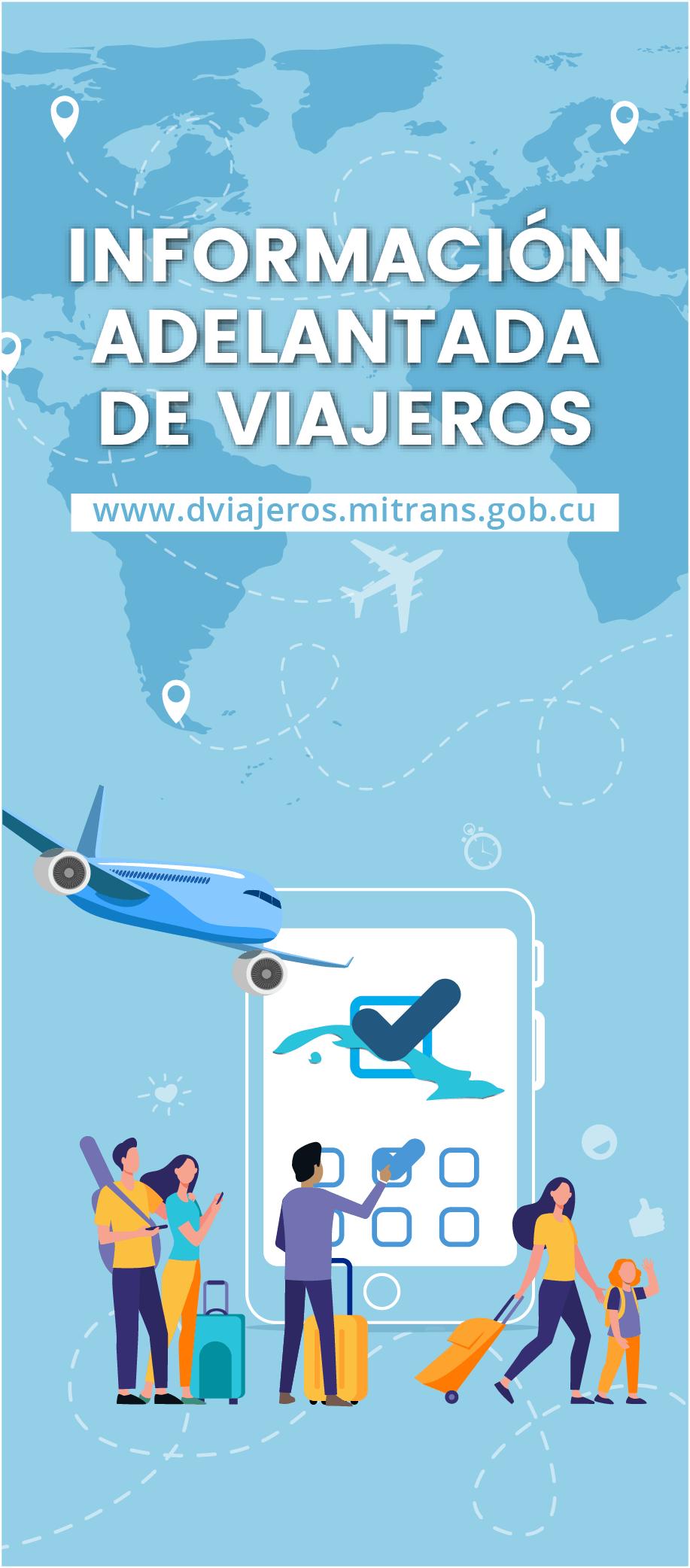
¿QUÉ HACER EN CUBA?
Sol y playa.

Excursiones

Comparte Cuba Travel
Update April 12, 2024
Information for u.s. citizens in the middle east.
- Travel Advisories |
- Contact Us |
- MyTravelGov |
Find U.S. Embassies & Consulates
Travel.state.gov, congressional liaison, special issuance agency, u.s. passports, international travel, intercountry adoption, international parental child abduction, records and authentications, popular links, travel advisories, mytravelgov, stay connected, legal resources, legal information, info for u.s. law enforcement, replace or certify documents.
Before You Go
Learn About Your Destination
While Abroad
Emergencies
Share this page:
Travel Advisory January 5, 2024
Cuba - level 2: exercise increased caution.
Reissued with updates to crime information.
Exercise increased caution in Cuba due to crime .
Country Summary: Petty crime is a threat for tourists in Cuba. Also, violent crime, including armed robbery and homicide, sometimes occurs in Cuba.
Travel outside of the Havana area for U.S. Embassy employees requires a special notification process which may affect the Embassy’s ability to provide emergency assistance to U.S. citizens in Cuba.
Read the country information page for additional information on travel to Cuba.
If you decide to travel to Cuba:
- Be aware of your surroundings.
- Do not physically resist any robbery attempt.
- Do not display signs of wealth, such as wearing expensive watches or jewelry.
- Enroll in the Smart Traveler Enrollment Program (STEP) to receive Alerts and make it easier to locate you in an emergency.
U.S. citizens should always exercise caution when traveling abroad:
- Follow the Department of State on Facebook and Twitter .
- Review the Country Security Report for Cuba.
- Prepare a contingency plan for emergency situations. Review the Traveler’s Checklist .
Embassy Messages
View Alerts and Messages Archive
Quick Facts
Must have six months validity at the time of entry.
Two pages are required for entry/exit stamps.
Yes. Travel to Cuba for tourist activities remains prohibited by statute. See 31 C.F.R 515.560 and OFAC's Frequently Asked Questions .
None. See CDC for recommendations.
U.S. credit and debit cards do not work in Cuba. You should bring U.S. dollars or Euros to Cuba and exchange them for Cuban Pesos (CUP) at authorized banks, CADECA offices, airports or hotels. Travelers should confirm alternative payment options before traveling, as policies concerning the use of U.S. dollars in Cuba are subject to change. The Cuban government requires that travelers declare cash amounts over the equivalent of 5,000 USD.
When departing Cuba, we advise U.S. travelers to spend or exchange CUP to a foreign currency well before reaching airport security checkpoints. Currency exchange houses in the departure area at airports are currently closed and Cuban pesos are not internationally convertible outside of Cuba.. International airlines flying to the United States include departure fees and taxes in the price of airline tickets. U.S. dollars are not accepted for payment of any additional products purchased at the airport. Under Cuban law, travelers may export up to the equivalent of 5,000 USD out of the country. Anyone wishing to depart Cuba with more than this amount of cash must demonstrate evidence that the currency was acquired legitimately from a Cuban bank.
Embassies and Consulates
U.S. Embassy Calzada between L and M Streets, Vedado, Havana, Cuba Telephone: + (53) (7) 839-4100 (Monday- Friday 0830-1630, except holidays) Emergency after-hours telephone: + (53) (7) 839-4100 and dial 1 to speak with the emergency operator Fax: + (53) (7) 839-4247 Website: https:cu.usembassy.gov
Email: [email protected] (for concerns with U.S. citizens)
Destination Description
Learn about the U.S. relationship to countries around the world.
Entry, Exit and Visa Requirements
Travel to Cuba from or transiting through the United States by persons under U.S. jurisdiction (defined as [BE1] U.S. citizens located anywhere, and anyone located in the United States regardless of citizenship and nationality) , is regulated by the Office of Foreign Assets Control (OFAC) of the U.S. Department of the Treasury. All travelers falling under U.S. jurisdiction must comply with these regulations. Individuals seeking to travel to Cuba are not required to obtain licenses from OFAC if their travel is covered under the 12 travel categories authorized by a general OFAC license. If travel is not covered by a general license, you must seek OFAC authorization in the form of a specific license . Travelers who fail to comply with regulations may face penalties and criminal prosecution. For travel-specific questions, please see 31 C.F.R. 515.560 and OFAC’s Frequently Asked Questions .
Visit the Embassy of Cuba website for the most current visa information.
Cuba requires visitors to have non-U.S. medical insurance, which is usually included in airline ticket prices on flights originating in the United States. If you do not have insurance, it can be purchased upon arrival to Cuba at an airport kiosk. Asistur Medical Insurance is the official company that airlines contract. Please confirm your coverage with your airline prior to arrival in Cuba and seek additional medical insurance if needed.
Cuba does not recognize the U.S. citizenship of Cuban-born U.S. citizens who maintain residency status in Cuba. The Cuban government requires Cuban dual nationals to enter and depart Cuba using Cuban passports. Cuban-born U.S. citizens who maintain their residency status in Cuba will be treated as Cuban citizens and may be subject to Cuban restrictions and legal obligations.
Some HIV/AIDS entry restrictions exist for visitors to and foreign residents of Cuba. Foreign students on scholarships are required to test for HIV/AIDS. Please verify this information with the Embassy of Cuba before you travel.
Information about dual nationality , the prevention of international child abduction , and customs regulations can be found on our websites.
Cuban Requirements for Authorized Travelers: Attempts to enter or exit Cuba illegally, or to aid the irregular exit of Cuban nationals or other persons, are prohibited. Entering Cuban territory, territorial waters, or airspace without prior authorization from the Cuban government may result in arrest. Immigration violators are subject to prison terms ranging from four to thirty years.
Temporary Sojourn License: Most aircraft and maritime vessels on temporary sojourn to Cuba are no longer eligible for an Aircraft, Vessels, and Spacecraft (AVS) License Exception. See 15 C.F.R. § 740.15. If you are planning to enter Cuba with a U.S. or foreign-registered aircraft or maritime vessel on temporary sojourn, you must meet the criteria set forth in 15 C.F.R. § 740.15. Please see the U.S. Department of Commerce’s Bureau of Industry and Security website for additional information.
In addition, a vessel of the United States, as defined in 33 C.F.R. §107.200, may not enter Cuban territorial waters without advance permission from the U.S. Coast Guard. The U.S. Coast Guard provides permission information at (305) 415-6920.
Safety and Security
The security environment in Cuba is relatively stable and characterized by a strong military and police presence. Demonstrations are infrequent but can draw violent responses from government forces. Even demonstrations intended to be peaceful can turn confrontational without warning. Avoid demonstrations and maintain security awareness at all times. Demonstration Alerts are posted on the Embassy’s website . Review the Cuba Travel Advisory .
The Cuban government has detained U.S. citizens suspected of engaging in activities perceived to undermine state security. The Cuban government may detain individuals for activities that would not be considered criminal or offensive in the United States.
Crime: With the recent influx of travelers, there has been an increase in the number of property crimes. Crimes of opportunity, such as pick pocketing, purse snatchings, and car break-ins, are on the rise. Exercise vigilance everywhere . Do not display large amounts of cash. Do not leave your valuables unattended. Carry money in your front pockets, hold your purse and cellular phone securely and be mindful of purses or bags when dining out.
- Do not leave a beverage unattended or accept beverages from persons unknown to you.
- Locations such as Habana Vieja, Playas del Este, Varadero, and other attractions tend to have a higher incidence of property crime than other parts of Cuba.
- Be wary of misdirection schemes where someone attempts to gain your attention while another comes from behind to steal your purse, wallet, or other valuable items.
- If confronted by criminals, do not resist, try to remain calm, clearly display your hands and do not make any sudden moves that could be interpreted as resistance.
- Carry a cell phone with Cuban cellular service for emergency communications and travel in groups if possible.
- Be aware of your surroundings, especially at night or when traveling in an unfamiliar area.
- While in your car, place valuables out of sight or in a locked trunk. When unattended, avoid leaving items in the car, especially on the seat or in plain view.
- Only use marked taxis.
- Carry a copy of your passport and secure the original.
- Beware of scam artists, who may speak English and appear friendly.
- When exchanging currency, use the state-run offices known as CADECAs or official banks.
International Financial Scams: See the Department of State and the FBI pages for information.
Victims of Crime: We strongly urge U.S. citizen victims of sexual assault to contact the U.S. Embassy for assistance. Report crimes to the local police by dialing 106 and contact the U.S. Embassy at +53 7839-4100. Remember that local authorities are responsible for investigating and prosecuting crimes.
See our webpage on help for U.S. victims of crime overseas .
We can:
- help you find medical care
- assist you in reporting a crime to the police
- contact relatives or friends with your written consent
- provide general information regarding the victim’s role during the local investigation and following its conclusion
- provide a list of local attorneys
- provide information on victim’s compensation programs in the U.S.
- provide an emergency loan for repatriation to the United States and/or limited medical support in cases of destitution
- help you find accommodation and arrange flights home
- replace a stolen or lost passport
Domestic Violence: U.S. citizen victims of domestic violence are strongly encouraged to contact the Embassy for assistance.
Tourism: The tourism industry is unevenly regulated, and safety inspections for equipment and facilities do not commonly occur. Hazardous areas/activities are not always identified with appropriate signage, and staff may not be trained or certified either by the host government or by recognized authorities in the field. In the event of an injury, even basic medical treatment is typically available only in/near major cities. First responders are generally unable to access areas outside of major cities and to provide urgent medical treatment. U.S. citizens should maintain health insurance in Cuba. If stays exceed 30 days, [CM1] U.S. citizens should purchase medical insurance when they process their visa extensions.
Local Laws & Special Circumstances
Criminal Penalties: You are subject to local laws. If you violate local laws, even unknowingly, you may be expelled, arrested, or imprisoned. Individuals establishing a business or practicing a profession that requires additional permits or licensing should seek information from the competent local authorities, prior to practicing or operating a business.
Furthermore, some laws are also prosecutable in the United States, regardless of local law. For examples, see our website on crimes against minors abroad and the Department of Justice website.
Arrest Notification: If you are arrested or detained, ask police or prison officials to notify the U.S. Embassy immediately. See our webpage for further information.
Cuban penalties for the following are particularly severe:
- Possession, use, or trafficking of illegal drugs.
- Suspicion of assisting Cubans to leave the country illegally.
- Drivers involved in accidents that result in injury or death, regardless of fault.
- Importing weapons or ammunition.
- Photographing military or police installations or personnel, or harbor, rail, or airport facilities.
- Crimes against minors.
The Government of Cuba does not recognize the U.S. citizenship of Cuban-born U.S. citizens who maintain residency in Cuba and may not allow U.S. consular access to Cuban-American prisoners.
Telecommunications: Many U.S. mobile service carriers provide roaming services in Cuba. Your U.S. mobile phone will work in Cuba if your mobile phone is capable of roaming in Cuba and your mobile service provider has an international roaming agreement with ETECSA, Cuba's state-owned telecommunications provider. Currently AT&T, Sprint, Verizon, and T-Mobile have roaming agreements with ETECSA. Wi-Fi is often slow and unreliable. Be sure to confirm your carrier’s coverage before traveling.
SIM cards with a data plan can be purchased at Havana-José Martí International Airport (HAV) and local ETESCA telecommunications offices. To ensure family and friends can reach you in Cuba, check with your mobile provider about roaming options and cost or purchase a Cuban SIM card. See the FCC Travel FAQs for more information.
Cuba-related Travel Transactions: Only persons whose travel falls into the 12 OFAC approved travel categories or who have received a specific license from OFAC are authorized by the U.S. Department of the Treasury to travel to, from, or within Cuba. Direct financial transactions with certain entities and sub-entities under the control of, or acting for or on behalf of, the Cuban military, intelligence, or security services are also generally prohibited. For more information see the Department of State’s Cuba Restricted List . Additionally, lodging, paying for lodging, or making reservations on behalf of others to lodge, at certain accommodations in Cuba are prohibited; for a full list of such accommodations, see the Cuba Prohibited Accommodations List . For more information about licenses, visit OFAC’s Cuba Sanctions website . Additionally, lodging, paying for lodging, or making reservations on behalf of others to lodge, at certain accommodations in Cuba are prohibited; for a full list of such accommodations, see the Cuba Prohibited Accommodations List . For more information about licenses, visit OFAC’s Cuba Sanctions website .
Licenses for Remittances: In June 2022, OFAC published updated Cuba-related regulations . The new regulations eliminated a cap on remittances to family members in Cuba, and authorized remittances to non-family recipients as well. Certain Prohibited Officials of the Government of Cuba , Prohibited Members of the Cuban Communist Party , and the close relatives of these two groups, are not eligible to receive remittances. For information on remittance authorizations, see OFAC’s Cuba Sanctions website .
What May Be Brought Back From Cuba: Importation of Cuban merchandise for commercial purposes is restricted, with very limited exceptions. Certain imports of goods produced by independent Cuban entrepreneurs are authorized, as set forth on the Department of State’s Section 515.582 List (see 31 C.F.R 515.582). There are no limits on the import or export of informational materials. For more information related to imports, including merchandise entering the United States for personal use as accompanied baggage, please see the CBP Public Notice .
Cuban law requires foreigners to obtain authorization to remove souvenir paintings and sculptures out of Cuba. Most authorized points of sale, such as galleries and art studios, should be familiar with this process and should provide the proper documentation at the time of purchase. You can also apply for an export permit via the Cuban Fund of Cultural Assets. Travelers without a valid export permit may have their items confiscated at the port of departure. The U.S. Embassy cannot assist in these cases. For more information, please contact the embassy of Cuba .
Travelers may purchase alcohol and tobacco products while in Cuba for personal consumption in Cuba, but may not enter the United States with alcohol and/or tobacco products acquired in Cuba. Persons subject to United States jurisdiction may purchase or acquire Cuban-origin merchandise for personal consumption, including alcohol and tobacco products, while in a third country, but may not import such products into the United States. For a complete description of what this general license authorizes and the restrictions that apply, see 31 CFR § 515.585(c) and (d).
Storm Season: Tropical storms and hurricanes between May and November can produce heavy winds and rain. See our page on disaster and crisis preparedness for more information.
Faith-Based Travelers: See the following webpages for details:
- Faith-Based Travel Information
- International Religious Freedom Report – see country reports
- Human Rights Report – see country reports
- Best Practices for Volunteering Abroad
LGBTI Travelers: There are no legal restrictions on same-sex sexual relations or the organization of LGBTI events in Cuba, and on September 26, 2022 Cubans passed the referendum legalizing same sex marriage.
See our LGBTI Travel Information page and section 6 of our Human Rights report for further details.
Travelers Who Require Accessibility Assistance . Individuals with mobility issues are likely to find accessibility difficult . Few facilities or services are available, and information is limited. Most roads and sidewalks are poorly maintained.
Students: See our Students Abroad page and FBI travel tips .
Women Travelers: See our travel tips for Women Travelers .
Currency Restrictions: Be advised that policies concerning the use and convertibility of U.S. dollars in Cuba are subject to change. Obtaining U.S. dollar cash is nearly impossible through official channels. The Cuban Central Bank prohibits certain U.S. dollar cash transactions, including conversion of U.S. dollars to Cuban pesos, the use of U.S. dollars for cash payments, including in government-run establishments such as hotels and restaurants, and the purchase of pre-paid debit cards.. U.S.-issued credit and debit cards do not work in Cuba. Travelers should bring sufficient cash for the duration of their trip, and consider bringing multiple currencies, such as Euros.
For emergency services in Cuba, dial:
- 104 for an ambulance or contact the nearest hospital directly
- 105 for fire
- 106 for police
Ambulance services are
- not present throughout the country or are unreliable in most areas
- not equipped with state-of-the-art medical equipment
- not staffed with trained paramedics and often have little or no medical equipment
Injured or seriously ill travelers may prefer to take a taxi or private vehicle to the nearest major hospital rather than wait for an ambulance.
We do not pay medical bills. Be aware that U.S. Medicare/Medicaid does not apply overseas. Hospitals and doctors in Cuba do not accept U.S. health insurance. Most hospitals require payment up front before services are rendered.
Medical Insurance: Ensure your airline ticket includes health insurance. Cuba requires all U.S. airlines departing the United States to pay for health insurance for each passenger. The health insurance from airlines is valid for 30 days upon your arrival in Cuba. If you are planning to stay in Cuba for more than 30 days, you will need to extend your coverage before you can extend your visa. It is important to keep a record of your arrival into Cuba, such as your airline ticket, so that the Asistur agency can coordinate with the hospital on payment MEDEVAC flights from Cuba are difficult to arrange, with costs starting at $15,000 U.S. dollars. Visit the U.S. Centers for Disease Control and Prevention for more information on type of insurance you should consider before you travel overseas.
We strongly recommend supplemental insurance to cover medical evacuation.
Ensure you have all medicine you require for your time in Cuba. Medicine (prescription and over the counter) is not readily available in Cuba. Always carry your prescription medication in original packaging, along with your doctor’s prescription. Check with the embassy of Cuba to ensure the medication is legal in Cuba. Note: This site is in Spanish only.
Diarrheal illness is common among travelers, even in luxury accommodations. Travelers should wash their hands, drink bottled water, and avoid street and undercooked food.
The following diseases are prevalent:
- Dengue Fever
- Hepatitis-A
- Traveler’s diarrhea
- Chikungunya
- Typhoid
- Rabies
- Zika Virus
Visit the U.S. Centers for Disease Control and Prevention website for more information about Resources for Travelers regarding specific medical issues in Cuba .
Vaccinations: Be up to date on all vaccinations recommended by the U.S. Centers for Disease Control and Prevention.
Further health information:
- World Health Organization
- U.S. Centers for Disease Control and Prevention (CDC)
The U.S. Embassy maintains a list of doctors and hospitals here . We do not endorse or recommend any specific medical provider or clinic.
Pharmaceuticals: Even the most common over the counter medications are unavailable in Cuba. Other medication, medical equipment or supplies are also unavailable on the island. If you are able to find medicine, exercise caution when purchasing medication overseas. Counterfeit medication may prove to be ineffective, the wrong strength, or contain dangerous ingredients. Medication should be purchased in consultation with a medical professional and from reputable establishments.
U.S. Customs and Border Protection and the Food and Drug Administration are responsible for rules governing the transport of medication back to the United States. Medication purchased abroad must meet their requirements to be legally brought back into the United States. Medication should be for personal use and must be approved for usage in the United States. Please visit the U.S. Customs and Border Protection and the Food and Drug Administration websites for more information.
Water Quality: Tap water is not potable. Bottled water is often unavailable for purchase and you should be aware that some restaurants and hotels serve tap water unless bottled water is specifically requested. Be aware that ice for drinks may be made using tap water.
General Health Issues
- There are severe shortages of food, potable water, medicine, medical supplies, etc. throughout Cuba.
- Visit the U.S. Centers for Disease Control and Prevention website for more information about Resources for Travelers regarding specific issues in Cuba.
Air Quality: Air pollution is a problem in several major cities in Cuba. Consider the impact seasonal smog and heavy particulate pollution may have on you and consult your doctor before traveling if necessary. Visit AirNow Department of State for information on air quality at U.S. Embassies and Consulates.
Travel and Transportation
Road Conditions and Safety: Road accidents, many involving pedestrians and bicyclists, are Cuba’s leading cause of death. Cuban authorities may prohibit drivers from leaving the country until claims associated with an accident are settled. Drivers found responsible for accidents resulting in serious injury or death may receive long prison sentences. U.S. citizen drivers are often found at fault for accidents they are involved in.
Drive with extreme care. Major streets are generally well-maintained, but secondary streets are not. Major potholes and obstacles are common on all roads. After heavy rains in 2022, several bridges collapsed. Damaged bridges may not be well marked.
Outside of major cities, avoid driving at night as many roads are unlit. Emergency lights or signals are rare, making it virtually impossible to detect hazards after dark. Street signage is insufficient and confusing. Many Cuban cars are old, in poor condition, and lack reliable safety equipment. Heed caution throughout the country as there are rolling blackouts which may leave streets dark and without traffic lights, even in major cities.
The principal Cuban east-west highway is in good condition but extends only part of the way from Havana to the eastern end of the island. Hazards – including unfenced livestock and farm vehicles – are common.
When traveling by road, you should carry a printed map of the area, as electronic (smartphone) maps frequently fail due to connectivity issues.
Traffic Laws: Speed limits are sometimes posted and passengers in automobiles are required to wear seatbelts, if available. All motorcyclists are required to wear helmets. Traffic from major roads generally does not stop when entering roundabouts. Use care at intersections: stop signs are often hard to see.
Public Transportation:
Buses designated for tourist travel, both between and within cities, generally meet international standards.
The public bus and rail system in Cuba is under-resourced and in poor condition. Public buses used by Cubans, known as "guaguas," are crowded, unreliable, and are sometimes preyed upon by petty criminals. There is a heightened threat of pickpocketing on crowded buses and trains. Embassy personnel are advised not to use public transportation.
Avoid using informal taxis or hailing private vehicles for rides as they are unregulated, the vehicles are often in disrepair, and usually do not have normal vehicle safety equipment such as seat belts and air bags. “Cocos,” smaller, yellow ball-shaped “tuk-tuk” style vehicles, are not safe, and the Embassy advises its personnel not to use them.
Rental car agencies provide roadside assistance to their clients as a condition of rental contracts. Travelers should not permit unauthorized persons to drive their rental vehicles.
See our Road Safety page for more information.
Aviation Safety Oversight: As there is no direct commercial air service to the United States by carriers registered in Cuba, the U.S. Federal Aviation Administration (FAA) has not assessed the government of Cuba’s Civil Aviation Authority under its International Aviation Safety Assessment program (IASA) for compliance with International Civil Aviation Organization (ICAO) aviation safety standards. Further information may be found on the FAA’s IASA website. The U.S. Embassy in Havana prohibits U.S. government personnel from using any commercial airline for domestic flights within Cuba due to safety concerns. The Embassy does not authorize government personnel to travel via Cubana Airlines.
Maritime Travel: Mariners planning travel to Cuba should also check for U.S. maritime advisories and alerts . Information may also be posted to the U.S. Coast Guard homeport website , and the NGA broadcast warn ings .
For additional travel information
- Enroll in the Smart Traveler Enrollment Program (STEP) to receive security messages and make it easier to locate you in an emergency.
- Call us in Washington, D.C. at 1-888-407-4747 (toll-free in the United States and Canada) or 1-202-501-4444 (from all other countries) from 8:00 a.m. to 8:00 p.m., Eastern Standard Time, Monday through Friday (except U.S. federal holidays).
- See the State Department’s travel website for the Worldwide Caution and Travel Advisories .
- Follow us on Twitter and Facebook .
- See traveling safely abroad for useful travel tips.
Review information about International Parental Child Abduction in Cuba . For additional IPCA-related information, please see the International Child Abduction Prevention and Return Act (ICAPRA) report.
Travel Advisory Levels
Assistance for u.s. citizens, learn about your destination, enroll in step.

Subscribe to get up-to-date safety and security information and help us reach you in an emergency abroad.
Recommended Web Browsers: Microsoft Edge or Google Chrome.
Check passport expiration dates carefully for all travelers! Children’s passports are issued for 5 years, adult passports for 10 years.
Afghanistan
Antigua and Barbuda
Bonaire, Sint Eustatius, and Saba
Bosnia and Herzegovina
British Virgin Islands
Burkina Faso
Burma (Myanmar)
Cayman Islands
Central African Republic
Cote d Ivoire
Curaçao
Czech Republic
Democratic Republic of the Congo
Dominican Republic
El Salvador
Equatorial Guinea
Eswatini (Swaziland)
Falkland Islands
France (includes Monaco)
French Guiana
French Polynesia
French West Indies
Guadeloupe, Martinique, Saint Martin, and Saint Barthélemy (French West Indies)
Guinea-Bissau
Isle of Man
Israel, The West Bank and Gaza
Liechtenstein
Marshall Islands
Netherlands
New Caledonia
New Zealand
North Korea (Democratic People's Republic of Korea)
Papua New Guinea
Philippines
Republic of North Macedonia
Republic of the Congo
Saint Kitts and Nevis
Saint Lucia
Saint Vincent and the Grenadines
Sao Tome and Principe
Saudi Arabia
Sierra Leone
Sint Maarten
Solomon Islands
South Africa
South Korea
South Sudan
Switzerland
The Bahamas
Timor-Leste
Trinidad and Tobago
Turkmenistan
Turks and Caicos Islands
United Arab Emirates
United Kingdom
Vatican City (Holy See)
External Link
You are about to leave travel.state.gov for an external website that is not maintained by the U.S. Department of State.
Links to external websites are provided as a convenience and should not be construed as an endorsement by the U.S. Department of State of the views or products contained therein. If you wish to remain on travel.state.gov, click the "cancel" message.
You are about to visit:

Get a taste of the real Cuba on a legal tour for Americans.
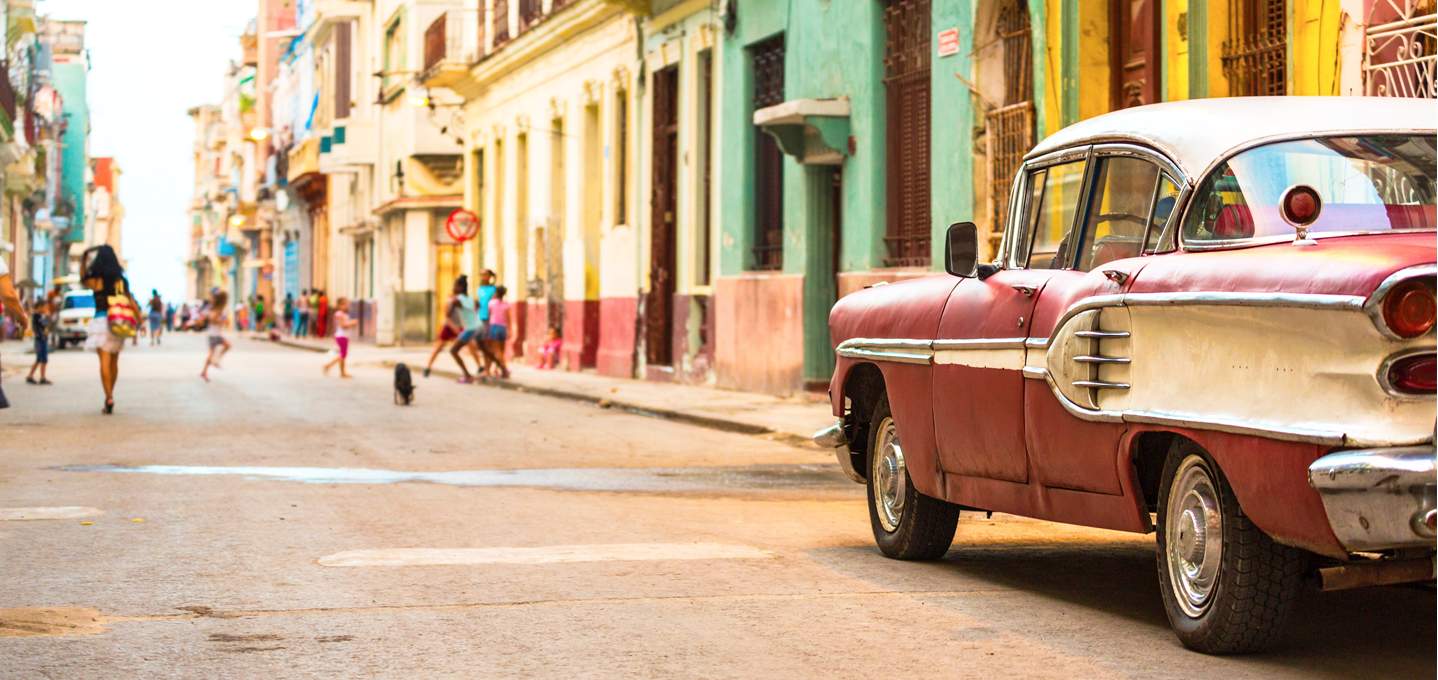
Legal Cuba Travel
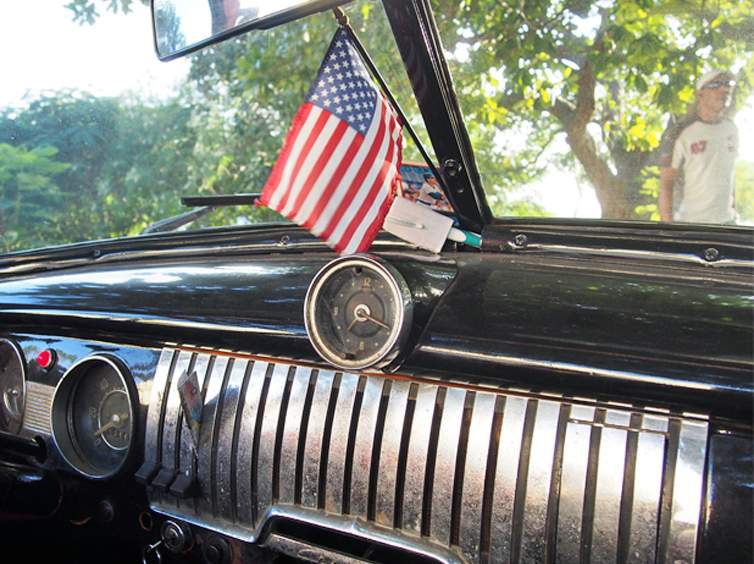
We've the latest information you need as an American citizen on Cuba travel licenses, Cuba tourist visas, flights to Cuba, and advice to plan your Cuba trip, safely and legally.
Our Cuba Tours
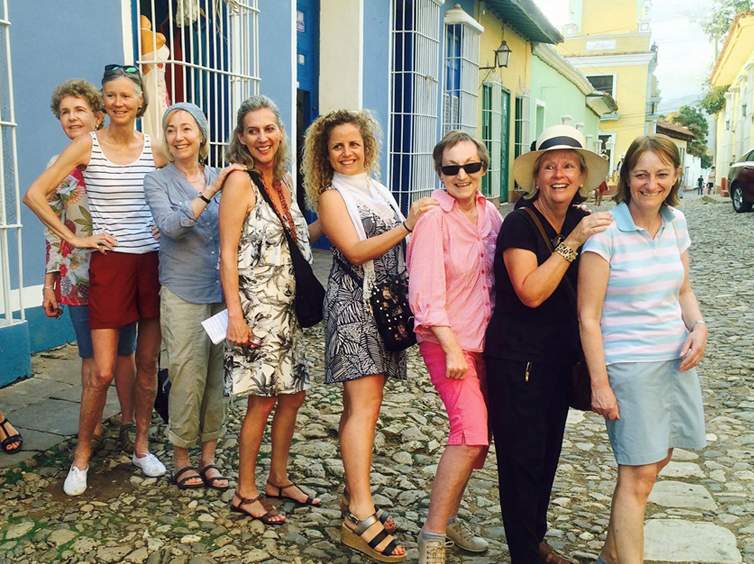
Our Cuba tours are compliant with U.S. Government regulations. We offer 9, 11 & 15 day options, with groups limited to 12 travellers.
Flights to Cuba
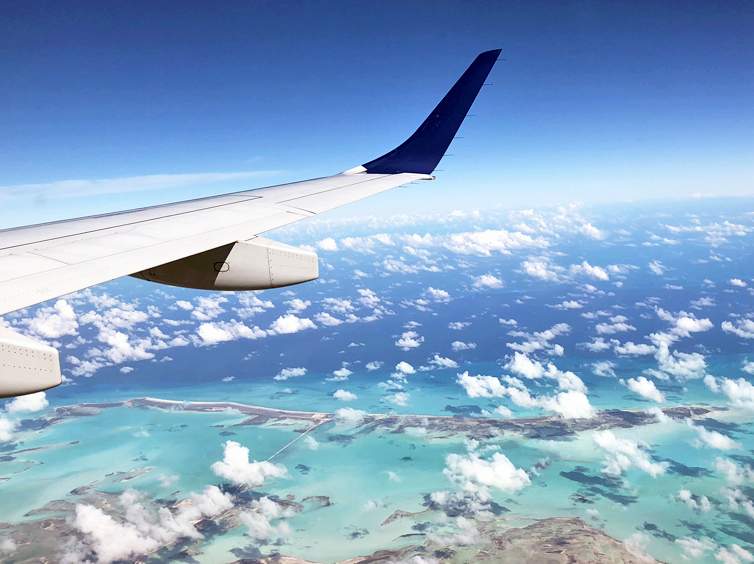
Choose your own flights to Cuba! All of our Cuba tours start and end in Havana. This gives you the freedom to choose the route to Cuba that is most convenient and economical for you
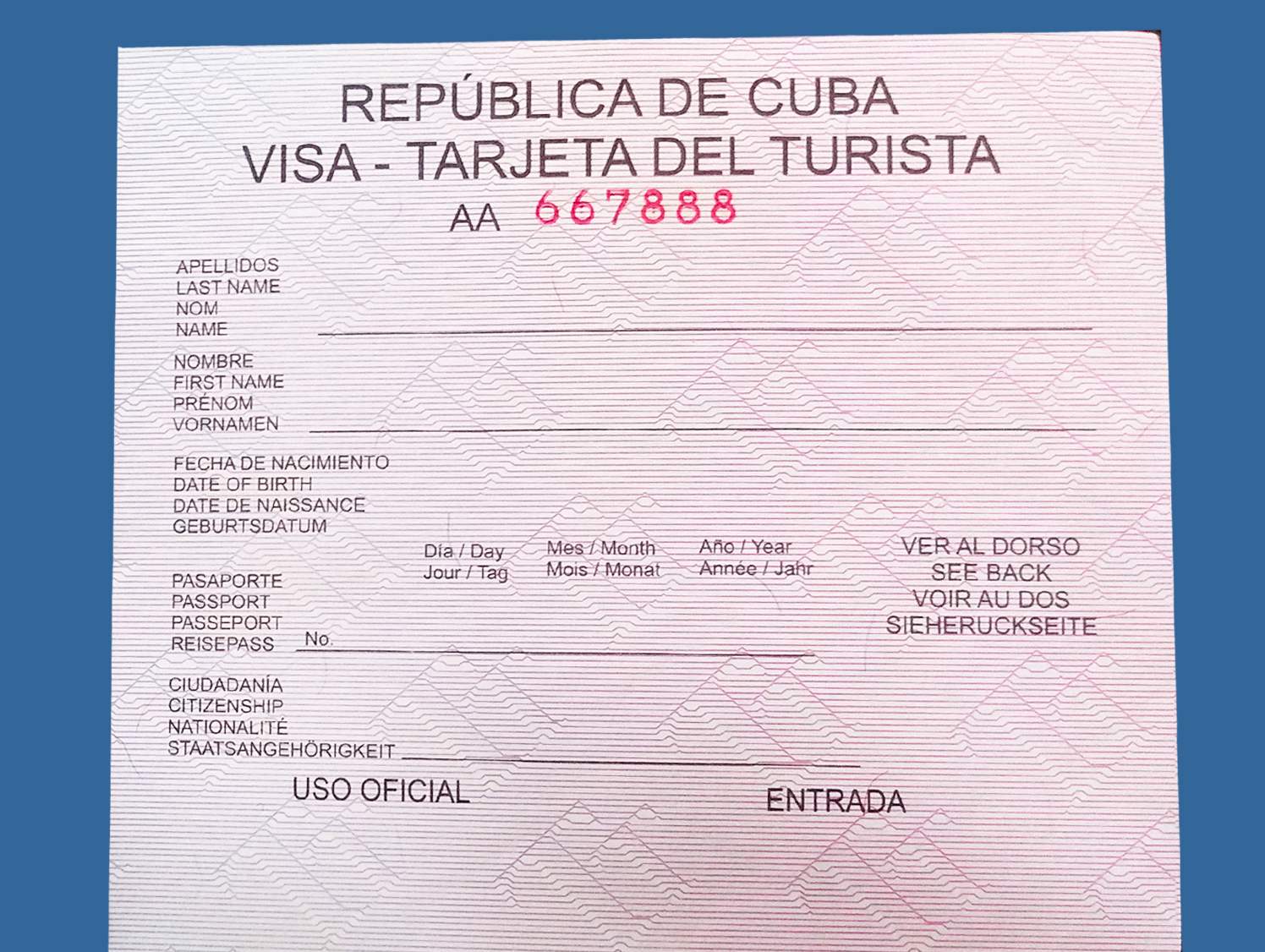
The Cuba Tourist Visa (or Tourist Card) is a document you need to enter Cuba. Read about what it is and how to obtain it!
" Our trip with Cuban Adventures exceeded all of our expectations. We normally do not travel on group tours but we are so glad we did. We learned so much from the guide about the history and the culture and the local hot spots to go to for food, drink and dancing. Thank you for making our trip to Cuba Amazing! We will definitely be back."
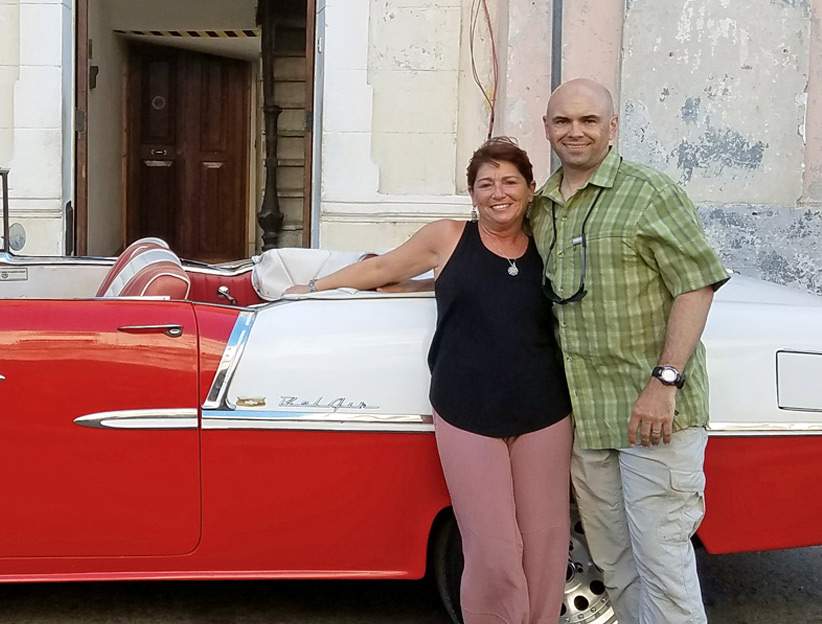
Choose your language

Getting Around
Entry to Cuba: Visas & Travel Requirements
Traffic by the Capitol building, Havana
Photo: Shutterstock
Stay updated with the latest travel information for your trip to Cuba!
Embarking on a journey to Cuba? Here's your guide to the latest visa requirements and travel protocols. Whether you're coming from North America, Europe, or elsewhere, we've got you covered.
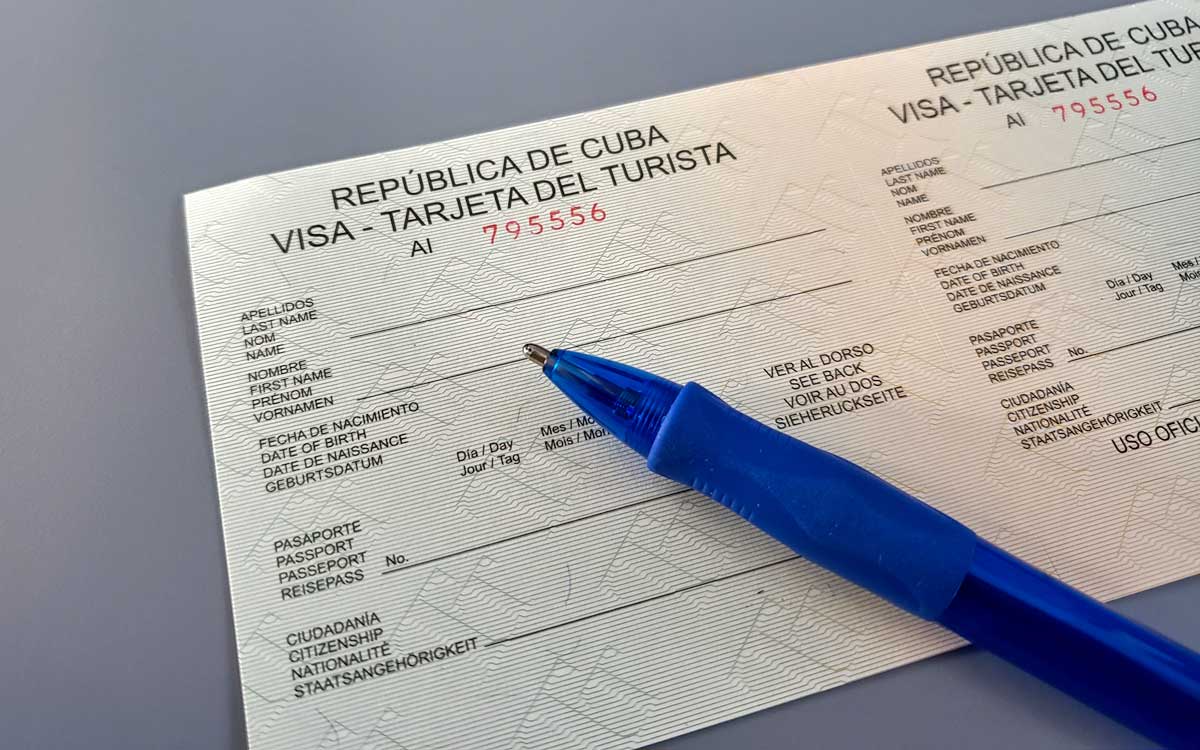
Cuba visa application form
What are the visa and entry requirements to Cuba?
US Citizens
Planning a trip to Cuba as a US citizen? There are special regulations you need to be aware of. While tourism trips to Cuba aren't yet authorized, general licenses have been issued for a variety of travel categories. If you meet the requirements of the general license under which they plan to travel, you won't need to apply for another permit from the OFAC (Office of Foreign Assets Control of the Treasury Department) for your trip.
However, it's important to note that the US Embassy in Havana and the State Department in Washington D.C do not process visa applications for trips to Cuba. If you need to apply for a visa or have any questions regarding your specific case, you should contact the Cuban Embassy in Washington D.C.
And remember, certain activities may not be allowed, so it's best to check with the US embassy for information on organizations or businesses in Cuba that U.S. citizens are not allowed to engage with due to economic sanctions or other legal restrictions.
Canadian Citizens
As a Canadian citizen, you'll need a valid passport for the duration of your stay in Cuba. Make sure your passport's expiration date isn't near to avoid any travel hiccups. Depending on your trip's purpose, you may need different types of visas. If you're traveling as a tourist, you'll need a tourist visa, which can be obtained from tour operators, airlines, or a Cuban government office in Canada.
European Citizens
If you're a European citizen planning to travel to Cuba, remember that visa protocols can vary depending on your country of residence. For most European citizens, a valid passport is required during your stay in Cuba. Some countries, like Spain, require the passport to be valid for at least 6 months.
It's also important to note that if you plan to travel to the United States after visiting Cuba, you'll need a visa. This is because the electronic system for travel authorization (ESTA) is not sufficient for those who have traveled to Cuba before. This visa must be obtained at the Consulate General of the US Embassy in your place of residence.
Given the varying requirements, it's a good idea to contact your tour operator or travel agency to understand the specific visa requirements for your travel.
Latin American Citizens
For Latin American citizens, a valid passport is required during your stay in Cuba. You'll also need to obtain a tourist visa or tourist card for your trip. This can be processed at tourism agencies or airlines, which usually handle its issuance.
The visa is generally issued for about 90 days and can then be extended. It's also important to note that you should have travel insurance with medical coverage.
Visa Costs: What to Expect
Visa costs can vary depending on where it's issued. Generally, prices range between $20 and $80. If you apply online, additional charges may apply, and prices can range from $110 to $150.
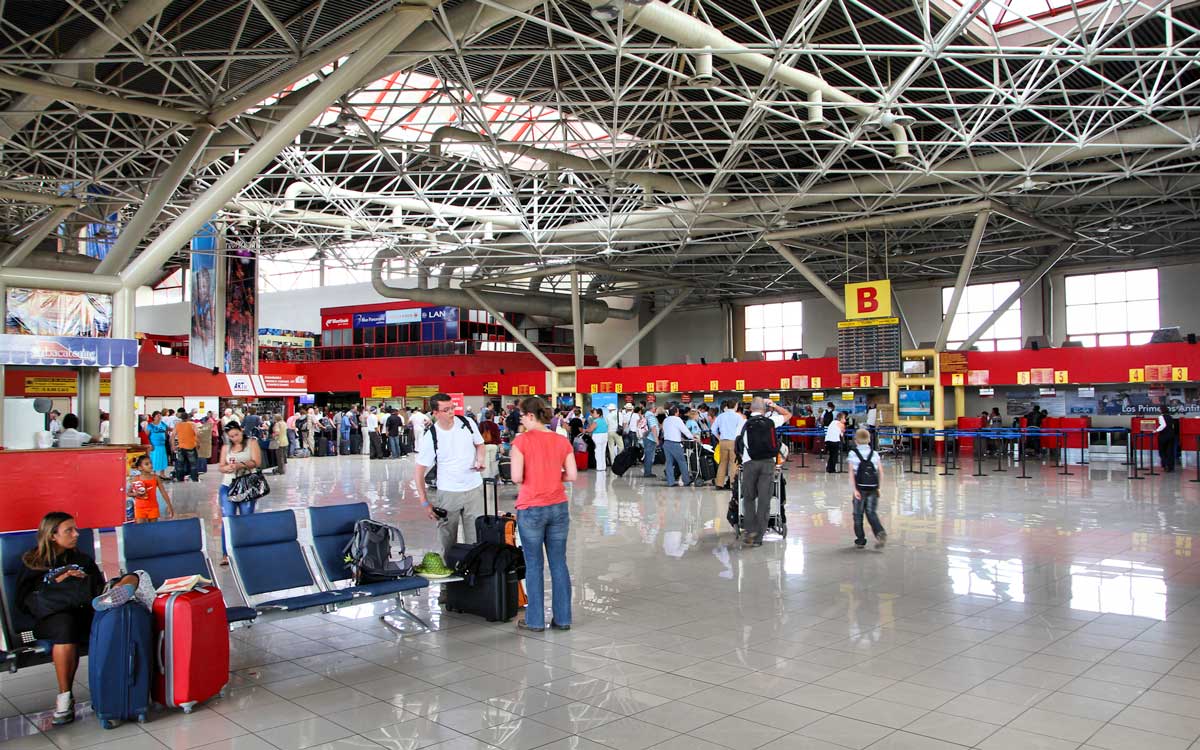
Jose Marti International Airport in Havana
What items can I bring to Cuba?
When packing for your trip to Cuba, you can bring personal effects, including personal phones and computers, free of charge. The range of objects you can bring to Cuba is quite wide, from musical instruments to televisions. However, some items may be subject to charges depending on Customs regulations.
Some items can be brought into the country without having to pay any import taxes. These include used personal objects, art and literature books, music discs, manufactured pharmaceutical products, and wheelchairs, among others.
However, it's crucial to be aware of prohibited items. While some of these, like explosives, drugs and narcotics, and blood derivatives, may seem obvious, others might surprise you. For instance, literature, articles or objects that are considered obscene, pornographic or that attack the general interests of the nation are also prohibited.
If you attempt to bring into the country articles that are not allowed for import, the General Customs of Cuba can exercise administrative sanctions. This means that Customs can seize those imported articles whose entry is prohibited in Cuba, as well as products that have been entered with a fraudulent declaration.
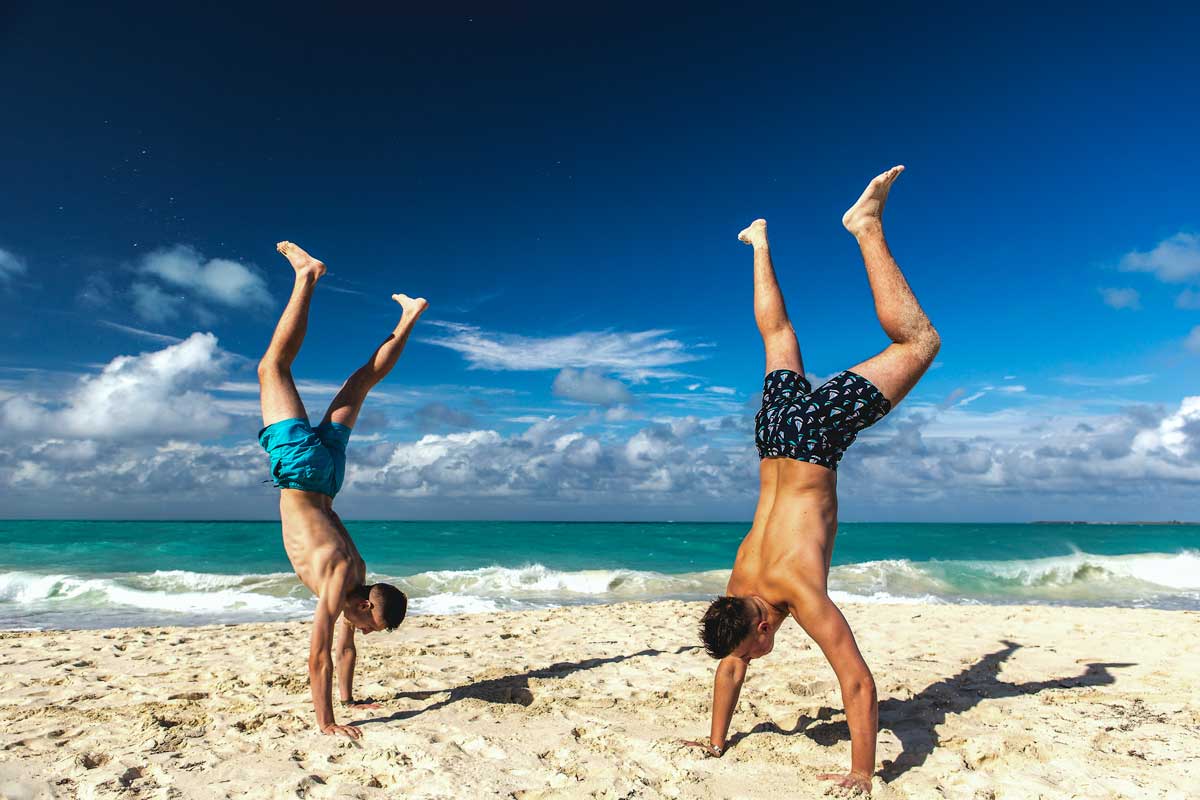
Travelers on a beach in Varadero
Photo: Unsplash
Health and Vaccinations
Before you embark on your journey to Cuba, it's important to ensure you're up to date with routine vaccines. This includes vaccines against chickenpox, tetanus, influenza, rubella, and polio. In the current climate, being vaccinated against COVID-19 is also essential.
Additionally, consider getting vaccinated against Hepatitis A and Hepatitis B. If your trip to Cuba includes exploring nature or venturing into rural areas away from the city center for activities such as outdoor camping, the rabies vaccine is also recommended. Travelers are also advised to consider the typhus vaccine.
Can I bring my pet to Cuba?
If you're planning to bring your pet to Cuba, there are a few requirements you need to meet. Make sure your pet has the necessary vaccines and an official health certificate. You'll also need to request a travel certificate for your pet from the Consulate or Embassy of Cuba in your country.
Written by Teresita Padrón .
Published July 2023.
Explore Top Destinations in Cuba
Fábrica de arte cubano: a unique experience for art lovers.
Havana houses one of Time Magazine’s Best 100 experiences: the
The Top Five Best Bakeries in Havana
Sweeten-up your life with some of the most exquisite pastries
Find Hidden Oases in Havana’s Parks & Gardens We Love
Explore the lesser-known parks and gardens of Havana and dive
Visit Chinatown in Havana
Visit the only Chinatown in Cuba, right in Central Havana,
Five of the Best Beaches in Cuba
Discover the best Cuban beaches making a splash in the
Cayo Coco: The Ideal Cuban Paradise
Of all the Cuban islands, Cayo Coco has some of
Cuba’s Top Destinations For Your Next Mountain Bike Adventure
Get to know the 5 best spots for mountain biking
Where to Drink in Havana: Our Essential List of the Best Bars
Explore our essential list of the best bars in Cuba,
Marabana – Havana’s Annual Marathon
The Marabana, Havana’s annual marathon, is a unique opportunity to
Explore Cienfuegos With Our Handpicked Activities Just for You
Discover top activities and things to do in Cienfuegos (according
Subscribe to our newsletter
Get more travel inspiration, tips and exclusive offers sent straight to your inbox
I would like to get Visit Cuba newsletters in my inbox
Paradise for Your Inbox

Explore Cuba
Plan your trip to cuba: best of cuba tourism.

Essential Cuba
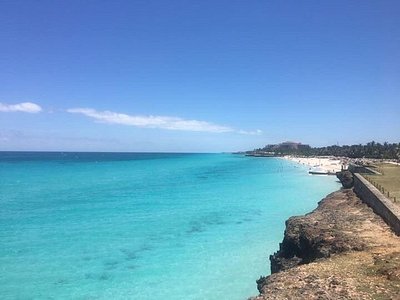
Trending in the forums

Cuba Is Great For
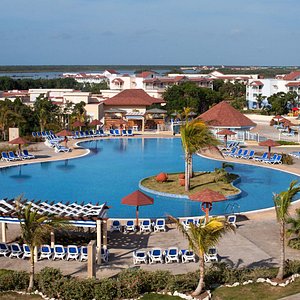
Eat & drink

The great outdoors

Art & history
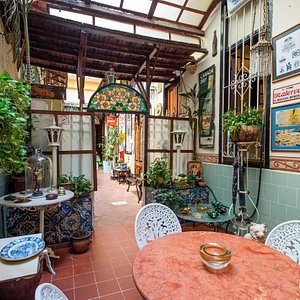
- Bay of Pigs
- Jardines De La Reina
- Isla de la Juventud
- Península de Zapata National Park
- Coppelia Park (Parque Coppelia)
- Walking Tour of Old Havana
- Havana Insights
- Havana Street Photography Workshop
- Walking tour La Habana
- Dare into modern Cuban cuisine

Cuba Travel Guide
Your ultimate cuba travel guide, with tips, things to do, and best things to see in cuba. great for first-time and returning travelers..
Located on the largest island of the Caribbean, Cuba is a very popular tourist destination and for good reason.
Cuba is home to beautiful white-sand beaches, impressive rainforests and waterfalls, vibrant culture, and lively cities .
Due to various trade restrictions over the years, Cuba has many described by many as like walking into a time capsule and is now a unique blend of the past and present, where vintage cars roam around colorful historic buildings and towns.
The birthplace of salsa music, Cuba is also full of rhythm. Add in its sub-tropical climate, and it is a great place to vacation.
This Cuba travel guide will help you plan your next vacation.
Popular Guides
- Things to do in Havana
- Cuba Photos
Our Highlight
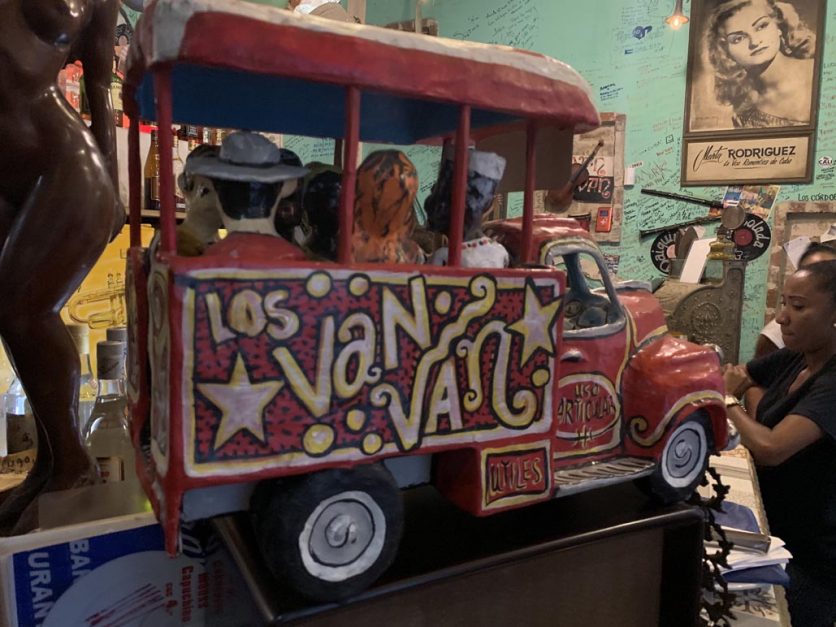
Table of contents
Table of Contents
Fast Facts about Havana
- Power voltage is 110V-220V at 60 Hz. Type A, B, C, and L.
- Cuba’s two currencies are the Cuban Peso and the Cuban Convertible Peso, mainly used for tourists.
- 1 Cuban Convertible Peso is equal to 1 USD.
- The best way to get around Cuba is by bus or taxi. If taking a taxi, make sure the taxi is licensed before riding.
- You need a tourist card to enter Cuba, as well as a passport that is valid for two months after your trip ends. The tourist card allows you to stay in Cuba for up to 30 days.
- The most popular cellular networks in Cuba are Cubacel and Digicel and both offer SIM cards. It should be noted the SIM cards can only be used on unlocked GMS phones. To rent a SIM card, you need a passport and your IMEI (phone ID) number.
- Cuba has a sales tax rate of 2% on wholesale sales and a 10% rate on both retail sales and services.
- SIM Cards : Cuba has very limited Internet and the best bet for visiting Cuba is to unplug, relax and if you have to, use your hotel’s limited WiFi for emergencies.
- It is advisable to download offline maps and any apps offline that you use to travel.
Things to See and Do in Cuba
- Hike Through Sierra Maestra: Cuba’s largest mountain range and the start point of the Cuban Revolution. Take a tour to learn more about Cuba’s history and enjoy a beautiful hike and great mountain views.
- Varadero Beach: Visit this pristine and popular beach in Sol Palmeras. Walk through the sand, swim in the clear waters, get to know other tourists or locals, or simply relax and take in the beautiful views.
- Old Havana: Old Havana is the city center of Havana is considered a crucial part of any trip to Cuba. Stroll through one-of-a-kind historic streets and buildings to see the history of Cuba.
- Tropicana Club: Head to the famous Tropicana Club for some great nightlife entertainment. Get dinner and enjoy the thrilling cabaret show that’s been running since the 1930s, featuring lively song and dance numbers.
Cuba Travel Guides
- 36 Fantastic Things to do in Havana, Cuba
Accommodation
Budget: Cuba offers family-run bed and breakfasts (or casas particulares) for around 15 to 25 pesos per night.
Mid-Range: For mid-range hotels, expect to pay roughly 70-130 pesos per night.
High-End: Upscale hotels will cost about 150-250 pesos per night.
Check out our favorite booking platforms Booking.com , Tripadvisor and VRBO for the best deals on accommodation.
If you’re on a budget, you can find options for pizza or spaghetti at around 3-4 pesos each.
Coffee lovers can find delicious cups of coffee for around 0.10 pesos. Restaurants are a good way to learn more about Cuban cuisine.
Expect to pay around 10-15 pesos for a meal at a restaurant.
The Best Ways to Get Around Cuba
Getting to cuba:.
Getting to Cuba: While there are 10 international airports in Cuba, the Aeropuerto Internacional José Martí in Havana is the main one, with the Gualberto Gómez International Airport in Varadero being a close second.
Flights: You can check for the best flights to Cuba on Skyscanner .
Transportation:
Transportation: Look for the Viazul buses, which are made especially for tourists and feature air-conditioning. Great for long distances, you can travel from Trinidad to Havana in six hours for just 25 pesos.
You will want to arrive at the station in advance to get a spot.
Trains : The train system in Cuba runs the length of the island and is a good way to meet the locals.
Go from Havana to Santa Clara for just 20 pesos, or from Santa Clara to Santiago de Cuba for 50 pesos. Be advised that the trains only run every few days, so planning ahead is key.
Taxis: Taxis are an alternative way to get around Cuba.
Fares start at 1 peso as a flat rate and increase by 1 peso for each kilometer traveled.
To travel from Old Havana to Miramar, for example, costs 8 to 12 pesos.
Car Rental: It is possible to rent a car in Cuba, but it is expensive and can be convoluted. Take care when you do. Check rates and availability here.
When to go To Cuba
Between November and April is the most popular time to go to Cuba, as temperatures range from 78 to 85 degrees Fahrenheit and skies tend to be blue.
You can find higher temperatures (up to 90 degrees) and lower hotel rates in August but note that hurricane season is between August through October.
Where to Stay in Cuba
Iberostar Grand Packard – Located on the Malecon and walking distance to Old Havana, this is the premier place to stay in Cuba.
Hostal Las Palmas :One of the most highly rated bed and breakfasts in Trinidad. Explore Trinidad and the Playa Ancon beach, which are both close by.
Suite Florencia : Built-in 1940, this colonial house turned hotel in Santa Clara is right in the middle of everything. Descend the white marble staircase into this romantic hotel.
Enjoy beautiful views of Santa Clara from your room, or roam about Santa Clara and visit the nearby restaurants and bars.
What to Pack for Cuba
Cuba has a tropical climate so you can count on it being hot and humid.
- Swimsuit: With Cuba”>
- Sunscreen: Protect your skin from the powerful sun with some sunscreen.
- Cash: As you may not be able to withdraw money from your bank accounts while in Cuba, make sure to bring an appropriate amount of cash based on what you think you’ll spend.
- We didn’t have a problem withdrawing from ATMs in Havana, but it is better to be safe
Cuba Travel Guide: Best Booking Resources
Whenever we travel to we make sure to start with these companies. We have tried a lot of different ones over the years and all of these have consistently proven to be the best when it comes to offering great prices.
We have used every one of these personally and continue to do so.
- Booking.com : This is our go site to when comparing prices for accommodation. It usually has the cheapest prices, especially in Europe and we love their interface. Not to mention you get free cancellation and you are guaranteed the best price.
- Trip Advisor : What we like about Trip Advisor is that we can look at all the reviews and then book our accommodation. TripAdvisor is where we go when we want to compare prices with multiple accommodation providers.
- VRBO : is the main search engine we use when we are looking for a home or apartment rental. It can sometimes be cheaper than hotels and it is the best way to stay in areas that offer a more local feel.
- Hostelworld : With one of the largest databases of hostels in the world, Hostelworld is the go-to site when you are looking for budget accommodation.
- Skyscanner : This is the first place we check for flights. It consistently comes back with the cheapest and best options. It allows us to compare a lot of airlines to get the best price.
- Rome 2 Rio : If you want to see how to get somewhere by plane, train, bus, ferry or car Rome2Rio lays it all out for you as well as related costs.I love how they show it all to you on a Google Map and it works offline.
- Get Your Guide: For all your day trip and city guide needs, we use Get Your Guide. It has the world’s largest collection of things to do with more than 30,000 activities in 7500 destinations.
- World Nomads Insurance: When traveling to Italy you should always have travel insurance. We have found the best bang for your buck is by far World Nomads.
Cuba Travel Guide: Related Articles
To browse all our articles and guides about Cuba Click Here.
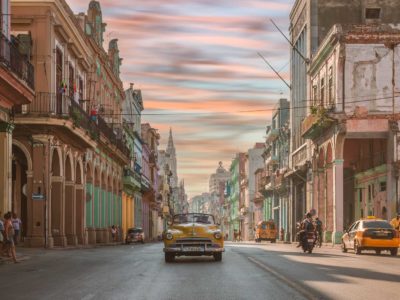
19 Unforgettable Places to Visit In Cuba in 2024
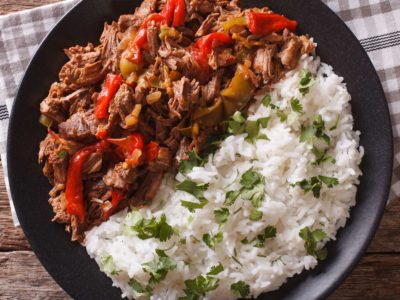
Cuban Food: 23 Cuban Dishes You Can Try at Home
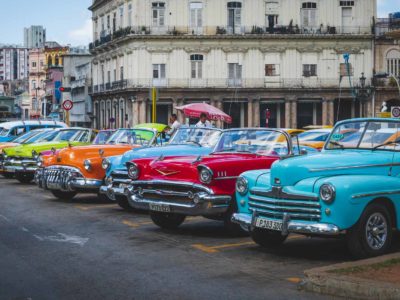
19 Fun Facts About Cuba You Never Knew
20 things to know before visiting Cuba

Jan 5, 2024 • 8 min read
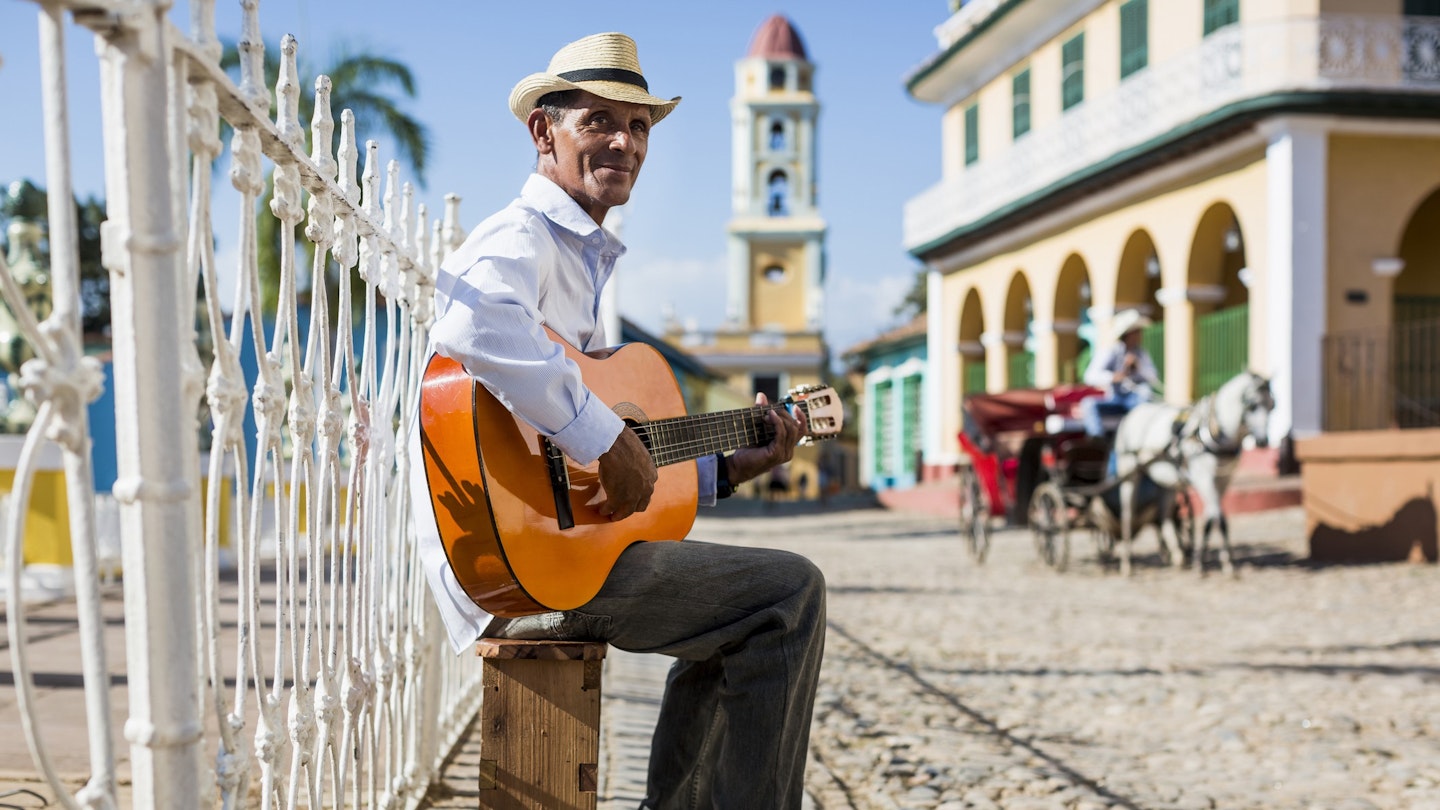
Be ready for your visit to Cuba with these top tips on what to expect © Westend61 / Getty Images
To a first-time traveler, Cuba can seem like a confusing jigsaw puzzle, particularly if you’re breaking free of the resorts and traveling around on your own.
The Spanish spoken here is fast and hard to decipher, many streets have two different names and the country’s fickle and highly complicated monetary situation could fill its own guidebook.
To help you be prepared, here is everything you need to know before planning a trip to Cuba.
1. Double-check your insurance
You are required to have medical insurance to visit Cuba and will need to bring digital or printed proof of your policy. Random checks are made at the airport. If you arrive without insurance, you’ll be asked to buy a Cuban policy at the airport for US$30.
2. Fill out your passenger information in advance
Cuba uses an online form called D’Viajeros to gather traveler information, including immigration and health data, in advance of travel. Fill out the form digitally up to 72 hours before your arrival in Cuba.
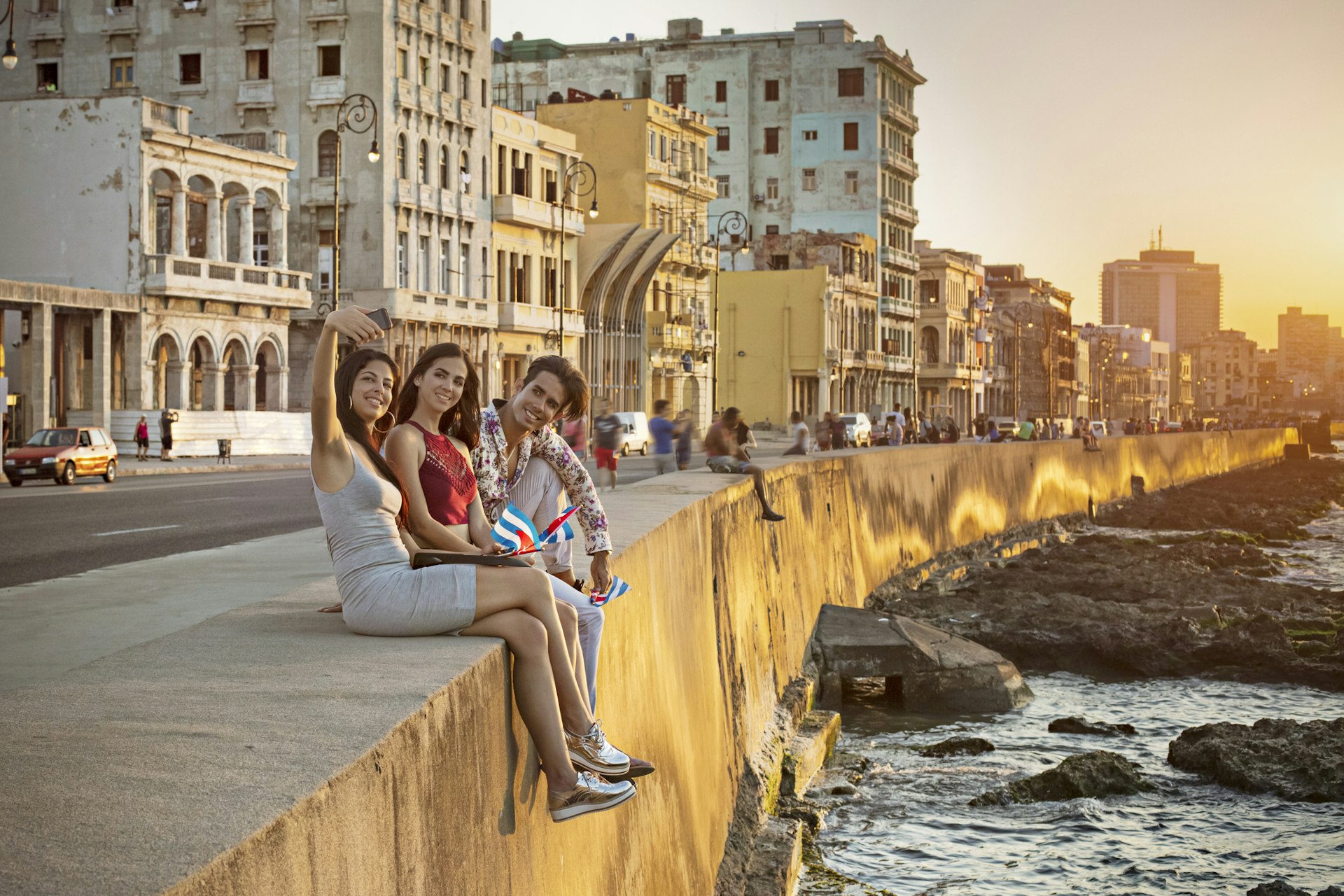
3. Every visitor needs a tourist card
To enter Cuba, all visitors need to present a completed tourist card . It’s usually available through your airline (ask when booking) and included in the price of your ticket.
If not, you can purchase one through a Cuban travel agency. Costs range from US$50 to US$85. Citizens of 20 African and Asian countries require a formal visa to enter Cuba. Check the situation for your country before booking.
4. Cash and currency: it’s complicated!
Money in Cuba is confusing, even to Cubans . Since the country abolished convertibles (CUC) in January 2021 and took the US dollar out of circulation in June 2021, there has been massive inflation and the emergence of a rampant black market. The knock-on effect is a bewildering dual economy.
The official currency of Cuba is the Cuban peso (CUP), but foreign currencies are also widely accepted, especially by private businesses who need hard cash to buy non-rationed goods in MLC (freely convertible currency) shops.
State-run enterprises and banks use official exchange rates. However, the prices of the superior services offered by private businesses generally reflect black market exchange rates.
Hence a main dish in a private restaurant in Havana will cost around CUP$500 (US$21). That’s an expensive meal if you’re paying in pesos bought from a Cuban bank.
However, most private restaurants will also accept payment in euros using a more favorable exchange rate. Some will even have a separate menu with prices printed in euros.
When buying something from a private business – be it a restaurant, casa particular (private accommodation) or taxi service – it’s usually best to pay in a foreign currency. Always ask upfront what currencies they accept and what exchange rate they use for their published peso prices.
Euros is the most interchangeable currency and the one preferred by Cubans. You can also use and exchange Canadian dollars and pound sterling.
US dollars still circulate on the black market, but we don’t recommend bringing them. The best bet, when you arrive, is to keep most of your money in a foreign currency and only change small amounts into pesos for incidentals like museum entry, concert tickets and tips.
5. MLC is a currency with no cash form
The Moneda Libremente Convertible (MLC) is a currency approved by the Cuban government in 2020 that can be used in certain shops to buy higher-end goods.
The currency doesn’t exist as cash and its value is pegged with the US dollar. It’s used mainly by Cubans with special magnetic cards.
Tourists needn’t worry too much about MLC$, although prices will sometimes be displayed in the currency in state-run enterprises such as cigar shops or airport souvenir stores where you can pay with a non-US credit card.
6. Only some credit cards will work
Credit cards are increasingly popular in Cuba and in many state-run businesses are the preferred (and sometimes only) method of payment.
Despite promises made in the Obama era, credit cards linked to US banks are not accepted. Private businesses almost never have credit card machines, meaning your only option is cash.

7. Pack your favorite casual clothes – and men need a shirt
Dress in Cuba is casual, so you can leave your high heels and tux behind. The only real dress code is in cinemas, theaters and nightclubs, where male patrons are required to wear long trousers and shirts with sleeves or half-sleeves.
8. Cuban Spanish is fast and often informal
If you speak Spanish, you’ll find that Cubans mostly use the informal tú form of address, rather than usted . In the plural, ustedes is used over vosotros .
If you don’t know someone, it’s best to address them as señor or señora , though you’ll hear Cubans use all kinds of substitutes such as socio , hermano , papa , chica/o and asere .
9. Cuban cities are where the streets have two names
In most Cuban cities, the streets have two names: a contemporary one that is noted on maps and marked on street signs, and a pre-revolutionary one that is still used widely by the locals.
This can become confusing, especially when locals, unaware of the new street names, start giving out directions or addresses using the colloquial nomenclature. Always double-check addresses and, if possible, get two potential names for the street you’re looking for.
10. Understand the local art of queueing
Cubans have to endure a lot of long waits in boring queues, so they’ve invented a way of doing it that doesn’t involve standing in line. In a Cuban queue, you simply roll up at the bakery/clinic/visa office and yell out to the assembled masses, "Quien es último?" (Who’s last?).
Hopefully, someone in a 400m vicinity will answer your polite entreaty with the word, "yo" (me). That person is your yardstick. As long as they’re still around, feel free to go for a walk, sit in the lotus position or buy ice cream. When they get called up, be on your toes, you’re next!
11. Ask questions more than once
Thanks to heavy bureaucracy, answers to simple requests aren’t always straightforward – or even correct. Probe politely and ask at least five different people before you make important decisions.
12. Bring something to keep you warm on a cold bus journey
Cuba has a countrywide state-run bus service called Víazul that connects all of the main cities and some of the smaller towns. Prices are charged in MLC$ (the same rate as the US$) and tickets must be paid for with a credit card either in person or online.
A second service called Conectando, run by Cubanacán, also puts on buses in peak season along some of the more popular routes. Bring a sweater/jacket for long bus rides – the air-conditioning is akin to a chilly day in Vancouver.

13. Cuba is considered a safe place to travel
Cuba is one of the safest countries in the Americas in terms of violent crime. Pick-pocketing is more common but not rampant, and is mostly avoidable if you follow a few basic precautions: Wear a money belt, use safe boxes in hotel rooms and don’t flash your cash in public.
14. Solo female travelers report receiving unwanted attention
Solo female travelers report experiencing a good deal of unwanted attention, but it didn't necessarily spoil their enjoyment of traveling in Cuba.
There is a fine line between being open and friendly and harassment, and some men can cross that line by being overly familiar or asking too many personal questions. Learn some key phrases in Spanish that make it clear when you're not interested.
15. Beware of forgeries
Never change money with unlicensed traders on the streets. You run the risk of receiving estafas (forged notes).
16. Bring your own medicines
On one level, Cuba has a good health system (it invented and quickly distributed three COVID-19 vaccines); on the other, it is perennially short of pharmaceuticals.
Bring all the prescription medications you think you’ll need, as well others you might like ibuprofen or paracetamol. If you’d like to donate some medicines to the people of Cuba, it is currently possible to bring in 10kg of medical supplies tax-free (pack them in a separate bag).
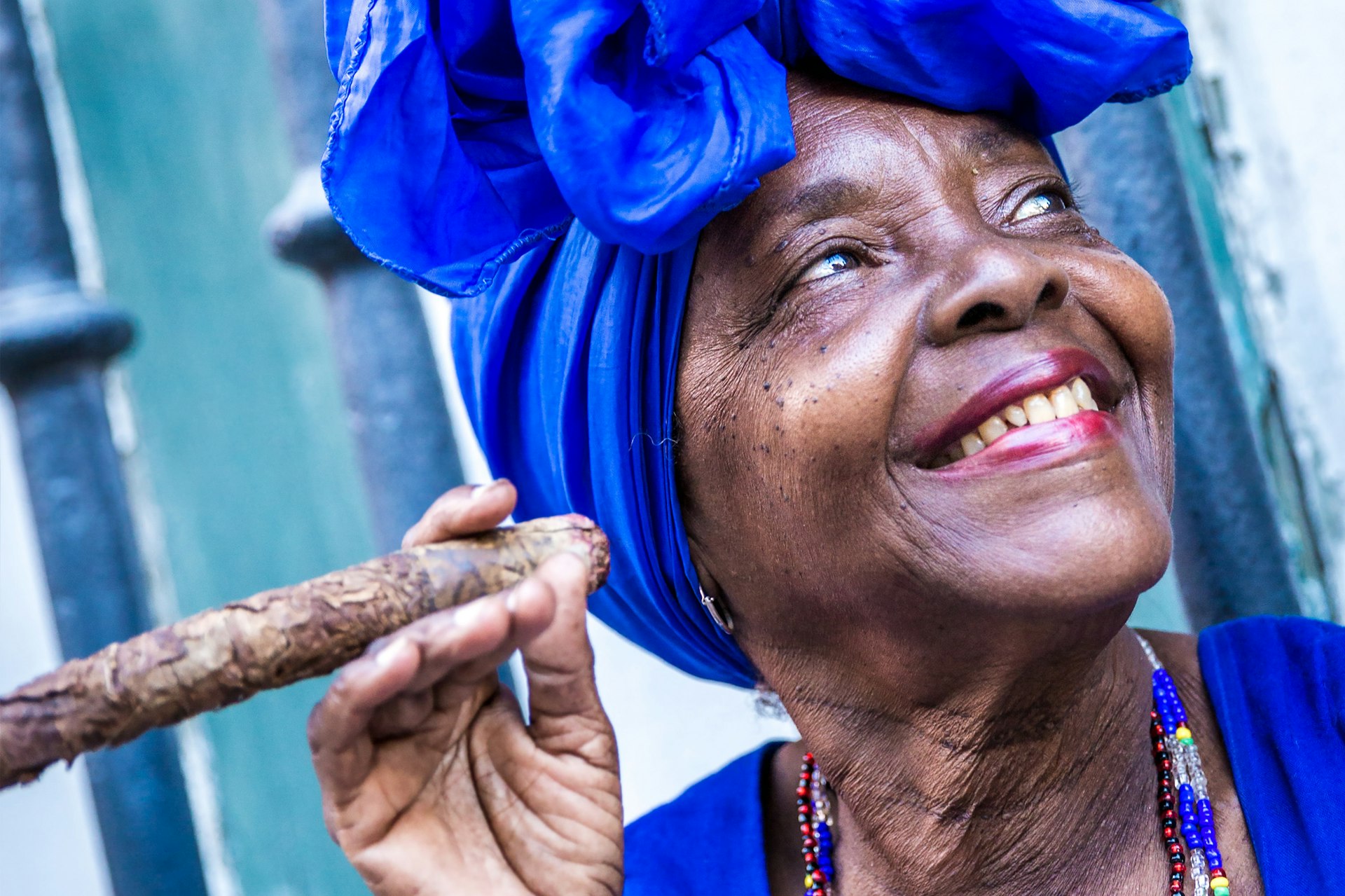
17. Avoid dodgy cigars
Cuba has its share of jineteros (touts) spinning elaborate stories about super-cheap, high-quality cigars procured by their brother/mother/cousin from the factory. Don’t believe them. Instead, buy your cigars in state-run shops such as the Casa del Habano chain. Cigars sold on the street are invariably factory cast-offs and not genuine.
18. Driving is not as easy as you think
With light traffic on the road, driving might seem like an easy proposition, but with elevated rental prices and cars often in short supply, it’s not always so.
Add in sporadic signposting, potholed roads and a wide array of hazards – goats, horses, bicycles, kids and slow-moving, fume-belching trucks – and you might want to consider getting the bus or, at least, employing the services of a chauffeur.
19. Bring toilet paper and sanitary products
The pandemic made the provision of antiseptic hand lotion more common, but the same can’t be said of toilet paper. Carry your own roll and/or gravitate to four- or five-star hotels when you’re caught short in the city.
Re-usable pads and silicon cups, or disposable pads and tampons are must-pack items if you're expecting your period while you're in Cuba. These are in high demand here.
20. Don’t drink the water
The water won’t kill you, but it might give you a little queasiness or an upset stomach. Fortunately, bottled water is abundant and cheap. An even better idea is to bring your own filter bottle or water purification tablets.
This article was first published Feb 5, 2022 and updated Jan 5, 2024.
Explore related stories
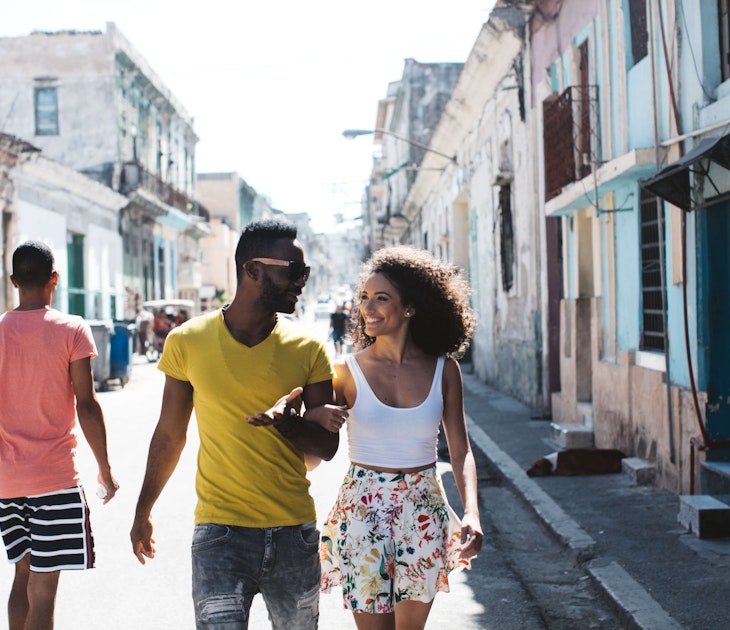
Tips & Advice
Jan 18, 2024 • 4 min read
Travelers often have questions about the visa process for Cuba and whether US citizens can even visit. Here’s our guide to Cuba’s visa requirements.

Jan 9, 2024 • 4 min read
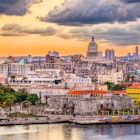
Jan 9, 2024 • 6 min read

Jan 7, 2024 • 10 min read
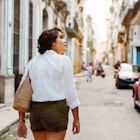
Jan 6, 2024 • 7 min read

Jan 5, 2024 • 4 min read
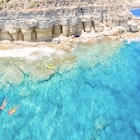
Nov 24, 2023 • 7 min read

May 6, 2023 • 9 min read

Jan 6, 2023 • 7 min read

Jan 5, 2023 • 8 min read

Cuba Travel Guide for U.S. Citizens: What to Know Before You Go (Updated 2023)
Feb 3, 2023 | Caribbean , Destinations | 0 comments

Planning this trip to Cuba was the most challenging thing I’ve done to date in the name of travel. Out of all 26 countries, thousands of miles, from 5 years of traveling the world.
Once we landed in Havana, I knew that this place was unlike any I’d visited before.
Had I allowed the logistical challenge of traveling to Cuba as a US citizen deter me from visiting this country, it would have been my greatest mistake.
This Cuba travel guide for US citizens is up to date as of early 2023, based on my experience traveling to Cuba in December 2022.
In this post, I will cover Cuba travel FAQ and share how to visit Cuba legally as a US citizen or from a US airport.
Before you read, please note that there are sanctions from the U.S. government that restrict travel to Cuba.
It is the responsibility of each visitor to follow all laws and regulations, at home and abroad.
This website has a limitation of liability policy that applies to all posts, which you can read here .
This post contains affiliate links. See more in the disclaimer .
Can Americans Travel to Cuba?
Yes. And you can even do so independently.
The key is to visit legally, within the confines of OFAC (Office of Foreign Asset Control) regulations due to the embargo and sanctions.
IMPORTANT: These regulations also apply to non-US citizens that are departing from a US airport.

How to Travel to Cuba Legally
There are 12 categories of legal travel to Cuba under OFAC:
- Family visits
- Official business of the U.S. government, foreign governments, and certain intergovernmental organizations
- Journalistic activity
- Professional research and professional meetings
- Educational activities
- Religious activities
- Athletic competitions by amateur or semi-professional athletes or athletic teams
- Support for the Cuban People
- Humanitarian projects
- Activities of private foundations or research or educational institutes
- Exportation, importation, or transmission of information or information materials
- Certain authorized export transactions
Source: U.S. Department of the Treasury
The most common is Support for the Cuban People, which requires the following:
§ 515.574 Support for the Cuban People. (a) General license. The travel-related transactions set forth in § 515.560(c) and other transactions that are intended to provide support for the Cuban people are authorized, provided that: (1) The activities are of: (i) Recognized human rights organizations; (ii) Independent organizations designed to promote a rapid, peaceful transition to democracy; or (iii) Individuals and non-governmental organizations that promote independent activity intended to strengthen civil society in Cuba; and (2) Each traveler engages in a full-time schedule of activities that: (i) Enhance contact with the Cuban people, support civil society in Cuba, or promote the Cuban people’s independence from Cuban authorities; and (ii) Result in meaningful interaction with individuals in Cuba. (3) The traveler’s schedule of activities does not include free time or recreation in excess of that consistent with a full-time schedule. Source: Code of Federal Regulations
It will not be a vacation where you go to the beach and prop your feet up, buy things wherever you want, and stay wherever you want.
You must have a full-time schedule of activities that result in meaningful engagement with Cubans.
For us, that looked like many, many art tours and private gallery visits where we connected with local artists and had countless meaningful, deep conversations.
No topic was off-limits.
Everyone opened up (including us) and shared our passions, life experiences, opinions, and learned about one another. And yes, we talked about politics.
We were on the go, all day, every day.
And we didn’t really spend time with other foreigners. We crossed paths with foreigners a couple times, but everyone else we spoke to and spent time with was Cuban.

Casas particulares and paladares
Aside from your full-time schedule, you should also stay in casas particulares and eat at paladares.
A casa particular is a room in someone’s house. It’s been a normal way to travel in Cuba for years. There’s an infrastructure around it. You can find them on Airbnb.
We highly recommend this casa particular in Havana and this casa particular in Viñales.
Paladares are privately-owned small restaurants. Download A La Mesa for a list of restaurants all over the country. Each listing shows if it’s privately-owned.
The app also works offline, which will make your life much easier in Cuba.
Pro tip: If you’re also a vegetarian, make sure you try Camino al Sol ! It’s an all-vegetarian paladar in Havana.

What you are banned from doing in Cuba
You cannot spend money in OR interact with any of the places on this list from the US Treasury Department.
Many are hotels, so pay attention!
I copied and pasted these into a list to have on my phone, then accessed it offline while in Cuba to ensure there wouldn’t be any issues.
Is Cuba safe to visit?
Absolutely.
As a young woman who visited 25 countries before going to Cuba, I’ve been in a few…sticky situations. Cuba was amazing.
I never worried about being robbed and just felt at ease the entire time I was there. I tend to be a more anxious person, so that’s new for me.
This is my personal experience and I was not in Cuba as a solo female traveler, so yours could be different.
Is Cuba open for travel right now?
As of late 2022, visitors no longer need to show proof of Covid-19 vaccination or testing before entering Cuba. We brought our vaccine cards just in case, but no one asked to see them.
Please refer to this government site for updated information before your visit.
On our way back to the United States, we did have to share contact tracing information with our airlines using a form before we could check in. It was quick and easy.
Although many online sources claim masks are mandatory in certain settings, we did not see any places where masks were required in December 2022.

Accessing Money in Cuba: 2023 Updates
Everything you need to spend in Cuba must be in cash.
Because of the sanctions, your credit and debit cards will not work in Cuba.
If you try to use them, your bank will probably lock your account and it will take a lot of effort to get it unlocked.
In prior years, you would need to convert money to Cuban pesos before using it. Euros were the best to have because CADECA (the government exchange houses) charged a higher fee on USD exchanges.
As of late 2022, everywhere we went accepted U.S. dollars as payment. This was highly unexpected and deviated from every piece of advice I read online before leaving for Cuba.
However, it is still good to have some pesos for a fairer exchange rate. Some menu exchange rates were awful.
When we were in Cuba, we typically got 150 CUP for 1 USD. The CADECA rate was 110.40 CUP for 1 USD.
We exchanged money at our first casa particular and spent USD on activities, private taxis, and one of our casas. We usually spent pesos on art, food, and coffee.
Make sure you get cash in plenty of small bills. Twenties, tens, fives, and ones were useful. Anything larger than that will be annoying to deal with.
If your bank will only give you large bills, go to Publix and ask the customer service to break them when they’re not busy. Works like a charm!

Is it safe to exchange money on the street in Cuba?
You will be offered money exchange on the street wherever you go in Cuba. Just say “No, gracias,” and move on.
As a general rule of thumb, it is not safe or advised to exchange money on the street. This goes for wherever you are in the world.
The main reason it’s unwise to do this is forged currency. If it came from some random person, it may be counterfeit.
A local friend taught us how to know your Cuban pesos are real. Hold the bill up to the sun, and check the watermark.
The watermark will have a number on it, and that number must match the value of the bill.
If it’s a 100-peso bill, the number in the watermark should say 100.
Again, I do not recommend exchanging money in the street. We didn’t on this trip because we were able to get pesos from the front desk of our casa particular.
If you’re ever concerned about any bills you were given as change, use the tip from our friend for some peace of mind.
I also want to make it clear that we were never given counterfeit bills as change while in Cuba, but these things can happen anywhere.
You’re more vulnerable as a foreigner, because you don’t know exactly how the money is supposed to look.

Getting WiFi in Cuba
If a travel guide says there are only one-hour WiFi cards, it is outdated.
Now, you can access WiFi on a one-hour or a five-hour card.
WiFi is now cheaper in Cuba—it was $5 USD per hour; now, it’s $1 USD per hour.
We only needed one 5-hour card per person for the whole week.
Instead of waiting in the ETECSA line, we bought them from our first casa particular .
Overall, our Cuba WiFi experience was much easier than what we expected.
Don’t expect to be online all the time, but WiFi access is not as difficult as prior years.
Pro tip: The two main apps I highly recommend to download BEFORE you leave for Cuba are A La Mesa and Maps.me . Both work well offline and will save you such a headache.
On Maps.me specifically, also download the maps of each city/town you will visit in Cuba. In our case, I downloaded the maps for Havana and Viñales. When you have Internet access, put your casa particular addresses in a Note on your phone, so you copy and paste them into Maps.me whenever you need to. Same goes for any attractions you know you want to see.
If you want (and if your phone is unlocked), you could get a Cuba sim card, which comes with data. I don’t see the point for a one-week trip, but to each their own.
You can reserve those online in advance from Suena and pick them up at the José Martí airport (in Havana). If you go this route, you want the Tourist SIM Card from the top menu.

Can you drink the water in Cuba?
In short, no.
There was bottled water for sale everywhere on our trip in December 2022, but I read online before leaving that you can’t bank on that.
Instead, I bought this LifeStraw to have filtered water and it was the best travel purchase I’ve made. Ever.
Our Viñales casa particular hostess took one look at that bottle and pointed me to her giant drinking water spigot for us to have freely.
She was already familiar with the water situation for foreigners and told me it was smart to bring a reusable filtered bottle.
Highly recommend one of these !

Can you check in online for flights to Cuba?
There are too many documents the airlines must verify before they can issue a boarding pass.
You will also need a paper boarding pass for your Cuban health insurance, often included in your departure airfare.
Do you need to speak Spanish to visit Cuba?
Out of all Spanish-speaking countries I’ve visited, Cuba is the main one you need at least some language skills to visit.
There are people who speak English, especially young people, but it is not the norm.
If you don’t speak Spanish and you’re not traveling with a friend who does, download Google Translate for offline use before you arrive.
It won’t be ideal, but it will work when you need language help.
The best advice I can give is to travel with someone who speaks Spanish fluently. My best friend said many times while we were in Cuba that she would be toast without my language skills.

Can I bring Cuban cigars and rum back into the USA as souvenirs?
The answer used to be yes, as long as you purchased them from a private shop instead of a stated-owned one.
That answer is no longer the case, as of late 2022.
Now, you cannot bring any rum or cigars into the USA from Cuba, no matter how small the amount is or where they were purchased within Cuba.
When you arrive back into the USA, Customs and Border Patrol will ask if you have any rum or cigars. If you do, assume they will be confiscated.
What to Pack for Your Cuba Trip
I pack carry-on only and found Cuba to be one of the easier countries to pack for. The climate in December was perfect, with 80s in the day and 60s-70s at night.
Here is a short packing list of the things you need before going to Cuba:
- Mosquito repellent, because the insects in Cuba will eat you alive (I use these .)
- Comfortable shoes for lots of walking
- Cardigan or light sweatshirt
- Flowy/comfortable clothes (You can see one of the outfits I packed below.)
- One active wear outfit for hiking/horseback or bike riding (if you’re going to Viñales)

I hope this Cuba travel FAQ was helpful for you. I know how stressful it can be to figure out what to do when planning. If you have any questions, comment below and I’ll do what I can to help!
Read more Cuba travel guides:
- Cuba Pre-Departure Checklist
- What to See and Do in Cuba (Havana and Viñales)
- At Dusk in Havana, I Fell in Love
- Havana, the Art Sanctuary
- When It Destroys, It Starts with Us
- The Elephant in the Room: Socialism in Cuba
Save on Pinterest

Share this:
- Click to share on Facebook (Opens in new window)
- Click to share on Twitter (Opens in new window)
- Click to share on Pinterest (Opens in new window)
- Click to share on Reddit (Opens in new window)
Leave a Reply Cancel reply
Hi, I'm Sarah

Welcome to my oasis! I am a writer and budding entrepreneur with a love for caffeine, capital gains, and seeing the world. If I'm not writing, you can find me reading a good book, trying out a new vegan recipe, or adding to my coffee mug collection. My goal in life? To see every country in the world. Come along for the ride!

- 800-450-2822
- Travel Agents
Search form
- Your Booking
- insightCuba
- Classic Cuba
- Weekend in Havana
- Private Departures
- Custom-Made Tours
- Support for the Cuban People Travel
- Boutique Residences
- When to Go?
- Cuba Destinations
- Entry Requirements
- Travel Insurance
- Cuba Travel History
- Official Documents
- What to Bring
- Things to Know
- Health and Safety
- Regulations
- Electronics
- Havana Marathon
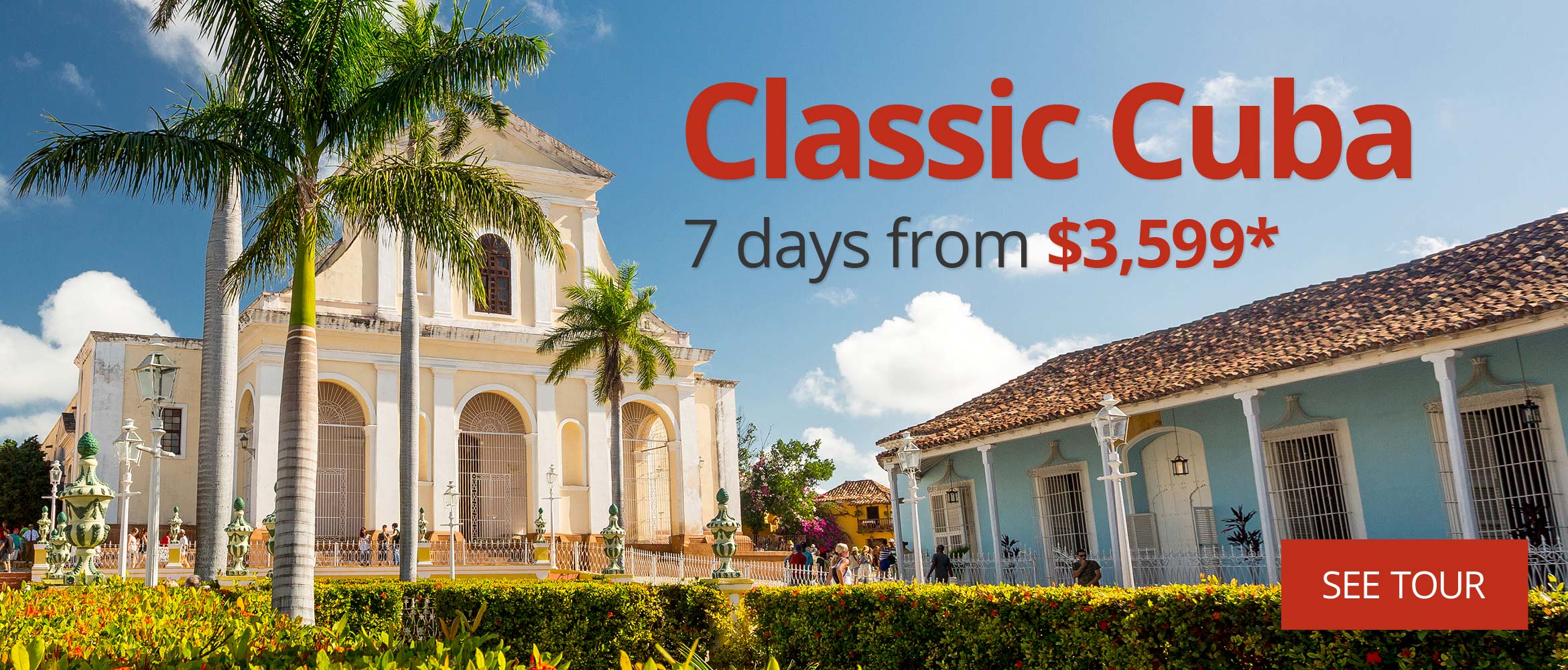
Cuba is ready to welcome you:
Cuba… a place and a people rooted in culture, history and curiosity. There is no better time to travel to Cuba… and see it for yourself. Join us, the leader in legal, small group Cuba travel, and experience firsthand this once-forbidden country in ways never before possible.

Featured Cuba Tours
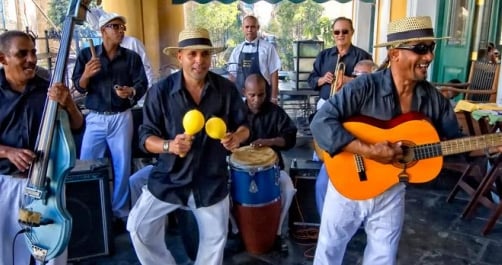
Throw back the curtain on this vibrant city and discover, at long last, how its jovial soul has the power to delight and inspire you.
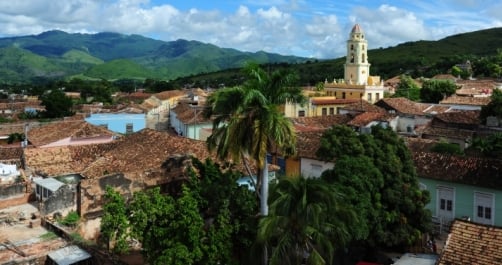
This exciting, eight-day tour of journey to Cuba's most famous cities will add the brushstrokes to the unfinished canvas of your vision of Cuba.
An immersive discovery where you’ll witness Cuba's incredible people, budding entrepreneurial scene, and dynamic rhythm and color.
Featured In
“…sign up with InsightCuba... The tour operator has taken Americans on tours of Cuba for the last 15 years.”
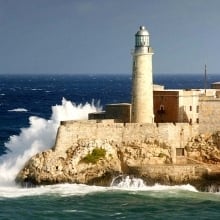
Thank you, insightCuba, for a trip of a lifetime.

"[InsightCuba] has been doing business in Cuba, and only in Cuba, for a long time, so its employees have the right relationships and know the country better than others."
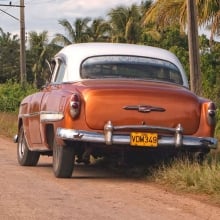
Words cannot describe.... The people, the music, the architecture and rich history... Stunningly beautiful and magical!

"For half a century the vast majority of Americans have been barred from traveling to Cuba...with insightCuba, visitors interact with ordinary Cubans and get a taste of the forbidden fruit."
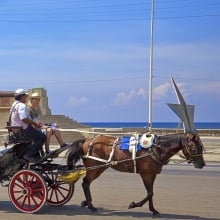
The trip was exactly what I was looking for. I liked going to the various schools and museums to get a real feel of the country.

Subscribe to our Newsletter

101 Greenwood Ave, Suite 500 Jenkintown, PA 19046
- 914-380-8303
- Privacy Policy
- Terms & Conditions
© Copyright 2000-2024 insightCuba. All Rights Reserved.
Photos courtesy of Robin Thom.
* Advertised prices are per person, based on double occupancy; single occupancy rooms may be available for an additional charge. Advertised prices are the best available based on the least expensive travel dates, departure city, and other options, and do not include optional excursions or other optional items. Your total price will vary based upon options you select during the booking process. Prices and availability subject to change.
† The Carefree Booking policy is not travel insurance. With our Carefree Booking policy, if you book one of our scheduled departures and decide later not to travel for any reason, you can transfer all payments you've made excluding the cost of any issued flight tickets, towards another available departure date or package, with no change fees or penalties. Alternately, you can choose to receive a future travel credit for all payments made, excluding the cost of any issued flight tickets; or you can choose to receive a refund for that same amount, minus the deposit, per person future travel credit. You may use these credits anytime, however they must be used or transferred within 5 years of your bookings, and some restrictions apply. Travel protection premiums may be credited to your new tour provided: no claim is filed; (no vendor penalties such as Air, sea or rail etc have been incurred); and your new trip departs within 1 year of the cancellation of your original tour. Valid for bookings made on or after August 2, 2022. Changes or cancellations requested after final payment due date are subject to our regular change and cancellation fees & policies. For more information and some additional restrictions, see our terms & conditions .
†† $199 deposit available on select packages. Valid for new bookings only. Changes to your package, departure date, or flights may require an increased deposit. See additional terms & conditions .

Ultimate Guide to Travel to Cuba (2024 Update)
Cuba is well known for its white sand beaches, delicious rum, and world-famous cigars… but you might be surprised learn just how much Cuba has to offer travelers. From incredible hiking destinations and wildlife preserves to fascinating historical sites and modern art galleries, Cuba is so much more than most visitors expect.
Unfortunately, there is a lot of confusion about who can travel to Cuba (hint: yes, Americans can travel to Cuba ! ) and how to travel to Cuba. Thankfully, Cuba travel is easy for just about anyone.
In this ultimate guide to travel to Cuba, we’re covering a ll the details about how to travel to Cuba, the best things to do in Cuba, and why you need to add Cuba to your travel bucket list .
Plus, keep reading for all the inside tips we’re sharing about what to pack for your trip, and what to leave at home.
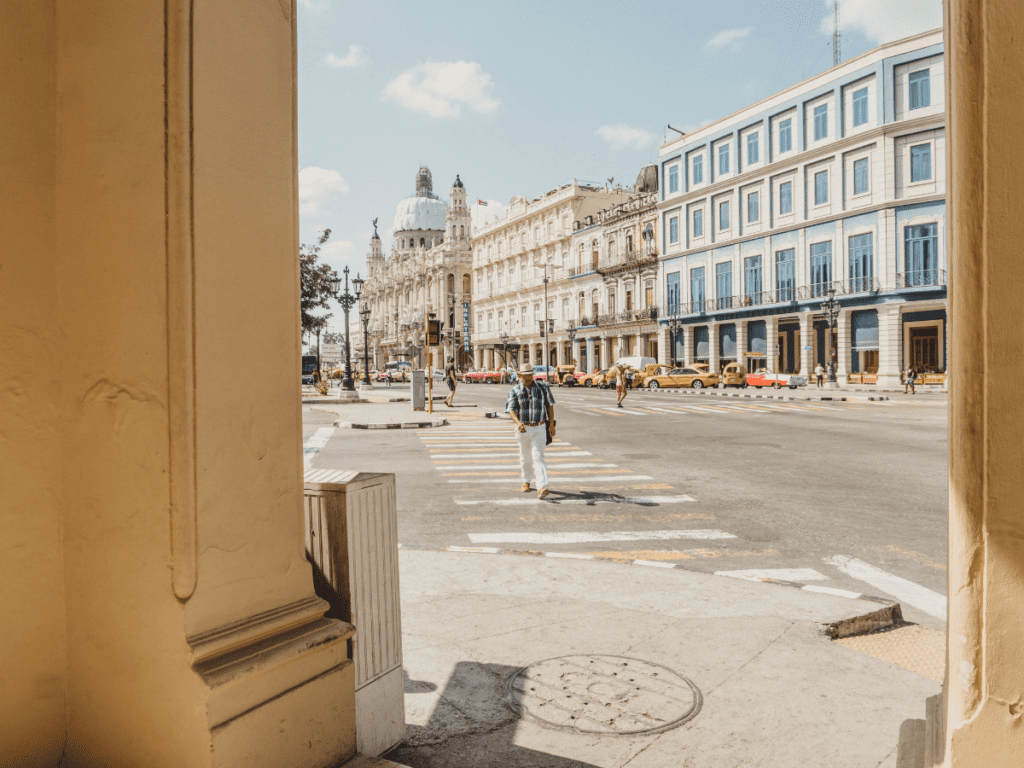
This post contains affiliate links that may reward me monetarily or otherwise when you use them to make qualifying purchases – at no cost to you. As an Amazon Associate, I earn from qualifying purchases. For more information, please read our disclosure policy .
Cuba at a Glance
Who can travel to cuba.
Everyone can travel to Cuba! – even U.S. citizens or citizens of other countries traveling through the United States. U.S. citizens are required by the United States government to only spend money at private businesses (rather than government-run establishments) while there – which is quite easy to do.
Read More: Ultimate Guide to Travel to Cuba from the United States
Cuba uses the Cuban peso , valued at 24 pesos to $1 USD . However, since 2021 Cuba has been experiencing high inflation, and the official exchange rate is much lower than the one you’ll find if you exchange your money with a moneychanger.
Read More: Currency in Cuba: Ultimate Guide to Changing and Using the Cuban Peso
Spanish is the only language spoken in Cuba, with English occasionally spoken in the tourism industry . Download Google Translate before your trip to help. Check out our guide to the apps you’ll need for travel in Cuba for more recommendations.
Cuba is known for being an extremely safe country , much safer than most other places in Latin America or the Caribbean.
Take precautions that would generally when traveling – don’t be excessively flashy with jewelry, hold on to your stuff well in crowded areas, etc. You can find more Tips for Visiting Cuba like these from a fellow traveler here.
Electricity
Some areas of Cuba use 110V electricity while others use 220V electricity , and you’ll find a mix of plug types in different places around the island. We recommend bringing along a universal travel adapter and electrical converter so you can use your devices while there.
Internet in Cuba isn’t everywhere yet, but it is generally easy to access , although slower than you may be used to. We wrote a complete guide to using the internet in Cuba with all the details.
We recommend using a VPN (Virtual Private Network) when using the internet in Cuba. Check out our complete guide to using a VPN in Cuba for more details.
Required Insurance for Travelers
Cuba requires that all travelers show proof of travel insurance coverage upon arrival. We recommend Visitors Coverage for American and Canadian citizens and World Nomads for those of other nationalities.
Read More : Ultimate Guide to Cuba’s Travel Insurance Requirements
Our Most Popular Cuba Guides
- How to Legally Travel to Cuba from the United States (It’s Easy!)
- Ultimate Guide to Havana, Cuba
- Ultimate Guide to Varadero Beach, Cuba
- How to Get the Tourist Visa to Cuba
- Cuba’s Required Travel Insurance: What You Need and How to Get It
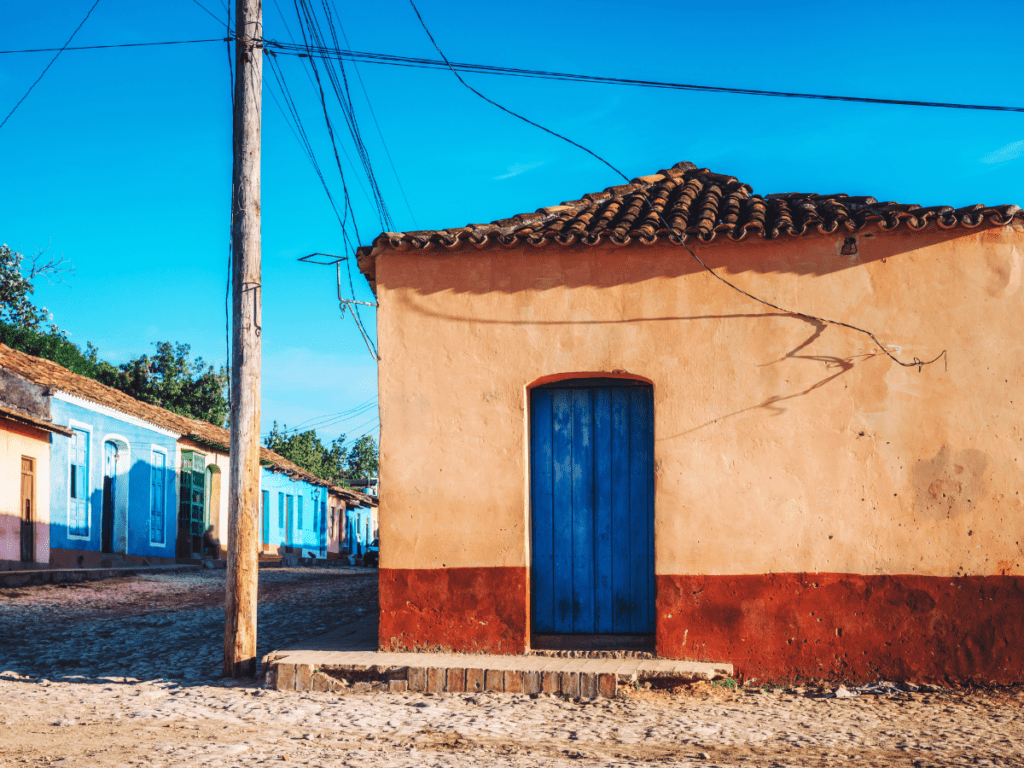
Weather in Cuba
A tropical country, Cuba has two seasons: the wet season and the dry season . The heat will generally dip slightly in the winter months (November through April) , but not much.
While the dry season generally attracts more tourists, the weather is perfect for a visit. May is a good time to visit as well, with the weather still nice and fewer tourists.
Dry Season: November – April
Wet Season: May – October
Don’t forget, Cuba occasionally experiences hurricanes . Peak hurricane season is from mid-August through mid-October.
Peak Tourist Season
Peak tourist season in Cuba lasts from early December through the end of March. Peak tourist season generally starts with a huge spike around the holiday season , when many Cubans living abroad come home to visit family.
Visiting around Christmas and New Year is when I’ve seen the greatest price increase in the price of flights and accommodations across the island – try to avoid these weeks if you can.
Best Things to Do in Cuba
Visit havana.
The craziest and most beautiful city in the world in our most humble opinion, Havana is like no other place on the planet.
Many say it’s stuck in the 1950s, but they couldn’t be more wrong – Havana holds on to its history beautifully while moving forward in a wholly modern way that will leave you enchanted.
Some of the best things to do in the city include exploring Old Havana , taking in the view over the city at the Cristo de la Habana , and ending the night with a drink and a show at the Fábrica de Arte Cubano .
Planning A Trip to Havana?
Check out our travel guides for insider information:
- Ultimate Travel Guide to Havana, Cuba
- Where to Stay in Havana
- The Best Airbnbs and Casa Particular Rentals in Old Havana
- The Best Airbnbs and Casa Particular Rentals in Vedado
- The Best Cafes in Havana and The Best Brunch in Havana
Visit Cuba’s Beaches
Cuba is known for having some of the world’s most beautiful beaches. Not only that, but many of them are as close to virgin, untouched beaches as you can still find in the Caribbean, which makes for an unmatched experience.
Check out our guide to the Top 10 Best Cuban Beaches to help you choose which to add to your itinerary.
The Beaches of Holguin
The province of Holguin is home to some of Cuba’s best beaches – Guardalavaca, Playa Pesquero, and Playa Esmeralda. Check out our ultimate guide to Holguin, Cuba for more details.
Varadero is the best-known beach in Cuba due to its proximity to Havana – it’s the perfect getaway from Havana for those looking to spend time in both the city and at the beach. If you’re picturing crystal clear waters and white sand , you’re thinking of Varadero.
While Varadero has a built-up infrastructure so you’ll have everything you’d want at your fingertips, there are also areas of Varadero where you can still get a slice of the beach all to yourself.
Read More: Ultimate Guide to Varadero, Cuba
Cayo Coco and Cayo Guillermo
This incredible pair of ‘cayos’ aka ‘keys’ located on the north shore of Cuba are served by their own international airport and have about a dozen large international hotel chains between them.
They’re some of the most underrated islands in the Caribbean .
If you’re looking for an all-inclusive beach experience, I recommend checking out these two keys and some of the incredible hotels they have to offer. The beaches here are truly pristine – some of the best beaches in Cuba .
Playa Ancón – Trinidad, Cuba
Playa Ancon is known as one of the most beautiful beaches on the southern part of the island, and is close to Trinidad, Cuba , an absolute colonial gem of a city that will take your breath away.
If you’re looking to get outside of Havana and Varadero track, which most travelers visit, we definitely recommend considering Trinidad and Playa Ancon!
Ride in A Classic American Car
The cars in Cuba are absolutely enchanting. While they’ve been kept on the road mostly out of necessity, it makes for a car-lover’s dream to see city streets packed with them.
A ride in a vintage convertible along Havana’s famous Malecón sea wall is a must while in Cuba.
Visit A Tobacco Farm in Viñales
Get up close and personal with one of Cuba’s most famous exports in Viñales , at the heart of the best tobacco-growing region in the country.
Here you can travel by horseback to beautiful tobacco farms where you’ll learn about how tobacco is grown, dried, and formed into world-famous cigars.
Viñales is also one of the most beautiful places in Cuba – this stunning valley is a UNESCO World Heritage Center . It’s an unforgettable way to see a stunning area of the country while this excursion!
What to Pack for Cuba
Check out our Ultimate Cuba Packing List to help you pack for your trip – we’re sharing exactly what to bring to Cuba and what we never travel without.
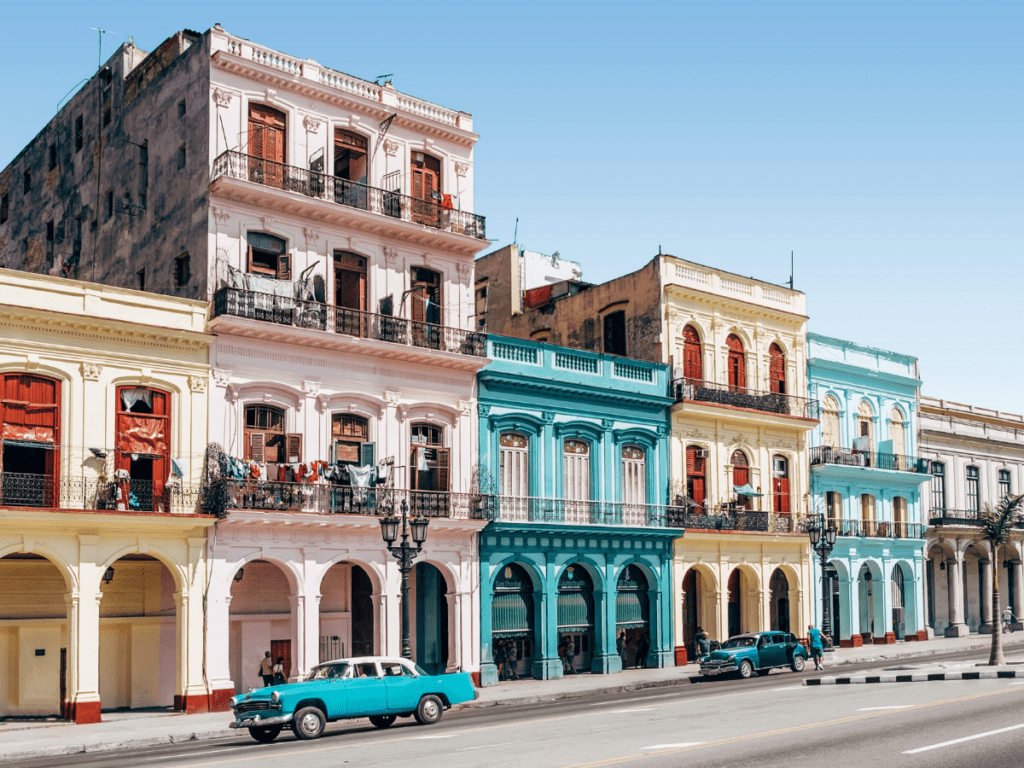
Learn About the Cuban Revolution
Cuba is so much more than the Cuban Revolution! The evidence of the revolution is everywhere, certainly, but there is so much more you’ll see and learn here as you meet the people, try the food, and see the art here in Cuba.
Make sure to visit these sites if you’re interested in learning more about the Cuban Revolution:
- Plaza de la Revolución in Havana
- Comandancia de la Plata in the Sierra Maestra mountains , the mountain base where Fidel and his band of revolutionaries launched their attacks
- Museo de la Revolución , a former presidential palace converted into the Museum of the Revolution in Havana. You’ll find American tanks captured in the attack on the Bay of Pigs behind the museum.
Learning more about the Revolution can be absolutely fascinating for visitors, and a great way to understand more of what you’re seeing and experiencing.
Make sure to check out this free walking tour in Havana focused on the Revolution as a fantastic way to learn more about what you’ll see in Cuba!
Want to learn more?
We made a list of a few books to read and movies to watch to inspire your travel and help you learn more about Cuba, past and present. Check them out before you go to learn more about the Cuban Revolution and much more.
- Books to Read Before You Travel to Cuba
- Movies to Watch Before You Travel to Cuba
Top Activities in Cuba
This list doesn’t even scratch the surface of what Cuba has to offer.
Make sure to check out our complete guide to the best travel experiences and activities in Cuba – totally travel-restriction compliant for travelers from the United States!
Where To Stay in Cuba
Casa particularles.
Casas Particulares – or, guest houses – are a fantastic option for staying in Cuba. You can find an amazing selection of rentals of all kinds, from luxury beach houses to staying with a family in a spare bedroom or renting a simple city apartment.
Not only do rentals usually get you a lot more for your money, but you’re supporting small business in Cuba and you’ll get a much richer cultural experience.
We’ve always had the best luck searching with, ironically, Hotels.com .
Despite their name, Hotels.com actually has a great selection of guest houses, private apartments, and Airbnbs for rent – with the best selection for Cuba!
Casa Particular Guides:
- Best Casas Particulares in Old Havana
- Best Casas Particulares in Vedado, Havana
- Best Casas Particulares in Viñales, Cuba
- Best Casas Particulares in Holguin, Cuba
Airbnb is one of the most popular platforms for finding rentals, but plenty of others exist as well and many people rent their listings across multiple platforms.
While we always recommend staying in a casa particular over a hotel, there are more and more amazing options in Cuba these days.
There are several new luxury hotels in Havana and in Cuba’s beach towns, but I recommend the boutique hotels like this one which can be just as luxurious and offer a more personalized stay.
All-Inclusive Resorts
There are many all inclusive resorts in Cuba, especially from companies like Iberostar and Melia , and they’re especially lovely ones located in Varadero and the Cayos – the Keys – on the northern coast of Cuba.
Cuba Accommodation Guides
- Where to Stay in Viñales, Cuba
- Where to Stay in Holguin, Cuba
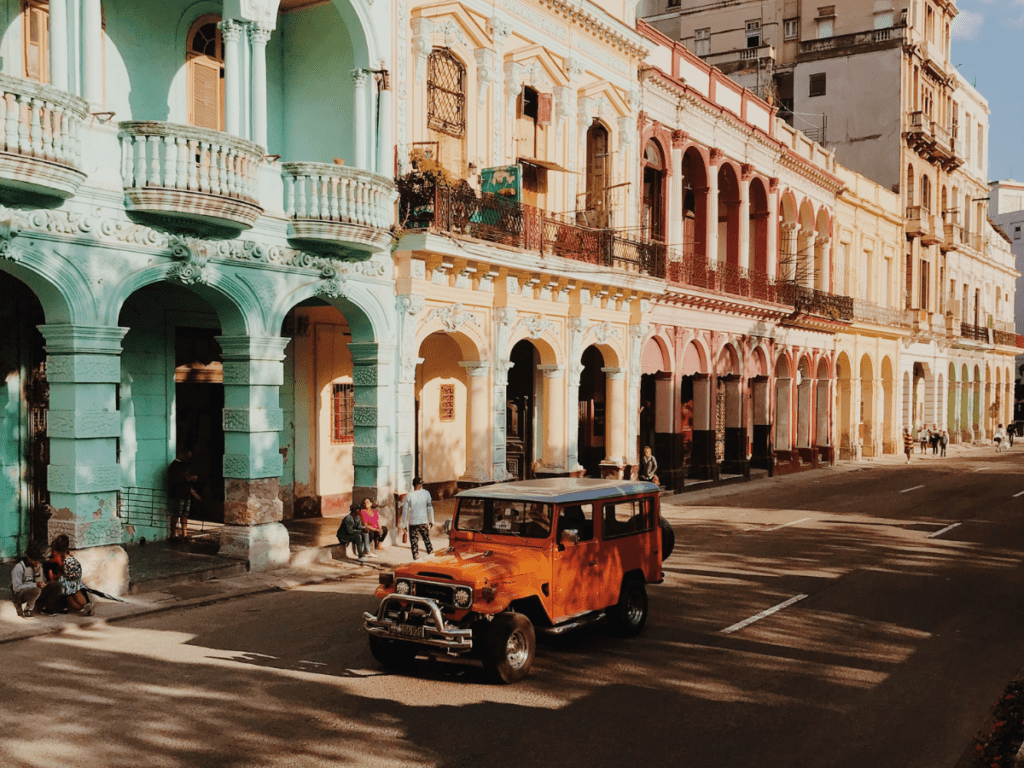
Cuba can be a tough place to pack for – you’ll probably be combining time in the city, on the beach, or in the countryside.
Plus, there are a lot of things you just WON’T be able to find in Cuba no matter how hard you look, meaning you need to plan ahead!
We created an ultimate packing list for Cuba – so make sure to click through to this list to see all of our recommendations for packing (for men and women), plus important travel essentials!
Cuba Travel Essentials
- CASH – if you’re a U.S. citizen, you won’t have access to debit or credit cards while in Cuba . Check out our guide to traveling with cash in Cuba for more details.
- SteriPen – purify water from any source so you won’t get sick!
- Water Bottle (with water filter!)
- S-Biner locks for backpacks and purses while out and about
- Luggage locks
- Comfortable and lightweight basics – I love Los Angeles Apparel clothes for travel, especially to Cuba. These high-quality basics are perfect for layering, and mixing and matching for traveling light (PLUS they’re ethically produced in the United States).
- Go Toobs are the BEST for bringing toiletries.
- Make a mini first-aid kit with a few bandaids, aspirin, triple antibiotic, and alka seltzer just in case!
- Reef-safe sunscreen
- Light clothing that will keep you cool in the sun
- Comfortable shoes – get ready for a lot of cobblestones and uneven sidewalks
- Feminine Hygiene Products- I have NEVER been able to find tampons in Cuba – and the period products I have had to purchase there are incomparably bad. Absolutely come prepared, ladies!
- A electrical plug adapter and converter
- A tablet (we love the Amazon Fire !) pre-download some audiobooks and any TV shows or movies you’ll want to watch while you’re in Cuba… internet speeds in Cuba will make downloads slower than you’re used to or impossible.
- A spare memory card for your camera – also something that can be extremely challenging to find in Cuba!
- NordVPN or another Virtual Private Network service . Not a physical product, but something you shouldn’t travel without! Check out our guide to using a VPN in Cuba , and our guide to using a VPN for international travel .

Carley Rojas Avila
Carley Rojas Avila is a bilingual travel writer, editor, content marketer, and the founder of the digital travel publications Home to Havana and Explorers Away. She is a serial expat and traveler, having visited 40+ countries and counting. Carley has written for publications like Travel + Leisure, MSN, Associated Press, Weather Channel, Wealth of Geeks, and more. Find her front row at a Bad Bunny concert, befriending street cats, and taste-testing every pizza in Havana.

The #1 Active Travel Company In Cuba
Immersive cultural tours including sea kayaking, hiking, walking, cycling & more - Since 2015
Can Americans Still Travel to Cuba?
Yes, U.S. travelers can still go to Cuba legally and we provide you with the necessary visa at no extra charge!
Find Your Adventure
Cuba unbound - signature tour.
Our Signature Cuba tour will leave you nothing but stunned. Exploring the Island by kayak and foot, you'll find yourself immersed into Cuban culture and wildlife!
Cuba Walking Tour
Join us to uncover Cuba’s sublime eccentricities on this exciting eight day tour through the best of Cuba’s national parks, nature reserves, and world heritage sites.
Western Cuba Cycling Tour
Guaranteed departures for 4 or more people! Please inquire today to begin the booking process.
Cuba Multisport Tour
Guaranteed departures for 4 or more people! Please inquire today to begin the booking process. Cuba's Best Multi-Sport Tour
As featured in:

Phone 813-263-6300 | Email: [email protected]
- Testimonials
- Print Press
- Video Press
- Pictures of Cuba
- Frequently Asked Questions
Cuba Travel Adventure is your guide to Cuba. Exotic culture, 90 miles away…
Cuba is one of the most amazing places in the world. It has architecture from the 1500s, stunning beaches and a mountain paradise more typical of the South Pacific. But what really sets Cuba apart are its people and culture. Famous for their music, arts and dance, Cubans are also very educated. Add into this a set of restrictions leading to virtually no American commercialization, and you have one very unusual place.
Until recently, most Americans were forbidden to visit this tropical wonderland. As a result of the loosening of travel restrictions, Americans can now visit legally under our cultural exchange umbrella. We have organized a set of people-to-people activities that will introduce you the remarkable and unique country that is Cuba.
Museums and History
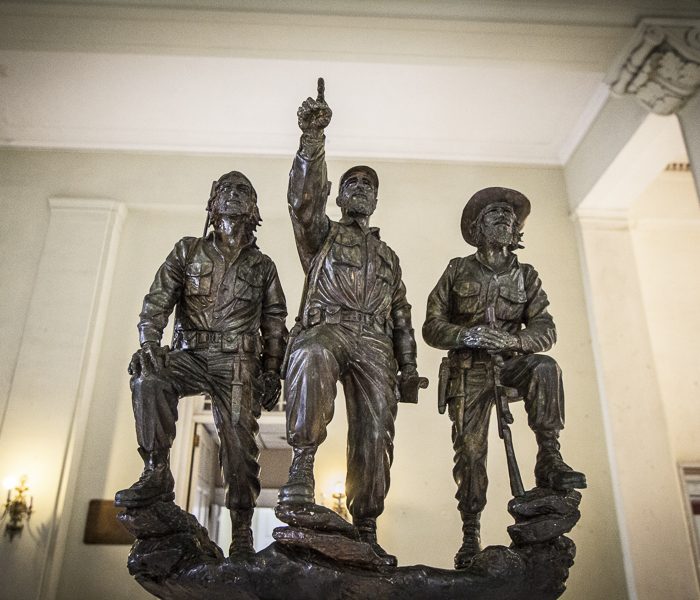
A city dating back to the 1500s, there is an endless amount of history to learn in Havana. A trip to the Museum de la Revolucion is a must, as well as taking tour of the city on a double decker tour bus. Spanish settlements and Soviet Cold War era structures dot the landscape, along with landmarks of the Revolution.
Viñales National Park
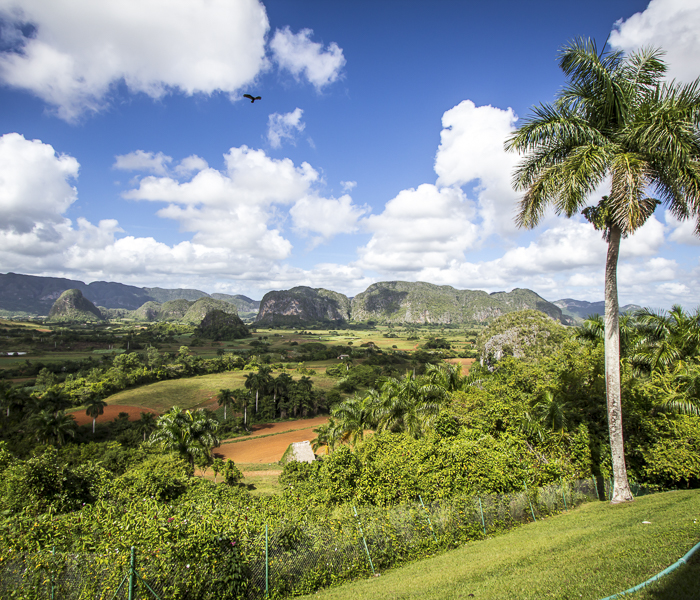
A must see on a trip to Cuba, this valley in the Pinar del Rio region of western Cuba is world famous for the mix of climate and soil that produces the tobacco in Cuban cigars. Mountainous bumps in the landscape, know as Mogotés, resemble something seen only in Southeast Asia. A magnificent region to explore.
Arts and Culture
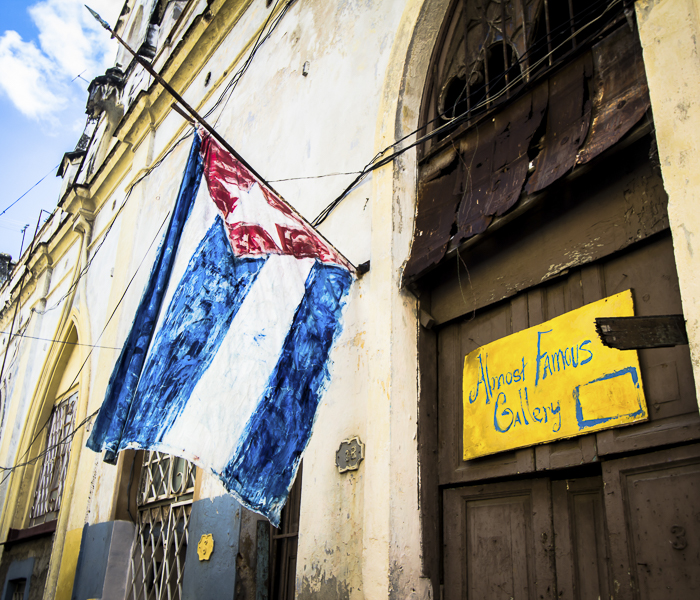
Shop along the streets of Old Havana or take a stroll down the Prado. Local artists and vendors sell sweet treats and little bags of nuts. Stop near the Capital and listen to music fill the cobblestone streets. Watch as the school children in uniform have lunch in the shade. Visit a tobacco farm to see where the best in the world is grown.
Best Food in Havana
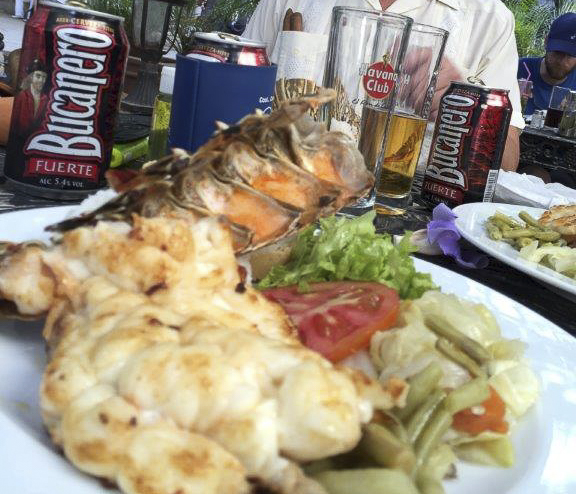
Cuba Travel Adventure knows Havana like the locals do. Restaurants are no exception. Whether visiting a small hidden gem in somebody’s home restaurant, or enjoying a fresh lobster dinner at a private restaurant, we’ll introduce you to the best cuisine in the city and some truly authentic Cuban dishes.
Cuba Travel Adventure Calendar
- CAR RENTALS
- EXPERIENCES
- CONSULAR SERVICES
- CONCIERGE SERVICES
- AFFILIATE NETWORK
- TRAVEL REQUIREMENTS
- TRAVEL UPDATES
- TERMS & CONDITIONS
- PRIVACY POLICY
- 1-800-963-2822
- [email protected]
Frequently Asked Questions
Latest updates on traveling to cuba, do i need to wear a face mask.
Face masks are no longer mandatory in most indoor and outdoor public spaces, with the exception of hospitals and clinics. To protect yourself and others, we strongly advise you frequently wash your hands with soap and dry with a clean paper towel. Avoid touching your face and keep 6ft distance from others. Bring plenty of soap, hand sanitizer and disinfectant wipes with you as these supplies may be limited in Cuba.
Cuba does not currently require vaccination. Visitors are not obligated to provide proof of Covid vaccination at this time
Are visitors from the u.s. allowed to stay at hotels.
The Treasury Department’s Office of Foreign Assets Control (OFAC) announced regulatory changes [on September 23, 2020] to the Cuban Assets Control Regulations (CACR) restricting certain transactions related to lodging at properties identified on the CPA List . Authorized travelers should therefore instead of staying at hotels, stay in private accommodations, or casas particulares , owned and operated by legitimately independent entrepreneurs. If you already have a hotel booking in Cuba, made prior to September 23, 2020, your booking is still valid. If you have any further questions in regards to accommodation in Cuba, please contact us directly on 1-800-963-2822 .
Do you offer Travel Insurance?
Yes, insurance for a trip to Cuba may differ from previous insurance purchases and follows a different process given the destination. This process is regulated by the Office of Foreign Asset Control for any travel to Cuba. To learn more on what information you will need to provide when purchasing a policy please click here . For your convenience, we offer travel protection through Travelex Insurance Services. Please call Travelex Customer Solutions at 800-228-9792, advise that you are traveling with Cuba Travel Services, and reference location number 05-1544 to receive a quote or purchase a policy for your trip to Cuba.
Travelex Insurance Services, Inc CA Agency License #0D10209. Travel Insurance is underwritten by Berkshire Hathaway Specialty Insurance Company, NAIC #22276. VRF
REQUIREMENTS FOR TRAVEL TO CUBA
What documents do i need to travel to cuba.
- OFAC Travel Affidavit
- Visa – passports must be valid for at least six month beyond the date the traveler will exit/entry United States. Cuba only requires that your passport must be valid during the entirely of your trip.
- (See 12 OFAC Categories and Visa for more information on both)
- Each must be filled out correctly and signed by the client accordingly.
- D’Viajeros Form: All passengers arriving in Cuba must confirm they have submitted a sworn declaration about their biographic data and COVID-19 vaccination status. Passengers may complete the confirmation form online within 3 days from departure at: https://www.dviajeros.mitrans.gob.cu/inicio . Upon submission of the electronic form, passengers will receive a QR code to present to Cuban health and immigration authorities upon arrival in Cuba.
In order to travel to Cuba, you must travel under one of the OFAC categories .
The categories include:
- Visiting family
- Humanitarian projects or to provide support to the Cuban people
- Official business of the U.S. government, foreign governments and certain intergovernmental organizations
- Journalistic activities
- Professional research
- Educational activities by persons at academic institutions
- Religious activities
- Public performance, clinics, workshops, athletic or other competitions and exhibitions
- Authorization to provide travel services, carrier services and remittance forwarding services
- Activities of private foundations, research or educational institutes
- Exportation of certain Internet-based services
Some categories might require specific visas to enter Cuba. Take time to go over your travel plans with your agent to identify what type of visa is right for you.
Any other requirements I should be aware of? Tips?
- Keep your day-to-day activity itinerary to avoid any issues with the United States Government upon your return to the United States.
- Keep a copy of your passport as a form of ID and leave your actual passport in a safety box in your hotel. You will only need it in Cuba if you need to exchange money or accept money wire transfers.

Is there a departure tax on my return flight back to the United States?
There is a Cuba departure tax but it is INCLUDED in the ticket price when purchased before you travel to Cuba.
I was born in Cuba. Can I go to Cuba and what kind of visa do I apply for?
Yes, you can go to Cuba. Cuba considers all people born in Cuba to be Cuban citizens, regardless of current nationality. If you were born in Cuba and left before December 31, 1970, you will need either a valid Cuban passport or HE-11 visa prior to entering Cuba. For more information about the HE-11 visa, contact us at [email protected] . If you were born in Cuba and left Cuba after January 1, 1971, you will need to obtain a Cuban passport regardless of holding United States citizenship and passport. You don’t have the option of applying for an HE-11 visa.
If I have a Cuban passport, do I need to apply for a visa?
No, if you have a valid passport you won’t need to obtain a visa prior to entering Cuba.
Can I use my Global Entry benefits with my Cuba flight?
Yes, Global Entry may be used at equipped international terminals regardless of which country you are coming from. Please note this doesn’t apply to airports in Cuba.
Do I have to arrive 4 hours prior to departure for check- in?
It is requested and highly recommended for check-in for international flights. Security and customs can have long lines and you may run into issues. Gates close 1 hour prior to departure.
Can I use my Advantage Program membership when travelling to Cuba?
Yes, if you are booked on a commercial flight, you can enter your Advantage Member number during check-in before departure.
Where can I purchase a visa?
Cuba Visa Services can help you purchase a visa online. You can purchase a visa here .
Can I purchase my visa at the airport on the day of my flight?
We recommend purchasing your visa prior to your travel date in order to ensure you have all required travel documents and to avoid any delays.
You may purchase your visa at our Cuba Travel Services kiosk on the day of your flight depending on departing city.
Check with your airline to see if visas are available for purchase on the day of your flight. Price and availability may vary.
I am an international citizen residing/flying out from the United States. Do I also need to register under one of the OFAC categories and purchase a visa?
Everyone traveling from the United States to Cuba, including international citizens residing in/flying out of the United States must self-qualify under one of the OFAC categories of authorized travel and have a visa.
Additional Visa Tips
As of November 1, 2022, The validity of the tourism visa is extended to 90 days of stay in the national territory -extendable once for the same period- which allows to extend the stay of foreign visitors in Cuba.
How safe is Cuba?
Cuba is generally a very safe place to travel. However, with all travel, it is always best to watch your belongings and beware of pickpockets and purse-snatchers.
We recommend leaving your valuables, including your passport**, in the safe at your hotel and only carry what you need for that day.
Contact your hotel about safety deposit boxes they may provide (there may be a daily fee). It is also recommended to have a TSA-approved lock on your luggage.
In smaller provinces and cities, you may see some people on the streets asking for soap, pens, or other things, though a nuisance, this is not considered to be dangerous. They would greatly appreciate any extras you may have.
** Note: You do not need to carry your passport everywhere with you; a copy of the passport should suffice for ID purposes. You will, however, need your passport to exchange currency.
System of monetary relations.
The foreign currencies that CADECA (Casas de Cambio) accepts in all its offices are:
USD – American Dollar CAD – Canadian Dollar EUR – Euros CHF – Swiss Francs GBP – Pound sterling JPY – Japanese Yen MXN – Mexican peso
- All international airports in Cuba, both in the passenger arrival lounges and in the departure lounges, prior to immigration control. departure lounges, prior to immigration control.
- All ports where international cruise ships operate.
- In 60 of the main hotels in all tourist areas.
- In the areas with the greatest influx or access of tourists.
In Cuba, the official currency is the Cuban Peso (CUP). While US Dollars can be used for tipping and payments at certain private venues, they can be conveniently exchanged at Banks and Exchange Houses. U.S. Bank-issued credit and debit cards are not currently accepted in Cuba, except at certain hotels, where they can be used for leaving a deposit at Front Desk through a secure payment link. It is advisable to take a sufficient amount of cash.
Prepaid Cards in MLC.
It is encouraged to eliminate the circulation of cash and that the transactions of funds, including the payment of products and services are carried out using bank cards.
Cuba has worked in the last two years to increase electronic commerce and the infrastructure that guarantees it.
At the request of MINTUR, the Central Bank of Cuba has designed a new service, which has been in operation for months, the sale of Prepaid Cards.
Prepaid cards are issued by Banco de Crédito y Comercio (BANDEC) for values of: 50, 100, 200, 500 and 1000 US dollars, which are marketed by CADECA, in any currency, of which its commercial network is currently listed.
This Card is not personalized, so it can be operated by those who have their PIN.
At the request of the client, the balance of the Card is reimbursed by CADECA to the tourist in freely convertible currency, when he leaves the country, at international airports, in one of the foreign currencies of which they are quoted.
Who do I contact in case of an emergency?
If you have an emergency and need assistance, and you are a United States citizen or resident, you may contact the United States Embassy.
Otherwise, please contact your corresponding embassy or consulate.
If you need to call the police, dial 106 from a local telephone for any emergency. You can also dial 104 for an ambulance and 105 for the fire department.
Note: You may not reach an English-speaking person.
U.S. Embassy contact information: Calzada between L & M Streets, Vedado, Havana Main switchboard (+53) (7) 839-4100 Hours: 8:00 a.m. to 4:30 p.m. (closed on U.S. and Cuban Holidays)
Emergencies/After Hours:
- Call main switchboard at (+53) (7) 831-4100
- Dial 1 to speak with emergency operator
If you get into trouble in Cuba (financial, medical etc.) or are in dire need, then we suggest you contact Asistur (Assistance to Tourists).
We suggest printing out a list of all emergency numbers, hotel numbers, addresses, and Embassy contact information in case of emergency. Cuba does not have WiFi throughout the whole country and cannot be relied on in case of an emergency.
CUBAN GOODS
Can i bring stuff back from cuba to the united states.
Please note that effective September 24, 2020, authorized travelers may no longer return to the United States with alcohol and/or tobacco products acquired in Cuba as accompanied baggage for personal use. For a complete description of what this general license authorizes and the restrictions that apply, see 31 CFR § 515.585(c) and (d).
What are the typical things to purchase as gifts to bring back?
The purchase or other acquisition in Cuba and importation as accompanied baggage into the United States of merchandise is authorized, provided that the merchandise is imported for personal use only. This paragraph does not apply to the importation into the United States of Cuban-origin alcohol or tobacco products. The importation of Cuban-origin information and informational materials is exempt from the prohibitions of this part, as described in the Cuban regulations at § 515.206. The importation of certain other specified goods and services is authorized in §§ 515.544, 515.547, 515.569, 515.578, 515.582, and 515.585.
Can I bring back cigars and rum? Is there a limit as to how much I can bring back?
Restaurant recommendations/dish recommendations.
We’ve put together a great list of restaurants in all the major cities we travel to. Check out our Discover More page, select the city, and find some good eats.
Is it safe to eat food from street vendors?
It is not recommended to order from street vendors due to hygienic reasons. However, tour guides can recommend on site accordingly.
Common foods found in Cuba
The most iconic Cuban dish is rice, black beans, and chicken. However, Cuba is known for its colorful foods and amazing flavors. Try roasted pork, chicharrones, picadillo habanero, tostones, and more in Cuba.
Is the water safe to drink in Cuba?
It is best to drink bottled water. Regular and sparkling water is available.
Water is purified at hotels that are included or recommended by Cuba Travel Services. It is safe to brush your teeth with tap water from these hotels.
Water is also purified at restaurants included in tours or recommended by Cuba Travel Services. It is safe to drink water with ice and eat salads and fruits from the restaurants we take you to on tours.
I am vegan/vegetarian/have allergies/have special dietary needs. What is the best way to assure I will not ingest something I shouldn’t?
Please inform Cuba Travel Services in advance of any dietary restrictions so all parties involved are informed. Always remind tour guide to advise every restaurant on this issue.
OFAC CATEGORIES OF TRAVEL
§ 515.560 travel-related transactions to, from, and within cuba by persons subject to u.s. jurisdiction..
(a) The travel-related transactions listed in paragraph (c) of this section may be authorized either by a general license or on a case-by-case basis by a specific license for travel related to the following activities (see the referenced sections for the applicable general and specific licensing criteria):
(1) Family visits (see § 515.561 );
(2) Official business of the U.S. government, foreign governments, and certain intergovernmental organizations (see § 515.562 );
(3) Journalistic activity (see § 515.563 );
(4) Professional research and professional meetings (see § 515.564 );
(5) Educational activities (see § 515.565 );
(6) Religious activities (see § 515.566 );
(7) Public performances, clinics, workshops, athletic and other competitions, and exhibitions (see § 515.567 );
(8) Support for the Cuban people (see § 515.574 );
(9) Humanitarian projects (see § 515.575 );
(10) Activities of private foundations or research or educational institutes (see § 515.576 );
(11) Exportation, importation, or transmission of information or informational materials (see § 515.545 ); and
(12) Certain export transactions that may be considered for authorization under existing Department of Commerce regulations and guidelines with respect to Cuba or engaged in by U.S.-owned or -controlled foreign firms (see §§ 515.533 and 515.559 ).
How do I know which category to apply under?
The general licenses are self-qualifying. Familiarize yourself with the categories from the Office of Foreign Assets Control (OFAC) and determine which category best fits with your purpose of travel.
All visas are authorized by OFAC. If you are unsure of which category you should be traveling under please contact OFAC at 1-202-622-2480 or visit their website .
Please note: A visa is a completely different document from the Affidavit for Travel. This form is provided by your airline.
When is the best time to visit?
To get the best of the tropical weather that Cuba offers, visit between November and April. It is generally warm, humid and sunny but mild compared to the summer months.
Peak tourist season runs mid-December to mid-March, and all of July and August. Hotels tend to book quickly and require advance booking during peak season so we advise to book well in advance.
Be aware that there is a risk of hurricanes from June to November with September and October being the most threatening months. Some resorts may only be partially open or shutdown due to hurricane risk.
WHAT TO PACK
What should i bring.
We recommend bringing the following items:
- Medications
- Over-the-counter drugs
- Cash and small denominations bills
- Small gifts for kids and locals
- Art supplies
- Hand sanitizer
- Wash cloths (not provided at most hotels)
- Toilet paper (good to have your own at public restrooms)
Cuba generally ranges from warm to hot weather. We recommend lightweight clothing. It is advisable that visitors bring cotton and similar type fabric clothing.
We also suggest bringing lightweight and comfortable walking shoes. Many Cuban streets are made of cobblestone.
During the winter and rainy months, sweaters and jackets are suggested.
More formal clothing is required for theaters, concert halls, nightclubs, and formal venues.
The style in Cuba for both men and women is to dress in colorful clothing, often displaying a confident and bold appearance.
Can I bring donations?
It is recommended to use the word gifts instead of donations as donations require other customs procedures when entering Cuba.
Donations in small amounts are acceptable while visiting Cuba.
Bring limited quantities of small items because too many of one item may cause delays upon entry. If you plan to bring donations, please inform your tour guide and they can direct you to the correct place to make the donation.
WEATHER IN CUBA
Cuba offers a hot and sunny tropical climate with two distinct seasons. The dry season runs from November to April. The wet season begins in May and runs until November. Keep in mind that it may however rain at any time, so it is wise to always have rain gear when traveling to Cuba. The temperatures in Cuba can range from the 60’s during the wet season (though not very common) to the 90’s during the dry season. It is common to have AC in restaurants, hotels, and other indoor facilities. Keep in mind that not all places have AC in Cuba. Bring insect repellent as the tropical weather also means a lot of mosquitos at dusk and at dawn. Be aware that there is a risk of hurricanes from June to November with September and October being the most threatening months. You can check out the current weather forecast for Havana, Cuba .
AIRPORT CUSTOMS IN CUBA
Do i need to declare how much money i am bringing into cuba.
Travelers must declare how much cash they are carrying if it exceeds $5,000 USD per person.
It is recommended to use the word gifts instead of donations as donations require other customs procedures when entering Cuba.
Bring limited quantities of small items because too many of one item may cause delays upon entry.
If you plan to bring donations, please inform your tour guide and they can direct you to the correct place to make the donation.
Can I bring my dog or cat with me on our trip?
According to Cuban customs regulations, dogs and cats are allowed to enter the country. Each pet must be accompanied by a health and vaccination certificate issued by a veterinarian stating that the animal is healthy and up to date on their vaccinations. It is mandatory their rabies vaccination is up to date. Upon entering the country, health certificates, vaccination records, and the pet will be inspected by the official in charge of sanitary and phytosanitary regulations.
ELECTRONICS AND INTERNET
Is there internet access in cuba.
WiFi is not available all throughout Cuba. Many hotels include Wifi access in the room price, while others will charge extra . There are some WiFi hot spots throughout the larger cities where Internet cards can be purchased for access.
Will my cell phone, smart phone, or PDA device work in Cuba?
Certain major US carriers offer roaming coverage in Cuba, such as AT&T, Sprint, Verizon and T-Mobile. Always check with your carrier before traveling and assume your connectivity will be sporadic while in Cuba.
What is the electric capability in Cuba?
Electrical outlets: The electric standard is the 110V outlet, which is the same as the United States. It is common to find both 110V outlet and 220V outlet in the more modern hotels. It is advisable to bring a converter (105-240V) if your electronics are not travel-ready. Outages: Though many hotels are well equipped, it is possible to experience temporary power outages in Cuba.
EXPLORING / GETTING AROUND
Do i need a cuba tour guide.
Not necessarily, but it is highly recommended as tour guides are very resourceful.
A tour guide is bilingual and can help translate with restaurants, street vendors, and local craft markets. They are local and can provide cultural insights on the island. They can also assist with any changes to the program or last-minute issues while in Cuba.
Our company can provide you with outstanding Tour Manager service if requested prior to your trip.
Time from Airport to hotel?
Depends on the location of your hotel. Typically, a car ride from Havana Airport to Old Havana is approximately 40 minutes.
Pre-planning your transfer can remove most of the hassle. Here you can pre-book your transfer from the airport or between cities.
What is the $35 visa processing fee for?
The $35 processing fee covers the administration and processing of ordering and receiving visas directly from the CUBAN Embassy in Washington D.C. If you have any additional questions feel free to contact us .
Administrative Fees / Booking Fees:
Administrative Fees and Booking Fees if applicable will be clearly marked on your invoice or itemized at the time of your final booking payment. Administrative and booking fees are applied to help cover the administrational costs devoted to the operation and as such they are non-refundable regardless of cancellation of services.
HOW DO I GET THERE?
How do i get there.
Contact one of our customer service representatives at 1-800-963-CUBA (2822) to book your flight.
Flight reservations booked with commercial air carriers can be paid with any major credit card. Confirmation for your flight reservation will be sent via email.
You will need a visa* to enter Cuba. Once you have your flight reservation booked for Cuba, you can purchase your visa on online here .
If you are traveling to the Havana Airport, we offer here from the airport to hotels and casas particulares in Havana city from $56.00.
*Note: Visas purchased on our site can only be issued for direct departures out of the United States to Cuba.
SERVICES OFFERED
Do you offer tours or travel packages to cuba.
Visit Cuba Tour Planner for current excellent and attractive packages available on a Support for Cuban people program or contact one of our Customer Service Representatives for a more customized program.
Do you arrange group travel?
Yes please contact 1-800-963-2822 for more information. We work on multiple types of group programs on the various licenses and have a dedicated group department to service your requests.
ADDITIONAL TIPS FOR TRAVEL
- Write down all relevant information about where you’re staying. Googling the address to your hotel so you can tell your driver where to take you, is not a thing in Cuba
- All visitors must hold a valid passport in their name with a corresponding travel visa or travel card. Travel visas must be issued by the Cuban Embassy in the U.S. not from an outside country.
- The following are exempt from taxes: objects for personal use, personal jewelry, photographic or video cameras, sports items, fishing tackle, 2 bottles of spirits, one carton of cigarettes, and up to 10 kilos of medications.
- Items that are prohibited in Cuba are narcotics and firearms, except for duly authorized hunting weapons.
- In order to export works of art or antiques, the corresponding authorization should be sought from the National Register of Cultural Items of the Heritage Department in the Ministry of Culture.
- It is advisable that visitors bring cotton and similar type fabric clothing. It is recommended that fine woolen and gabardine clothing be brought for use during the winter months and for air-conditioned environments. During the rainy season, a light water proof jacket is recommended. More formal clothing is required for theaters, concert halls, night clubs and formal venues.
- Photos and video footage maybe freely taken, except in restricted and designated areas that are of a military nature. Museums have their own specific regulations.
- Wi-Fi is not available in most places; however, larger hotel chains and restaurants may have it for a small fee or complementary.
- Bring cash and exchange currency prior to arriving to Cuba
TAXI AND SHUTTLE
How to get from the airport to my hotel.
- If you are traveling to the Havana Airport we offer here from the airport to hotels and casas particulares (private homes) in Havana city from $56.00
- For all other airports you may book a taxi/transfer here or call us at 1-800-963-CUBA (2822)
Can I prepay my taxi/transfer?
- Yes! You can prepay in US dollars for rides from the airport and for rides to get around Cuba. Click here for more details.
- We also offer transfers from city to another. Click here for more details.
Can I take a taxi/transfer from one city to another?
Yes! We offer transfers for all cities in Cuba. Click here or call us at 1-800-963-CUBA (2822)
Reset Password
- Open toolbar Accessibility Tools Accessibility Tools Increase Text Increase Text
We’re sorry, this site is currently experiencing technical difficulties. Please try again in a few moments. Exception: request blocked

VISAS - Looking for an easy and secure way to get a visa to travel to Cuba legally?
get your visa today!

FLIGHTS - Book your Flight today with us and save up to 50%!
Book now and save

EXPERIENCES - Customize your own experience to travel to Cuba with us!

- Visa Tourist Card
- Cuban Passport
- American Passport
- Migratory Process
- | Excursions
- Make your own Program
- Private Houses
- Car Rentals
- | Travel Partners
- Testimonials

The Ultimate Cuban Experience
With oncuba travel.
We look forward to welcoming you to Cuba,
during this extraordinary time in history
Signature Excursions

Specialty Group Programs

What Our Customers Say

The team at OnCuba Travel planned the perfect custom program for us! Carlos and Yaima at the Miami office were sweethearts and super easy to work with. They helped me get my visa, flights to/from Miami, and all transfers organized. They also helped us prepare a packed itinerary with excursions, shows, and the best restaurants to maximize our time and budget. The agency went… Read more “Sarah Cherres”

OMG – On-Cuba should also be labeled as the Match-Maker Travel Company on one of those dating sites because they made me fall in love with Cuba. My plan was to visit Cuba as a tourist and I came away as wanting to be a Travel Partner with On-Cuba. From soup to nuts they were professional the whole way. It began with working with… Read more “Kevin Cottrell”

We had a great time on our tour in two vintage convertibles. Our guides, Nelson and Sia were great.

Thank you Yaima! We booked a very expensive cruise to Cuba. The tourist visa was supposed to be done by the cruise line. At the last minute, they advised me I needed a special visa because I was born in Cuba. For some info; I am not Cuban. I was born on the U.S. Base there to two American Citizens and I too, am… Read more “Thank you Yaima!We booked a”

Great travel agency! Quick and easy VISA processing. Agents are very accommodating. It was my first time traveling to Cuba and the Agents tailored a perfect guided tour for my family and I to get the authentic Cuban Experience!

My favorite aspect of OnCuba Travel is the authenticity of their employees. Everyone there is warm, friendly and helpful, giving tips to make your trip really special. They explained and prepared me for the visa application process, making it very easy and fast. While there, I was presented with the best prices for my Cuba excursion.

Excellent tours for cigar aficionados! I like this office for its excellent customer service and great atmosphere. Here you can buy your visa to visit Cuba, but also book hotels or private houses, flights and guided tours. I recommend the Cigar Tour 100%

Great customer service! This is a great company with excellent customer service, very helpful, professional, efficient, and personalized. I will definitely work with them again! They support you throughout every step.

Great service, I got my Visa to Cuba the same day. Also bought a package that included some guided tours to museums and events.

Great travel company!

Last November 2017, I went to Cuba with my parents which isn’t easy being that my mother is Cuban born. Just getting her on the plane required a H11 visa, a tiny piece of paper that requires a Cuban background check to allow Cuban born people to enter the country. Yaima Paez held my hand through the entire process of gathering paperwork, assembling and… Read more “Last November 2017, I went”

Very good traveling options. Well oriented to the audience. I recommend it.

Our guide was Kadel and he was awesome! He was genuine, helpful, friendly, and SO knowledgeable. We spent 7 and half hours with him and it just flew by. We did a cruise to Havana but none of the excursions had what we wanted exactly and several breaks for lunch, a mojito, etc which seemed like a waste. So we booked a private tour… Read more “Our guide was Kadel and he was awesome!”

Our trip to Cuba was a life-changing experience. The days were packed with exactly what the Supporting the Cuban People program promised. Yaima was very helpful and wonderful in organizing our excursions. She was diligent and made sure all our concerns were addressed and that our trip was in line with our visa requirements. The excursions were very well planned and a great way… Read more “Our trip to Cuba was”
Thanks for Traveling With Us! Let us know how we did. We are always looking to ensure the very best customer experience, one traveler at a time.
Please leave us a review of your experience with OnCuba Travel, so other travelers can benefit from what you have to say. It only takes a couple of minutes of your time! Share Your Story
New! OnCuba Travel Blog
Sorry, this entry is only available in Español.

Still have your heart set on visiting Cuba?
Don’t let the confusion coming out of, washington stand in your way.
Travel to Cuba is still legal with OnCuba Travel!
Don’t worry, our experts at OnCuba Travel can help to book your dream
experience to Cuba.

Here’s what you need to know:
- Travel by US citizens remains largely allowed and legal
- Yes, Americans can still travel to Cuba! People-to-people travel is the only way for Americans to visit Cuba and gives you an opportunity to discover Cuba through its people and from a local perspective. And, you can do it legally through OnCuba Travel.
- Policy changes on travel can create confusion and make it appear that planning a trip to the island is more difficult. But if you ask for the right help, the experience can be quite the opposite.
Subscribe to our list and get the best offers.
Login as affiliate
Travel to cuba.
Build a tailor-made travel to Cuba or book one of our vacation packages that include accommodation, excursions and transfers. Enjoy the beach in an all-inclusive hotel in Varadero or Cayo Santa María; discover the history, culture and traditions of Havana walking its streets and take excellent photos in natural landscapes such as Viñales and Las Terrazas.
It is time to start thinking about the travel plan for your next vacation. If you have never visited Cuba, include in your itinerary to explore the bustling streets of Old Havana, enjoy the beach at all-inclusive hotel in Varadero, Cayo Santa María or any of the many wonderful beaches around the island. Remember that availability runs out. If you book now you guarantee your stay and a better price with our early booking offers.

Hotels in Havana

Hotels in Varadero

Hotels in Cayo Santa María
Special Offer

Mother's Day Special Offer
Mom deserves the best! 💐 For her, we've prepared this offer for 3 nights in Varadero, at All-Inclusive hotels specially designed for families.
Prices for 3 nights, between May 6th and May 13th.
Day-trip and overnight excursions
Explore unknown locations, and return to previously visited places that evoke fond memories. Feel the rhythm of cosmopolitan Havana, explore the vivid green valley and tobacco plantations of Vinales, seek out the historical and colonial Trinidad.

Excursion to Viñales
from Havana
One of the most beautiful landscapes in Cuba, declared Cultural Landscape Protected by UNESCO and a National Natural Monument.
from USD 76

Panoramic City Tour in classic cars
Panoramic tour by classic car around Modern Havana, that offers the opportunity of getting familiar with the city´s main architectural styles followed by a visit to the emblematic Revolution Square.
from USD 142

Exclusive City Tour around Colonial Havana
desde La Habana
Walking tour around the old part of the city, the opportunity of visiting representative places.
from USD 26
Complete your trip
Everything is planned: accommodation, meals, excursions... But what about transfers? Whether you are going to make a short trip or a long trip, transfers must be guaranteed to avoid possible setbacks.

Cuba Transfers
Private and shared transfers to and from the main airports. Transfer from Havana to Varadero, Cayo Santa María and between other popular destinations.

Include a car rental in your travel budget. Variety of categories and models so that you can freely choose the car you want.
With little time for a getaway to Cuba?
With little time for vacation, you should make the most of it. We have designed some travel packages for discovering the best of Havana, or take a quick escape to Varadero, Cayo Santa María or Cayo Largo to enjoy a Mojito by the seashore.

5 nights getaway in Havana and Varadero
- Airport-Hotel Transfer
- Two-nights accommodation at hotel in Havana
- City Tour in Havana with tour guide and transportation included
- Transfer from Havana to Varadero
- Three-nights accommodation at all-inclusive hotel in Varadero
- Hotel to Airport Transfer
from USD 203

Cayo Largo in 3 or 7 nights
- Roundtrip Havana - Cayo Largo del Sur
- Accommodation in all-inclusive hotel
Can't find what you're looking for?
You can build your own itinerary with our online travel organizer.

Affiliate and Travel Agencies Program
Guarantee a unique travel experience for your clients, effortlessly booking all the services through our platforms and receiving a commission on each sale.

Organization of Workshops in Cuba
We have extensive experience in the organization of international workshops, both in Havana and in the rest of the country. We guarantee accommodation, transfers, food and other services for the participants.

Information about Cuba
Weather, culture, geography, traditions. Getting information about your destination is essential in travel planning.
- If you're going to travel to Cuba soon do not forget to complete your ADVANCE TRAVEL INFORMATION form. It is mandatory and reduces your stay at the airport. Find it here D'VIAJEROS .
- You can buy a SIM card for Internet and call the whole world. Exclusive service for tourists. Valid for 30 days from its activation. You can buy it before traveling and pick it up at the airport upon arrival in Cuba. More information in recargasacuba.com .


Cuba Private Travel
Cuba Private Travel has more than fifteen years experience and a well-deserved reputation for being “the travel expert’s expert”.
In addition to hosting the world’s top travel writers and VIP agencies, Cuba Private Travel are specialists in providing bespoke private itineraries for travelers keen to explore the beating heart of Cuba, the island that we love more than words can say.
“The highlight of the trip was meeting people and forming personal relationships, we felt a deep cultural immersion and the opportunity to learn first-hand about the history and the current situation, it was beyond eye-opening.”
JOHNNY CONSIDINE, MANAGING DIRECTOR

Cuba Private Travel's purpose is to match guests' interests to the very best that the island has to offer, whether that means catching a glimpse of the future by meeting Cuba’s new and vibrantly modern creative talents, or seeking out seclusion in the country's stunning and pristine landscapes while taking a deep dive into a land of remarkable history and cultures. Every step of the way is supported by our outstanding concierge services and the country’s top specialists from the worlds of art and culture, architecture, music, sport, history, and ecology. Cuba Private Travel’s expertise informs, guides and entertains, creating journeys that inspire...

Any Cuban journey starts in Havana, the capital of the country and a stunning World Heritage site where cobbled streets lead to polished Baroque churches, castles and palaces. Along Havana’s seafront, the Malecon, salsa wafts from the rebooted sound systems of cruising vintage Cadillacs and Buicks.
Cuba Private Travel can arrange for you to meet the stars of the Cuban Ballet Company or network with artists during the city’s famous Art Biennial. There is always plenty to do in Havana, from sporting events to spontaneous street entertainment and Cuba’s exuberant nightlife.
Where to go in Cuba
Cuba is a country of full of contrasts; grand and modest; vibrant and peaceful; wild and elegant; multi-faceted and always thought-provoking. Wherever you travel you will find a wealth of history as well stunning landscapes richly blessed by spectacular flora and fauna. All roads are easy to navigate and you will quickly discover that they are used as much by horse and cart as by the internal combustion engine.

What to do in Cuba
Whether you want to be active, cycling, hiking, snorkelling, rock climbing and wild swimming in the pools of cascading rivers, or prefer to gently explore Cuba’s culture and history, Cuba Private Travel knows how to delve deeper into this fascinating country. Cubans are keen sports fans, favouring boxing, basketball, baseball and volleyball. Surfing, sailing and deep-sea fishing can all be arranged. Our role at Cuba Private Travel is to take you to the places that will inspire you the most.
“Our trip was a family holiday, taking in, among other stops, Havana, Camaguey, Santiago de Cuba, Trinidad, and Viñales. It was everything we wanted from a family holiday; culture, history, activities, and relaxation. To be honest the best holiday we have ever had! Highlights: waterfall climbing and cave swimming with Alian, late night at the Santiago de Cuba carnival with Yenia, mountain hiking and cigar rolling with Duniel in Viñales and a tour of Havana in open-topped classic cars with Albert.”

Cuba is a world leader in sustainability and environmental protection, having preserved the island’s wild spaces consistently since Castro announced the country’s first reforestation programme way back in 1959. As a result, Wild Cuba is bountiful and Cuba Private Travel will help you to explore the diversity of the Country’s fourteen national parks and 1,000 square miles of protected marine environment.

Conservation in Cuba
Detached from excessive development for much of the twentieth century the island of Cuba is now attracting the attention of conservationists from around the world. One of seven countries to form part of The World Wildlife Fund's Coral Reef Rescue Initiative, Cuba's Jardines le la Reina area is a vitally important marine protection area that covers 684,000 hectares and provides safe refuge for critically endangered sharks, groupers and sea turtles. By using cutting edge technologies such as video, radar and the seeding of new coral nurseries, Cuba is creating protective models that are inspiring other Caribbean marine environments as well. Meanwhile conservationists are researching what it is that has made this area so resilient to climate change thus far.
Cuba is a signatory to the UN’s program to promote sustainable food production and land management. In the World Heritage site of Vinales Valley inhabitants use traditional agricultural techniques and since 1984 the Sierra del Rosario Biosphere Research project has been an eco-community where progressive land use encourages reforestation and sustainable rural development. Cuba’s extensive forestry work protects woodlands, purifies water supplies and stops land erosion whilst also preserving environments for Cuba’s outstanding flora and fauna. Close to Havana, residents in Pogolotti Forest took matters into their own hands by planting trees and bamboo to create a beautiful parkland with cleaner waterways, stable soil and an on-going educational program that is inspiring new generations of conservationists.
Accommodation
Cuba offers a diverse range of accommodation from humble farmstead cabins to five star coastal luxury. Havana’s hotels are now a draw in their own right: from faded art deco grand dames and colonial boltholes to contemporary international chains pushing the boat out with cityscape innovation. For a more intimate experience, Casa Particulares are a chance to stay with local families and sample authentic Cuban life. Cuba Private Travel has exclusive access to the newly created private villa rental market, making it possible for guests to enjoy a private home-from-home in 1950s surroundings or water-front penthouses with views along Havana’s Malecon. Further afield, we seek out relaxing secret hideaways in Cuba’s most stunning locations.
Cuba offers a diverse range of accommodation ranging from humble farmstead cabins to five star coastal luxury. Havana’s hotels are finally becoming a draw in their own right: from faded art deco grand dames and colonial boltholes to contemporary international chains who are pushing the boat out with cityscape innovation. For a more intimate experience, Casa Particulares offer a chance to stay with local families and sample an authentic glimpse into day to day Cuban life. Cuba Private Travel has exclusive access to the newly created private villa rental market, making it possible for guests to enjoy a private home-from-home in 1950s surroundings or private water-front penthouses with views along Havana’s Malecon. Further afield, we seek out relaxing secret hideaways in some of Cuba’s most stunning locations so wherever you travel, your accommodation is always uniquely Cuban. Farmsteads and beachfront homes allow you to live close to nature, while fancy old colonial buildings give a taste of historic highlife in the centre of Cuba’s pretty small city enclaves. Wherever you travel, Cuba Private Travel always provides the very best accommodation.

The world’s leading travel writers have always helped to keep Cuba Private Travel on its toes, seeking out news stories and introducing Cuba to the world. However the global Covid pandemic limited everyones' travel plans and, when guests started to return to Cuba in 2021, the world’s top travel writers were quick to update their travel tips.

Personal reviews from our customers are a fantastic way of discovering the magical details that make trips to Cuba so memorable. From family experiences (yes, children love Cuba too) to first-hand feedback about accommodation and guides, we all benefit from listening to our guests.
“Thank you so much for organizing such an incredible trip. Everything was absolutely wonderful - your choice of accommodation, trips, restaurants, and guide. We have all completely fallen in love with Cuba.”
“we have all completely fallen in love with cuba. the warmth of the people is staggering. the architecture is unbelievable. the scenery and wildlife are so varied and interesting.”.
ROBERT & SARAH
“We’re back home and still filled with lingering thoughts and wonderful memories of the trip to Cuba. Thank you so much for the privilege of experiencing Cuba with the help of your eye and the amazing guides and caring staff.”
“we really had a fantastic time and loved everything we did. cuba really exceeded our expectations and there is no doubt this was due to the beautiful places we stayed in, the great food we had, but mostly how well we were looked after, the places we saw and all the things we learned.”.
BOBBIE, RUTH AND LIZ
Western Skyline Ride
A week long cycling holiday through western Cuban countryside visiting Las Terrazas and the tobacco fields of Viñales via the spectacular Skyline Trail.
Private group dates available from £1474 pp.
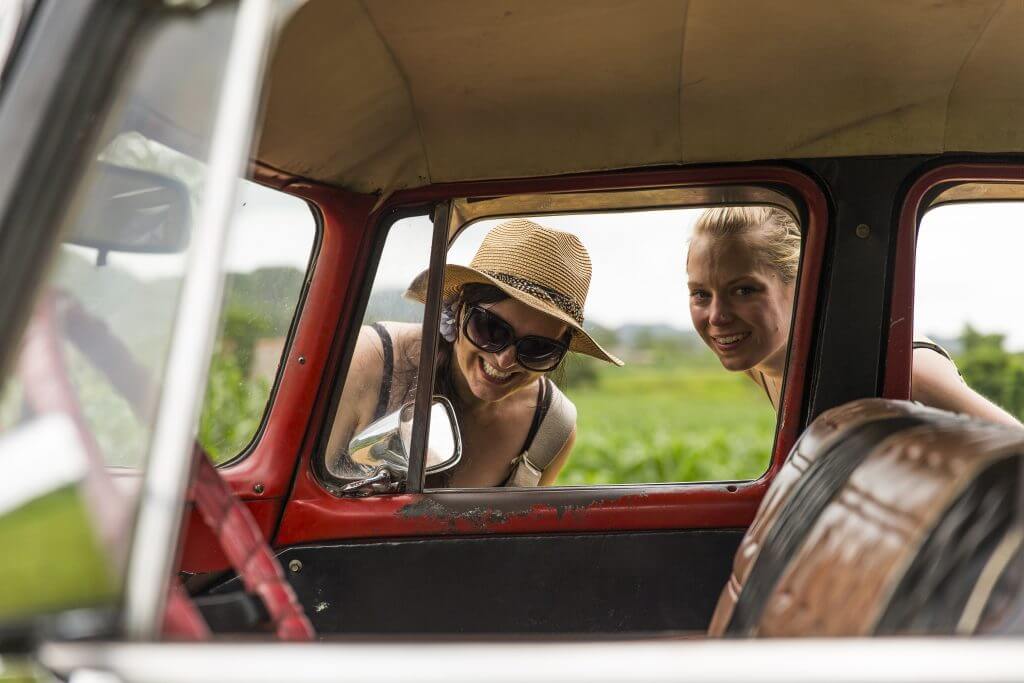
Cuba Completa
A two-week cultural holiday visiting five of the nine UNESCO World Heritage Sites and discovering Cuba’s revolutionary history and vibrant culture
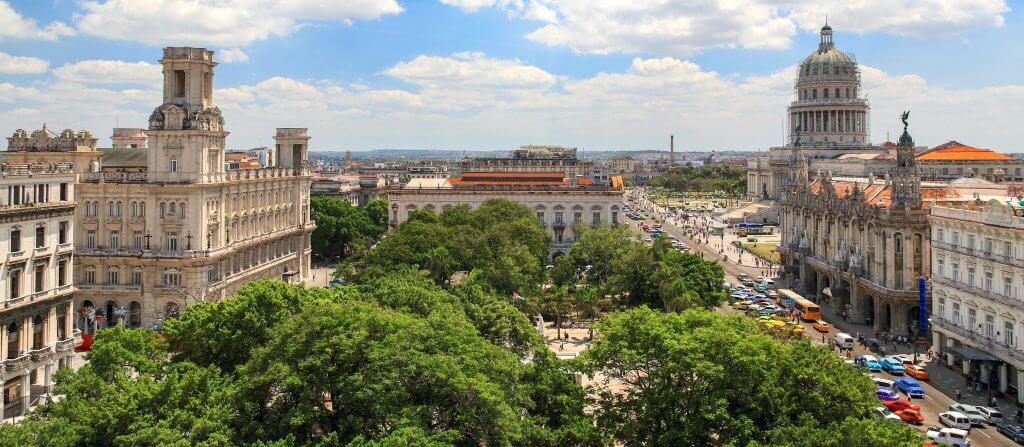
Cuba’s changing – come and meet Cuba’s new entrepreneurs and dive into their creative buzz.
Private departure dates available.
Are you high-octane or more leisurely? Come cycling, kayaking or trekking with us. Or slow down and savour Cuba’s tropical flavours on one of our cultural trips. Share the adventure on our small group departures or create your own travel bubble with a private departure or tailor-made tour.
Cycling in Cuba
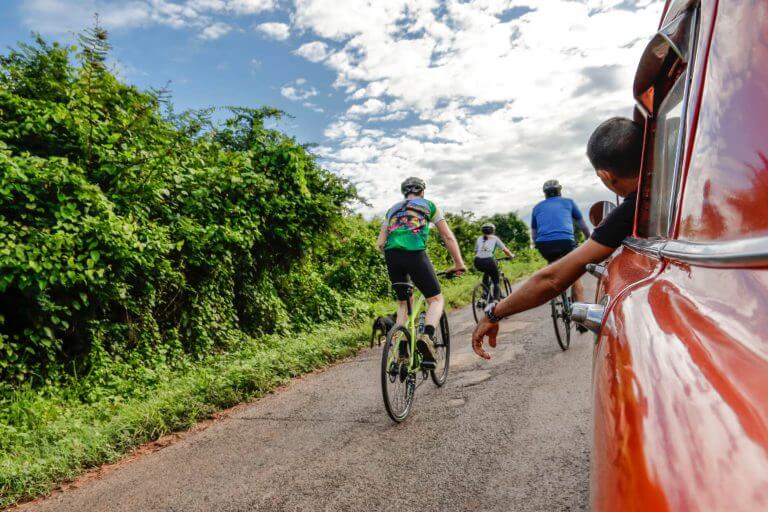
Active tours
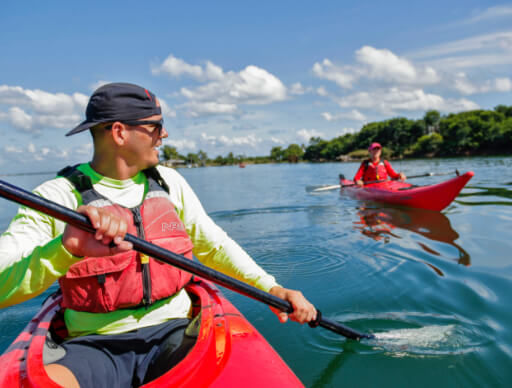
Cultural Cuba
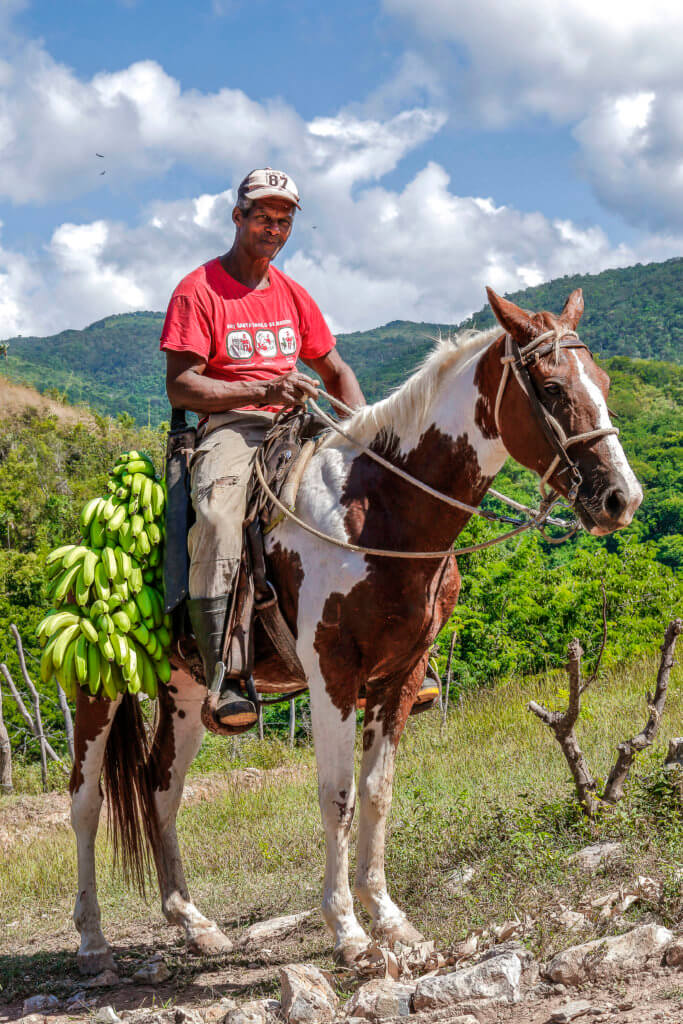
Cuba Travel Experts
ABTA protected, we have 20+ years organising tours in Cuba. Experts in OFAC compliant tours for US travellers Travel to Cuba with peace of mind when you book one of our OFAC compliant tours
Sustainable Experiences
We champion responsible travel which protects Cuba’s rich biodiversity and sustains local community
24 Hours Support
English/Spanish speaking team available 24hrs during your holiday
Excellent Customer Service
Rating 5* on Google, we are here to help you prepare an epic holiday
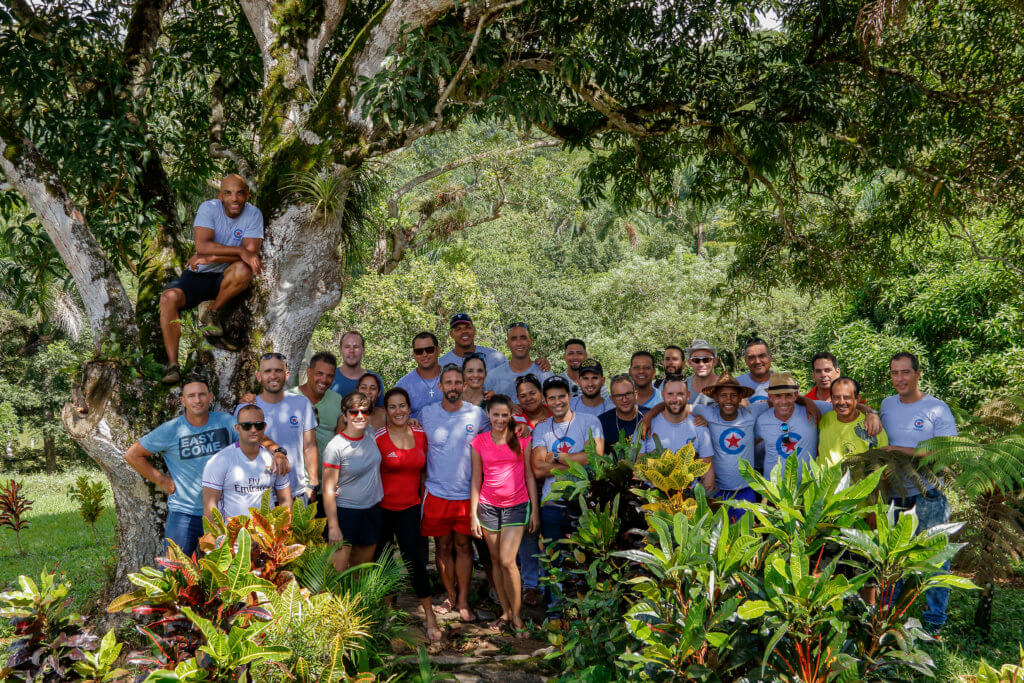
In safe hands
We are Cubania Travel and we love what we do. We are the cycling and active travel experts in Cuba. We have an international standard bike workshop and an incredible team of trained cycling guides.
For the last 20 years, we have been providing exceptional and meaningful holidays, enriching the lives of active travellers and our community, and exposing them to a unique way of living by sharing the real Cuban experience.
We aim for excellence in everything we do – from the quality of our tours to the service we give and the experiences we offer. This is our purpose. It’s why we exist.
Why choose us
100% satisfield clients.
With a 5* rating on Google, Cubania has a track record of happy clients who have enjoyed sustainable experiences in Cuba. Reviews and testimonials from satisfied travellers reflect the company’s commitment to delivering exceptional journeys. Check out our Google reviews for yourself!
Safety and support
We look after your safety by providing expert guides, thorough risk assessments, and comprehensive orientation sessions. We offer 24/7 emergency support during your time in Cuba, maintain strong local partnerships, and provide travellers with well-maintained sports equipment. With Cubania, you’ll explore Cuba confidently, knowing you’re supported every step of the way.
Local expertise
More than 20 years of local expertise has made Cubania Travel the best agency for adventure and cultural tours in Cuba. Our deep-rooted local connections and insider knowledge guarantee authentic experiences, off-the-beaten-path discoveries, and seamless cultural immersion, making us the top choice for sustainable Cuban adventures.
Unique itineraries
We offer unique Cuba tours thanks to our profound local knowledge. We delve beyond tourist hotspots, unveiling hidden gems and show you Cuba’s unique culture by doing things the Cuban Way. With our deep-rooted connections and knowledge, we craft truly immersive adventures, ensuring each journey is a unique and unforgettable exploration of culture and nature.
Responsible travel
We champion responsible travel which protects Cuba’s rich biodiversity and sustains local communities by offering tours that are low in carbon footprint. In our tours, you’ll embrace human-powered travel (trekking, cycling, kayaking) and use only locally-owned accommodations and eateries. Our goal is to minimise environmental impact while maximising community support. Visiting protected natural areas underscores our commitment to preserving Cuba’s pristine landscapes, ensuring our journeys benefit local communities, travellers and the environment.
Small and Private groups
When you book with us, you can choose to join a small group of like-minded travellers, create your own private travel bubble or have a fully tailor-made trip. Whatever you choose, you’ll travel sustainably and experience Cuba, the Cuban way!
OFAC compliant tours for US travellers
Want to travel to Cuba from the US but overwhelmed by all the red tape? We hear you. The US Embargo on Cuba can make a trip to Cuba tricky for US travelers. But, with our support and a little planning, you can enjoy that epic Cuban adventure stress-free! We’ll help you understand the travel regulations set out by the US Treasury’s Office of Foreign Asset Control (OFAC) to ensure your trip is legal. View our ready-made OFAC compliant tours .
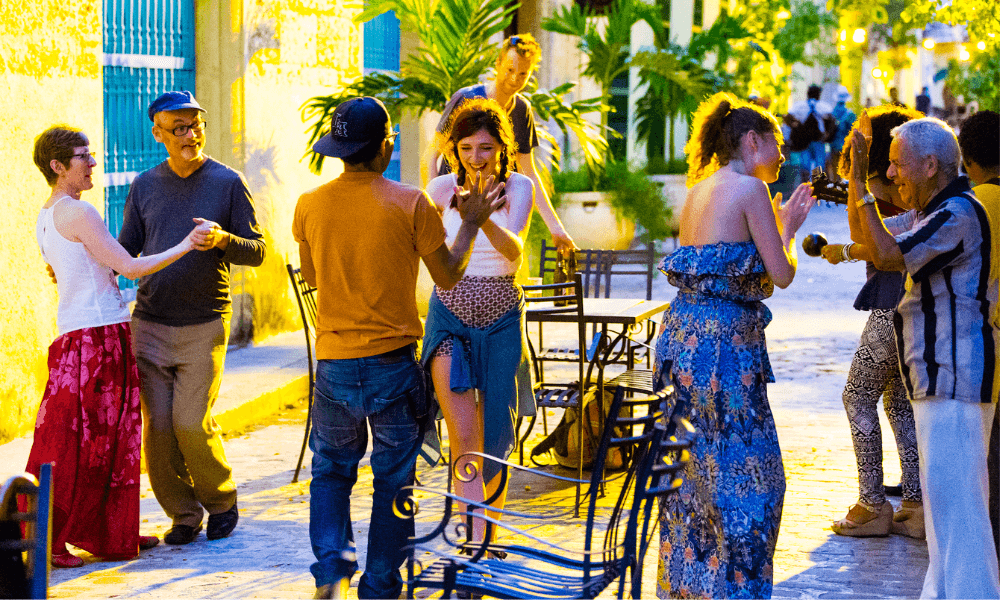
Are you a US citizen looking for a sustainable Cuba tour? View our OFAC (Office of Foreign Assets Control) compliant tours and get closer to the real Cuba!
When it comes to the planet, we are committed to protecting it. We all emit too much carbon and we are on a mission to reduce our emissions and lower our carbon footprint year on year. We aren’t perfect but we are trying to be.
Need help planning your Cuba holiday? Get in touch with our friendly, international team of Cuba experts. Whether you are looking to join a group tour, create your own private group adventure or go bespoke, our sustainable holidays are packed with authentic experiences , flexible to suit your needs!
Connect with @cubaniatravel
Dive into the picturesque world of Cuba through the lens of Cubania on our Instagram feed. We curate the most enchanting moments from our trips, showcasing the stunning landscapes, cultural encounters, and the joy of our travelers.
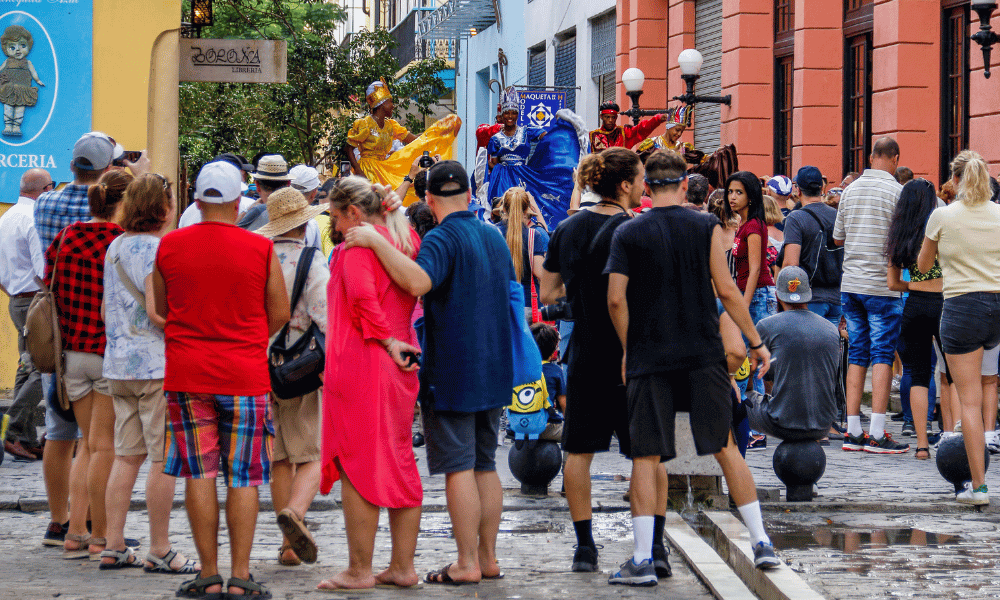
Is Cuba safe?
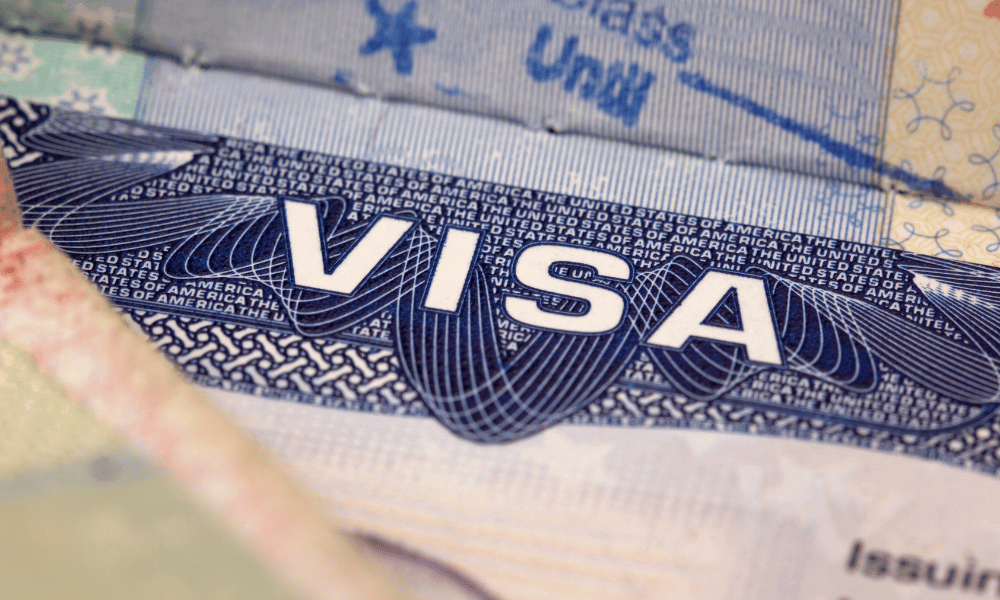
Can Europeans travel to the US if you have been to Cuba?
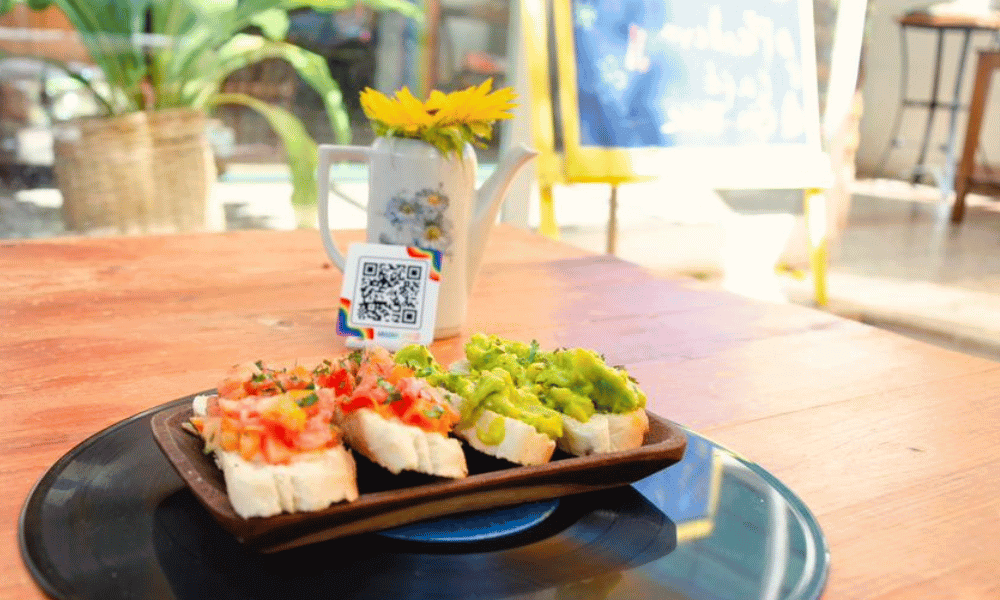
Top vegan places to eat in Havana
Subscribe to our newsletter.

Cuba is open! Book your trip now!
Free cuba travel guide.
Subscribe to our newsletter to get useful information and up-to-date insights on the island. Get tips on:
✔ Local language ✔ Cycling & Trekking ✔ Money & Costs ✔ Transport ✔ Hotel & Facilities
Business Channel B2C B2B Guides Journalists
Downloaded Destination Guide Bike Cuba Cubania Classic Cycle Cuba Insight Experience Havana Cuban Active Adventure Western Skyline Ride Cuba Completa Hip Havana Salsa Cubana Road Cycling Western & Central Cuba Bikepacking Cuba Kayaking in Cuba Run And Cycle In Cuba Havana Marathon Queer Cuba Havana Cycling Tour Western Cuba Trek Family Active Adventure Central Cuba Bike Ride Cuban Discovery Family Beach and Culture Central Cuba Trek Western And Central Cuba Trek Road Cycling Cuba Vuelta de Cuba
Consent I am happy for Cubania Travel to contact me occasionally via email
Click here to download Haga clic aquí para descargar
View Privacy Policy
Best time to visit Cuba
Book your individual trip , stress-free with local travel experts
- roughguides.com
- best-time-to-visit-cuba
Plan your tailor-made trip with a local expert
Book securely with money-back guarantee
Travel stress-free with local assistance and 24/7 support

written by Joanne Owen
updated 25.04.2024
Boasting a bounty of beautiful beaches, along with extraordinary wildlife-watching experiences, adventure opportunities and festivals, Cuba has much to commend it whenever you visit. That said, the best month to visit Cuba depends on what you most want to do, and your budget, along with your opinion on the likes of tourist numbers, and the potential risks of the hurricane season. With these factors in mind, here we present the best time to visit Cuba from different perspectives. One thing’s for sure, Cuba is the kind of sparky destination that first-timers often find themselves longing to return to.
- Overview of weather and tourist seasons
December and January — best for winter sun and high season vibes
February and march — best for outdoor adventure, april and october – best for shoulder-season balance, may, june and september — best for budget travellers, july and august — best for high energy cuban culture, overview of weather and tourist seasons .
Cuba has a tropical climate, with a November-April dry season , and a May-October wet season. Though the dry season is generally considered to be the best time to visit Cuba, note that downpours are often (but not always...) short-lived in the wet season, and temperatures are high.
- The Atlantic hurricane season runs from 1st June through to 30th November, with September and October often being peak months for tropical storms and hurricanes.
- Coinciding with the dry season, Cuba’s tourist high season runs from November to April, though visitor numbers often drop-off from — and through — April.
- The wet season months of June, July, August and September see low season levels of crowds, and corresponding lower costs, with visitor numbers increasing through October as a drier period beckons.
- It’s also worth knowing that while July and August see smaller numbers of international visitors, these months are busy for local tourism.
They're also the hottest months of the year — worth bearing in mind when planning your Cuba itinerary , along with the factors detailed below.

Cayo Coco, Cuba © Shutterstock
Kicking off with the obvious, according to a huge number of travellers, the best time to visit Cuba is during the peak high season months of December and January.
Given that these months sit in the region’s dry season — at a time when many of us are seeking respite from colder climes — visitors to Cuba in December and January can expect gloriously sunny, rain-free days.
With warm temperatures sitting comfortably below the sizzling heat of summer, these are arguably the best months for enjoying the best beaches in Cuba .
At the same time, December and January being high season months means major tourist hubs (among them Havana , Varadero and Guardalavaca ) will be busy with like-minded travellers hoping for fun in the sun.
Beyond the entertainment offered by tourist resorts, this time of year sees Cuba stage a number of major festivals that are worth visiting for in their own right.
For example, Havana hosts an international film festival in December. Come January, celebrated jazz festivals take place in both the Cuban capital and Santiago de Cuba .
The flipside of these attractive reasons to visit Cuba in December and January are the usual high season trappings. By which we mean higher costs for flights and accommodation, packed attractions, and busy beaches.
That said, you could always opt to explore lesser-travelled paths on an independent backpacking adventure, or on a customised Cuba itinerary that’ll take you off the beaten track .

Love film and music? December and January could be the best time to visit Cuba for notable festivals in Havana © Shutterstock
Though still sitting in the dry high season, February and March see visitor numbers drop-off from their December and January peak. These months also offer optimal conditions for diving and snorkelling.
The same is true of hiking and biking. Being cooler than the heady heat of summer, but still dry and warm, these are top months to explore the country’s wilder walking trails. They're also a great time to take advantage of Cuba’s relatively car-free roads on a cycling trip .
On the subject of cycling, if that kind of active trip sounds appealing, take inspiration from our customisable Bike Cuba itinerary, or our longer Western and Central Cuba by e-bike itinerary.
Bird-watchers, note that this time of year sees over 260 migratory species flock to Cuba. Ciénaga de Zapata in the Matanzas province, and Peninsula de Guanahacabibes in Pinar del Rio are notable hotspots.
Editor’s tip: travelling with kids? Check out our Active Adventure Family Trip .

Visit Peninsula de Zapata in February and March for amazing birdlife © Shutterstock
If you’re looking for a balance between high season crowds, warm weather and more moderate rainfall, April might be the best time for you to visit Cuba.
Sitting at the end of Cuba’s main high season — though Easter sees a spike in visitor numbers — April is quieter than January-March. It’s also cheaper and warmer than the preceding months, and drier than the months that follow.
Nature-lovers will also want to note that turtle-watching season kicks off at this time of year. For example, if you visit Cayo Largo between April and September, you might just get to see loggerhead, hawksbill and green turtles come ashore to nest.
A similar kind of balance can be had in October, which isn’t as hot and humid as June-September. Bargains can often be had in October, too.
Just be mindful of the fact that the official hurricane season runs until the end of November.

Playa los Cocos. Cayo Largo. Cuba © Shutterstock
While Cuba is eminently do-able on a modest budget around the year — especially if you stay in casas particulares — May, June and September offer the biggest bargains.
With these months still sitting in turtle season, they especially suit nature-lovers who are keen to curtail costs. Also note that a second bird migratory season takes place from September to November.
As a bonus, May sees Holguin stage Romerias de Mayo. Presenting performances from local and international musicians, along with parades, dance and art shows, it's fair to say this traditional religious festival has been given a modern makeover.
Meanwhile, the fabulously flamboyant Fiestas San Juaneras takes place in Trinidad at the end of June.
Again, be aware these months sit within the wet season, so expect rain showers and high humidity. Also note that tropical storms and hurricanes are a possibility in June, and more so in September.

Trinidad, Cuba © Shutterstock
Though low season months for international tourism, July and August see an increase in domestic tourism. At the same time, temperatures rise to their annual peak.
In terms of the numbers, average daily highs typically hit 32-34 º C in August.
Hosting two major cultural events, July is an especially great time to visit Santiago de Cuba . First up, Fiesta del Fuego — a three-day fire festival, which is held in early July.
Officially known as the Festival del Caribe, this sees the city transformed into the stage for all manner of costumed parades, performances, and giant congas through the streets.
Stick around until the end of July and you’ll also get to experience one of Cuba’s liveliest events — the Santiago de Cuba carnival.
Come August, Havana hosts its own carnival, while Varadero’s Josone Music Festival showcases the talents of top jazz and son Cubano musicians.

Santiago de Cuba © Vadim Nefedoff/Shutterstock
Whenever you decide is the best time for you to visit Cuba, wise up on the best things to do in Cuba , and get yourself The Rough Guide to Cuba to help plan your trip.
Not keen on planning? Browse our customisable Cuba itineraries , or talk to our local experts .
Joanne is a Pembrokeshire-born writer with a passion for the nature, cultures and histories of the Caribbean region, especially Dominica. Also passionate about inspiring a love of adventure in young people, she’s the author of several books for children and young adults, hosts international writing workshops, and has written articles on the Caribbean and inspirational community initiatives for Rough Guides. Follow her @JoanneOwen on Twitter and @joanneowenwrites on Instagram.
- Travel Advice
- Travel Tips
- Inspiration
Planning your own trip? Prepare for your trip
Use Rough Guides' trusted partners for great rates
Travel advice for Cuba
From travel safety to visa requirements, discover the best tips for traveling to Cuba
- Eating and drinking in Cuba
- How to get to Cuba
- Getting around Cuba: Transportation Tips
- Travel Tips Cuba for planning and on the go
Find even more inspiration for 60 here

Ready to travel and discover Cuba?
Get support from our local experts for stress-free planning & worry-free travels.
- Where to stay
- Itineraries
- Travel advice
- 1-800-993-9667
- [email protected]
- Mon - Fri: 9:30 - 17:00 | Sat: 9:00 - 15:00
- Mon - Fri: 9:00 - 17:00 | Sat: 9:00 - 15:00

Explore Cuba!
Explore the most popular destinations on the island, from the authentic colonial Havana, to Baracoa, the first village founded in Cuba in 1492.
Pinar del Río
Santiago de cuba, the best prices ... always with us.
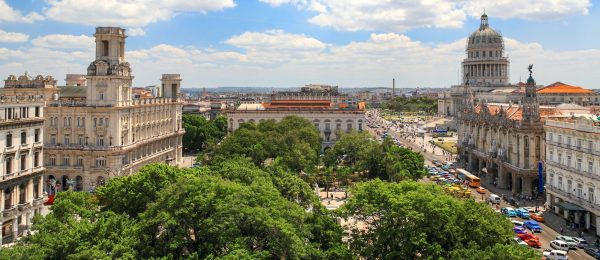
Miami - Havana - Miami
February, March, April, May, June From:
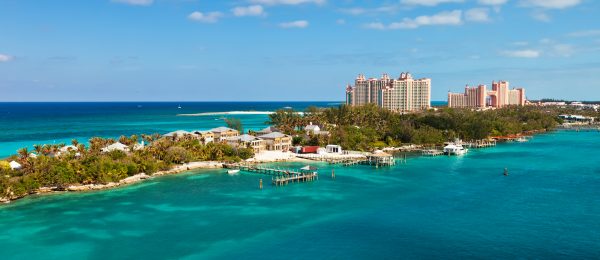
Miami - Nassau - Miami
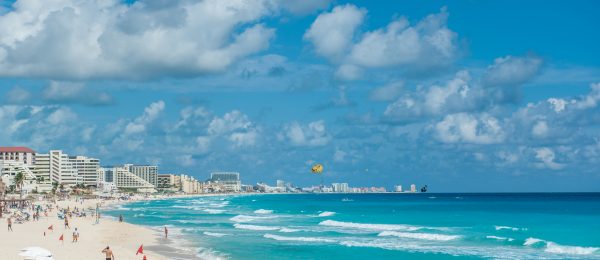
Miami - Cancun - Miami
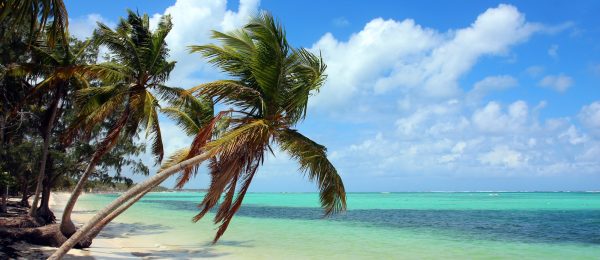
Miami - Punta Cana - Miami
Get to know cuba with us.
We provide customized services for groups and individuals traveling to Cuba. We specialize in group and Business travel. Experience Cuba through our amazing travel programs, carefully crafted to help you explore the many facets of Cuba through vibrant encounters and unforgettable experiences. Let us take care of every detail, from the moment you land to the minute you say !Adios! to this incredible island nation!
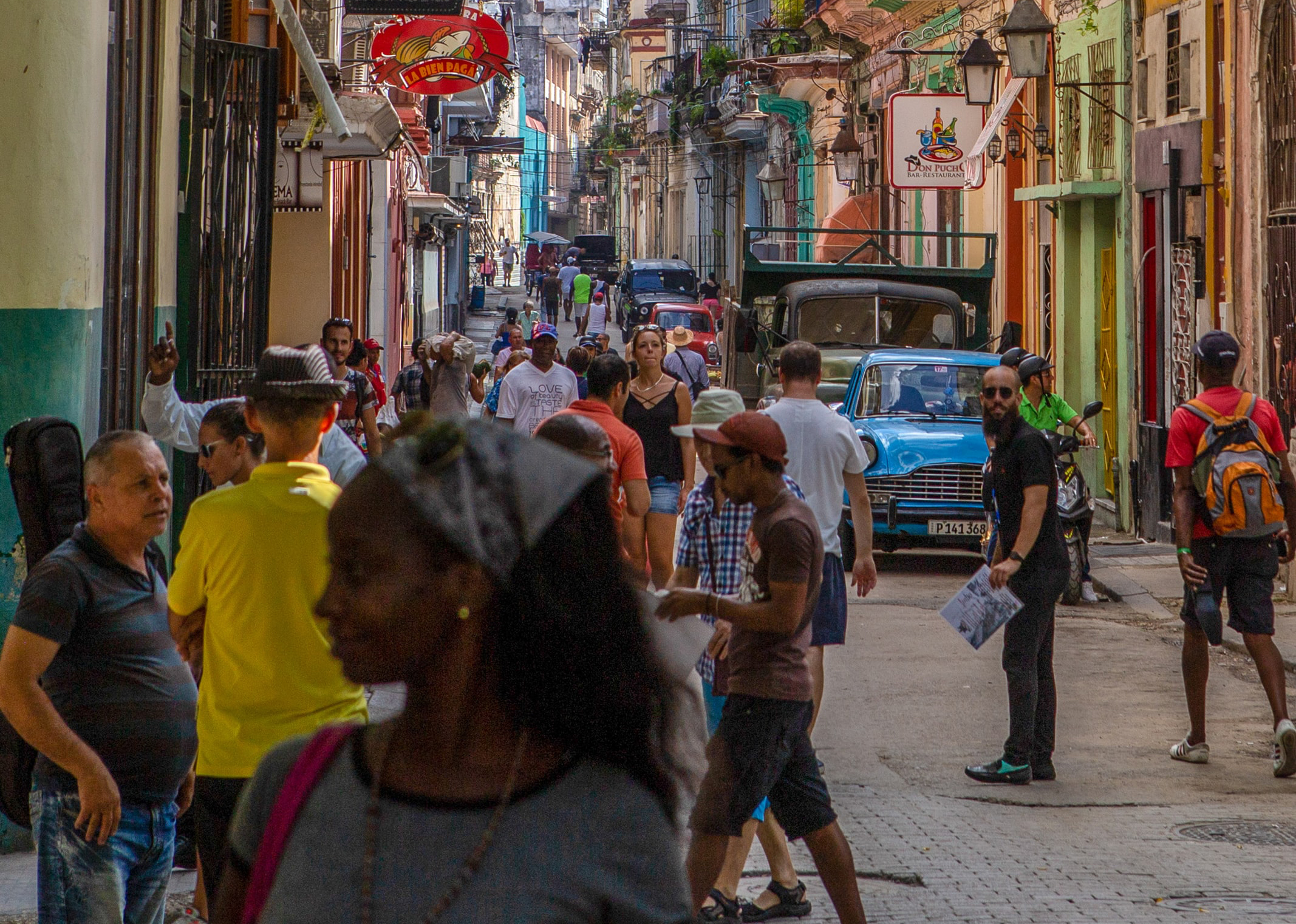
Civil Society Program
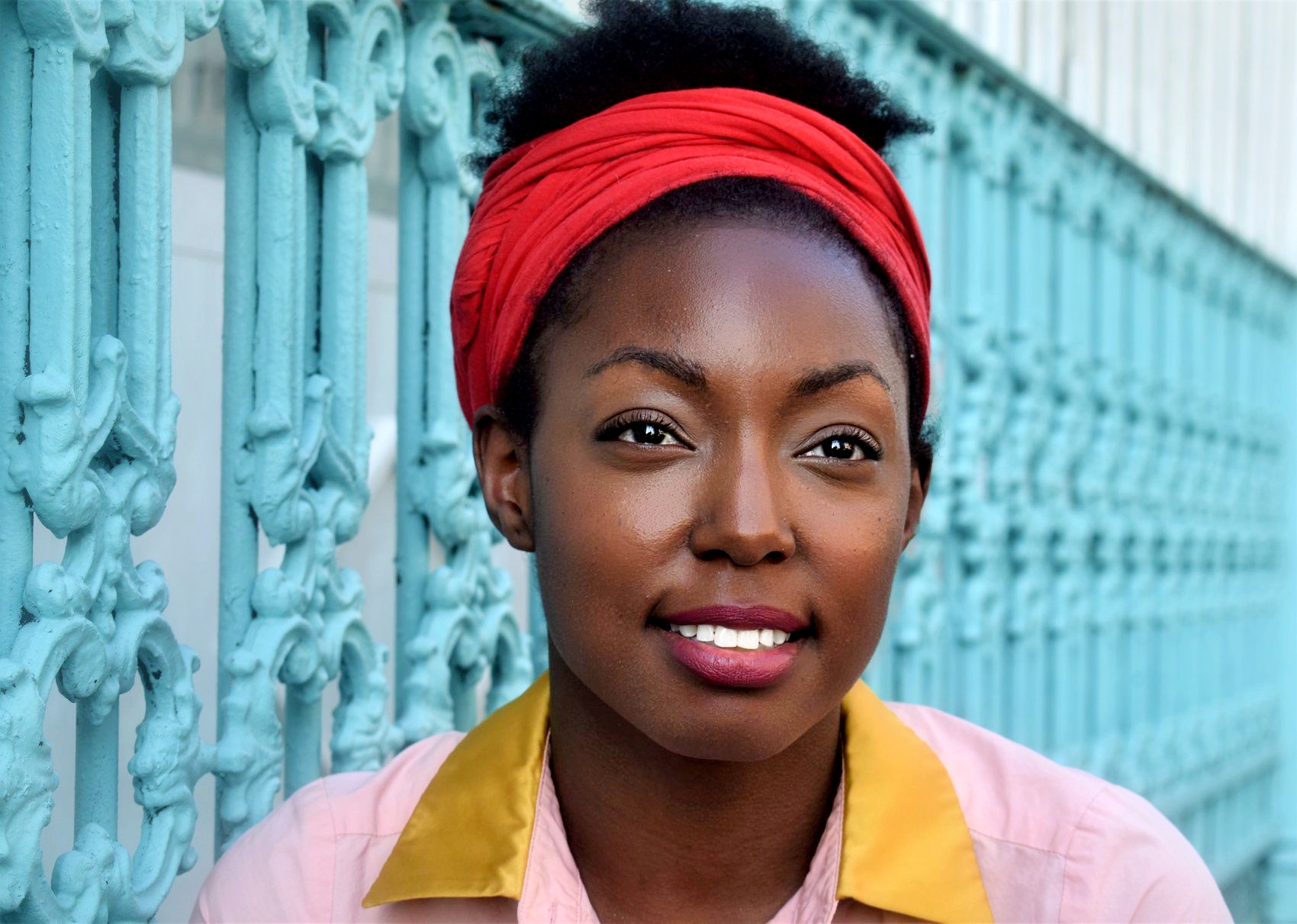
Gender Program
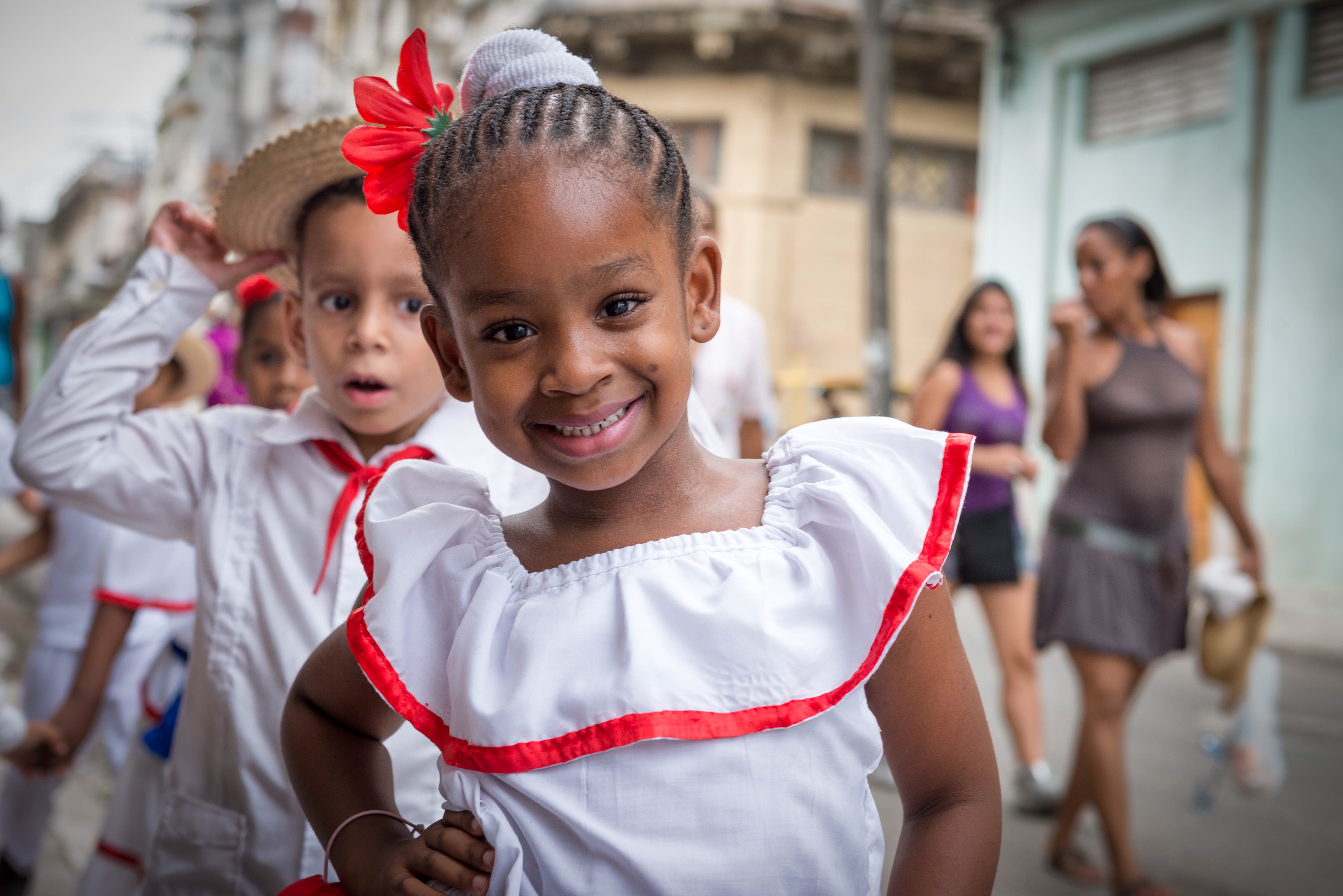
Cuban Education System Program
We've got you covered, marazul has led the industry in pursuit of the freedom of americans to travel & the right of cuban-americans to reconnect with their families. as the leading cuba travel provider, we have provided excellent service for clients & groups for almost 40 years. travel to cuba remains legal, and it has always been one of the safest destinations for us travelers in the world., join our theme specific programs and take an in-depth look at cuba; learn about its unique educational system, world leading healthcare, renowned disaster relief efforts, african roots, unique cuisine and its famous music and dance. explore its magical beaches and cayos, or take a trip to the mountains to enjoy enchanting waterfalls, cocoa farms, tobacco farms, and more want to visit colonial cities and unesco world heritage sites it’s never been a better time to travel to cuba–we’ve got you covered, hotels deals.
Whether you are traveling with your family to visit your loved ones or you are a part of a delegation or licensed group, or individuals that fall within the 12 travel categories, we help you find the perfect accommodations in Cuba! Marazul offers expert advice and flexible reservations in any hotel in Cuba.
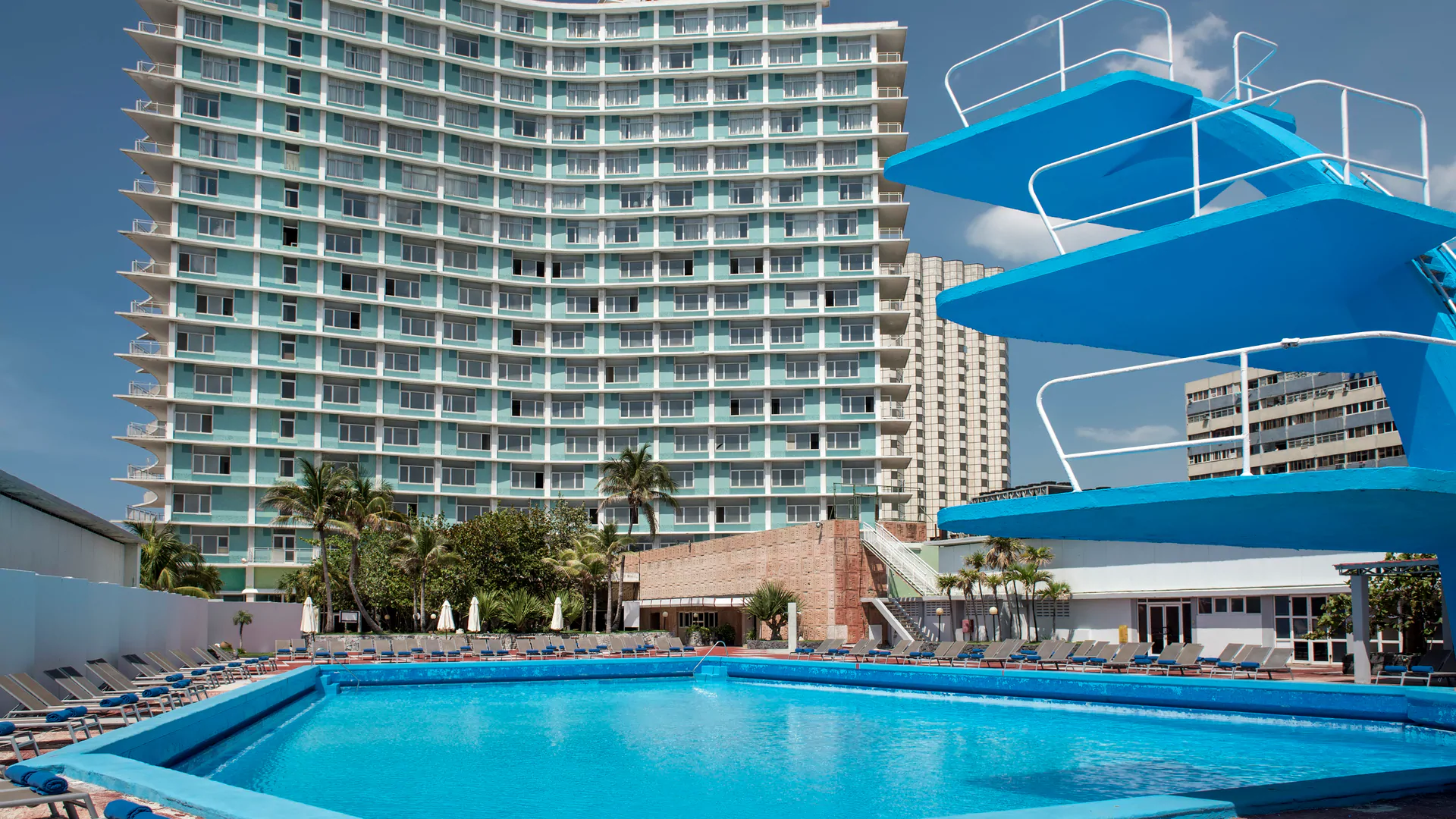
Habana Riviera
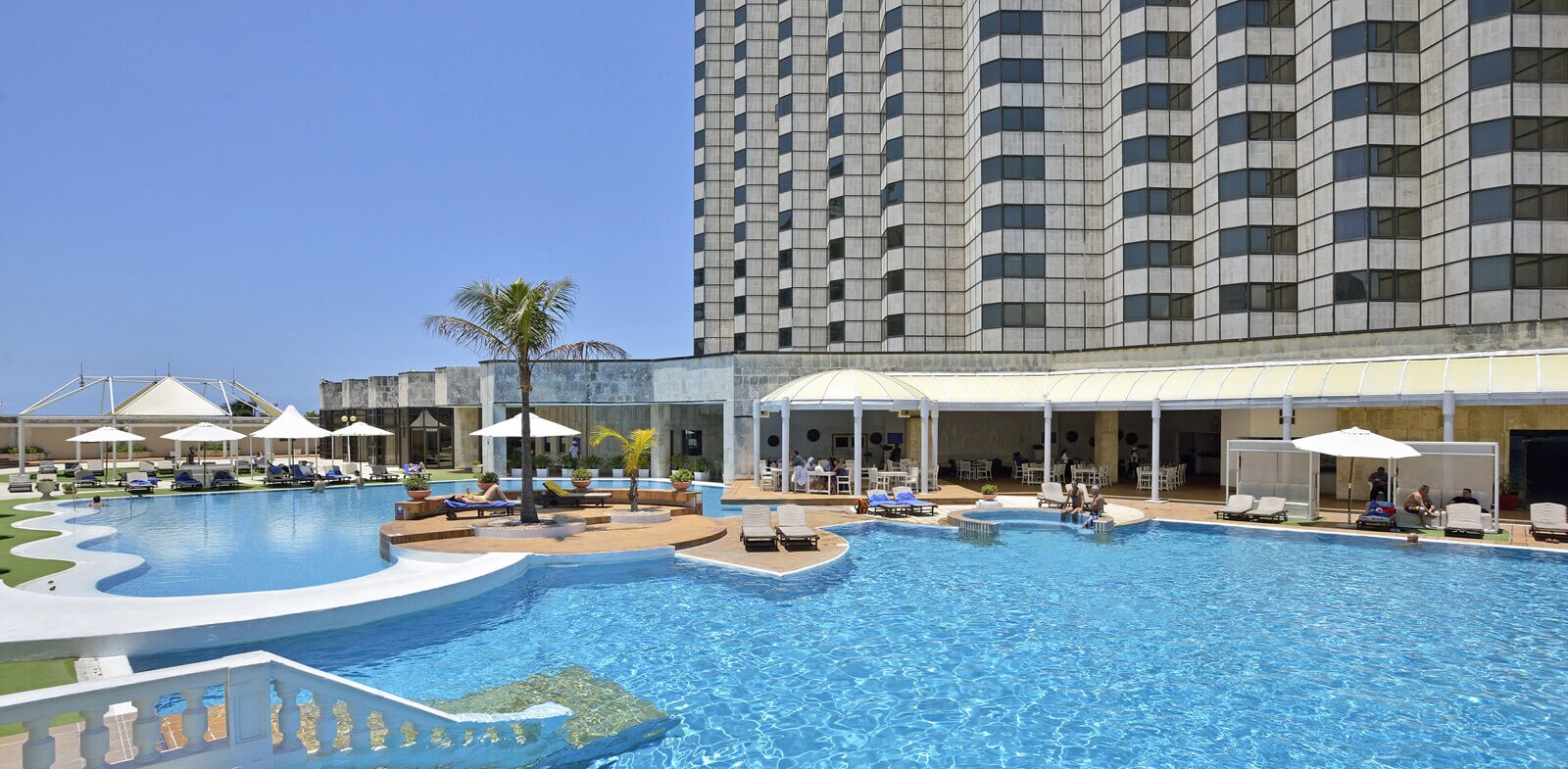
Melia Cohiba
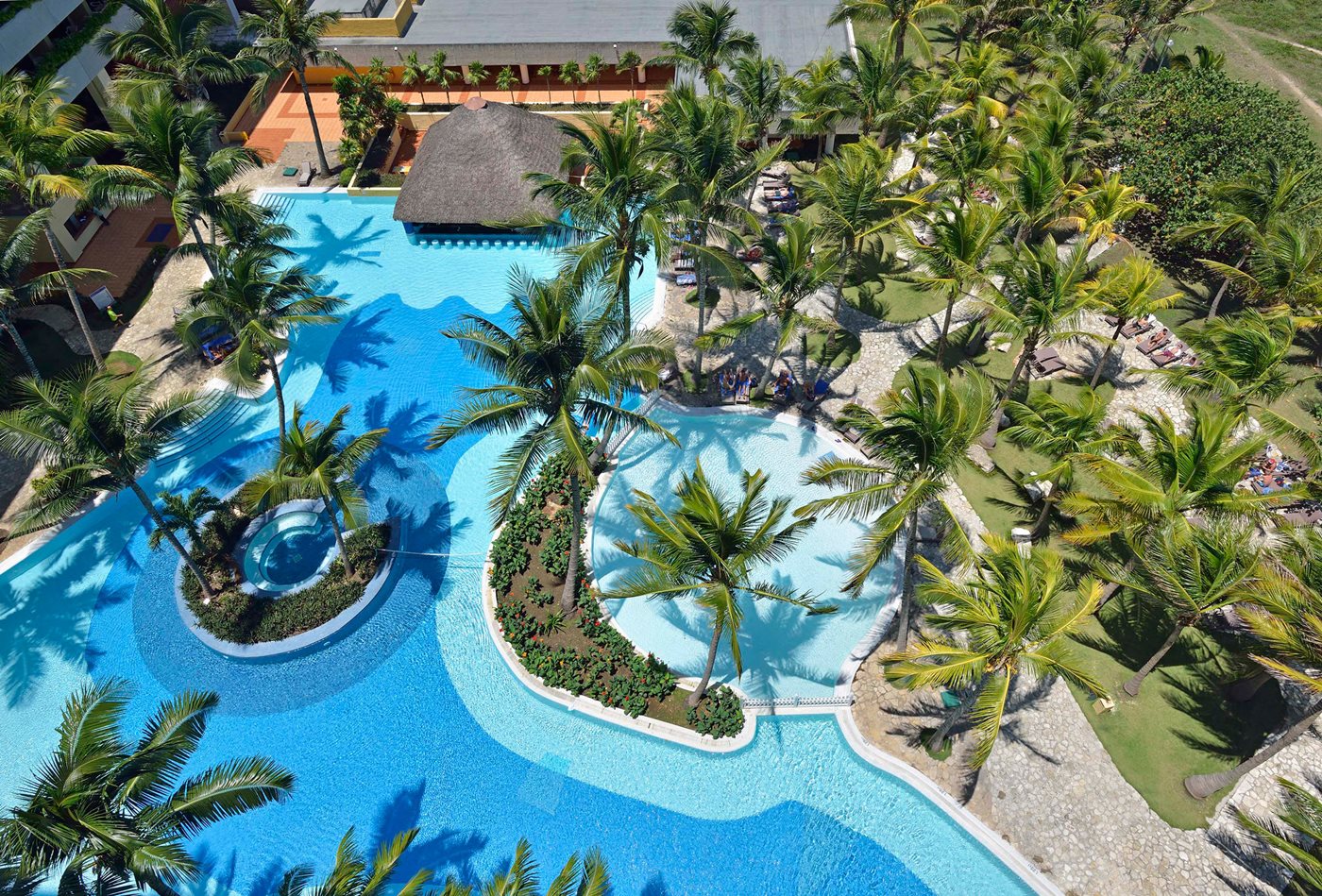
Melia Habana
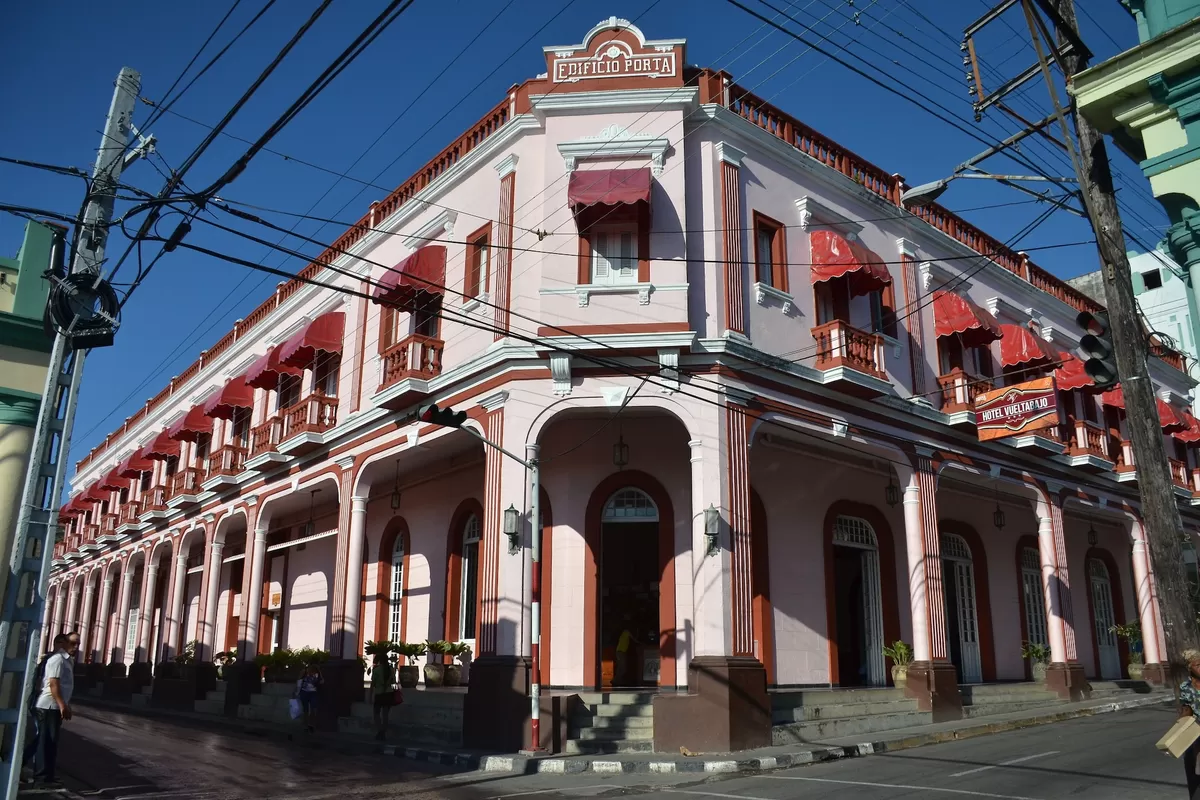
Iberostar Tainos
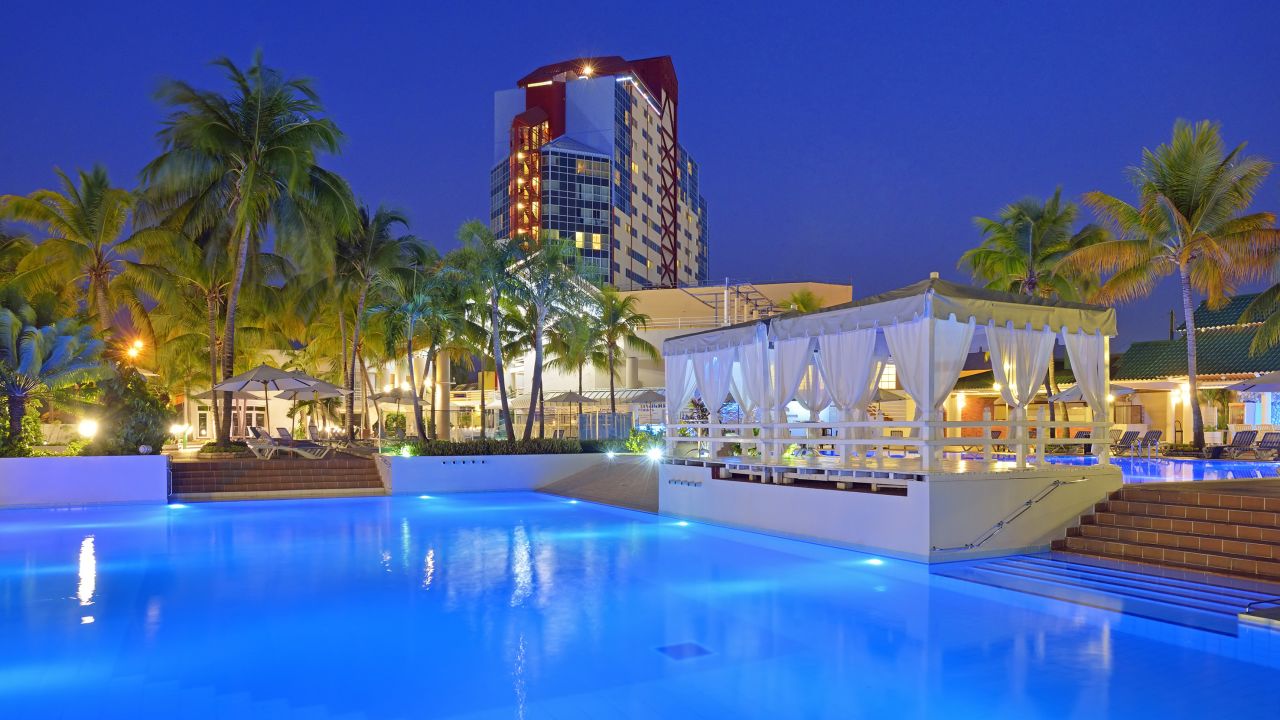
Melia Santiago de Cuba
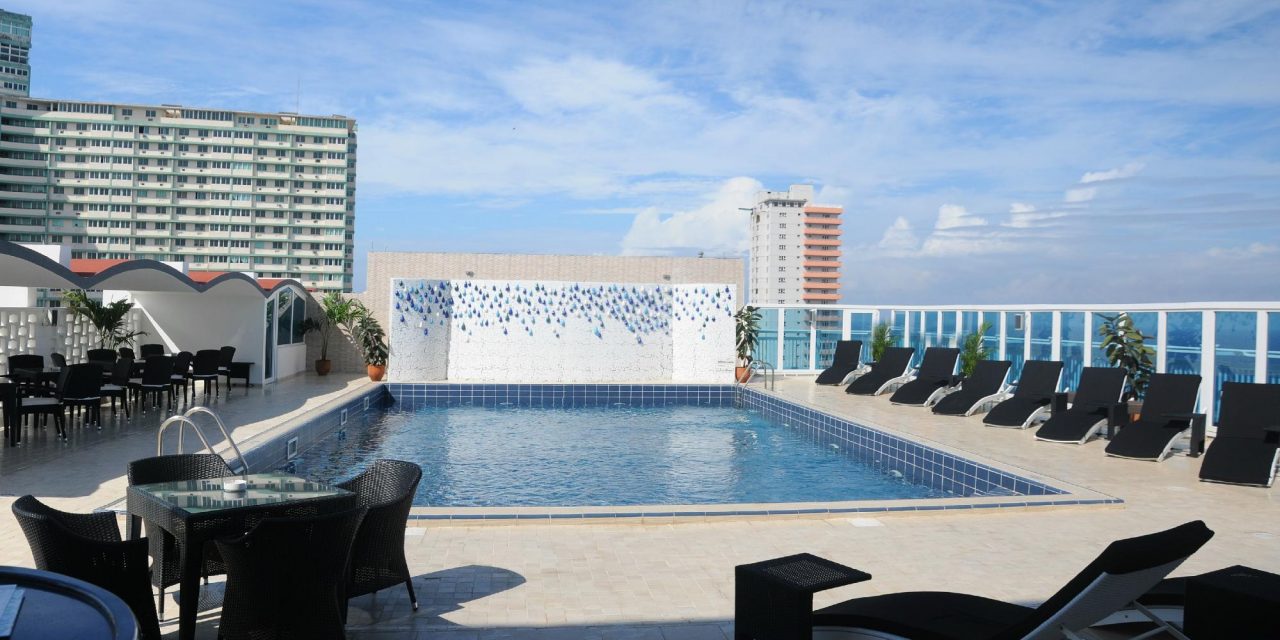
Royalton Hicacos
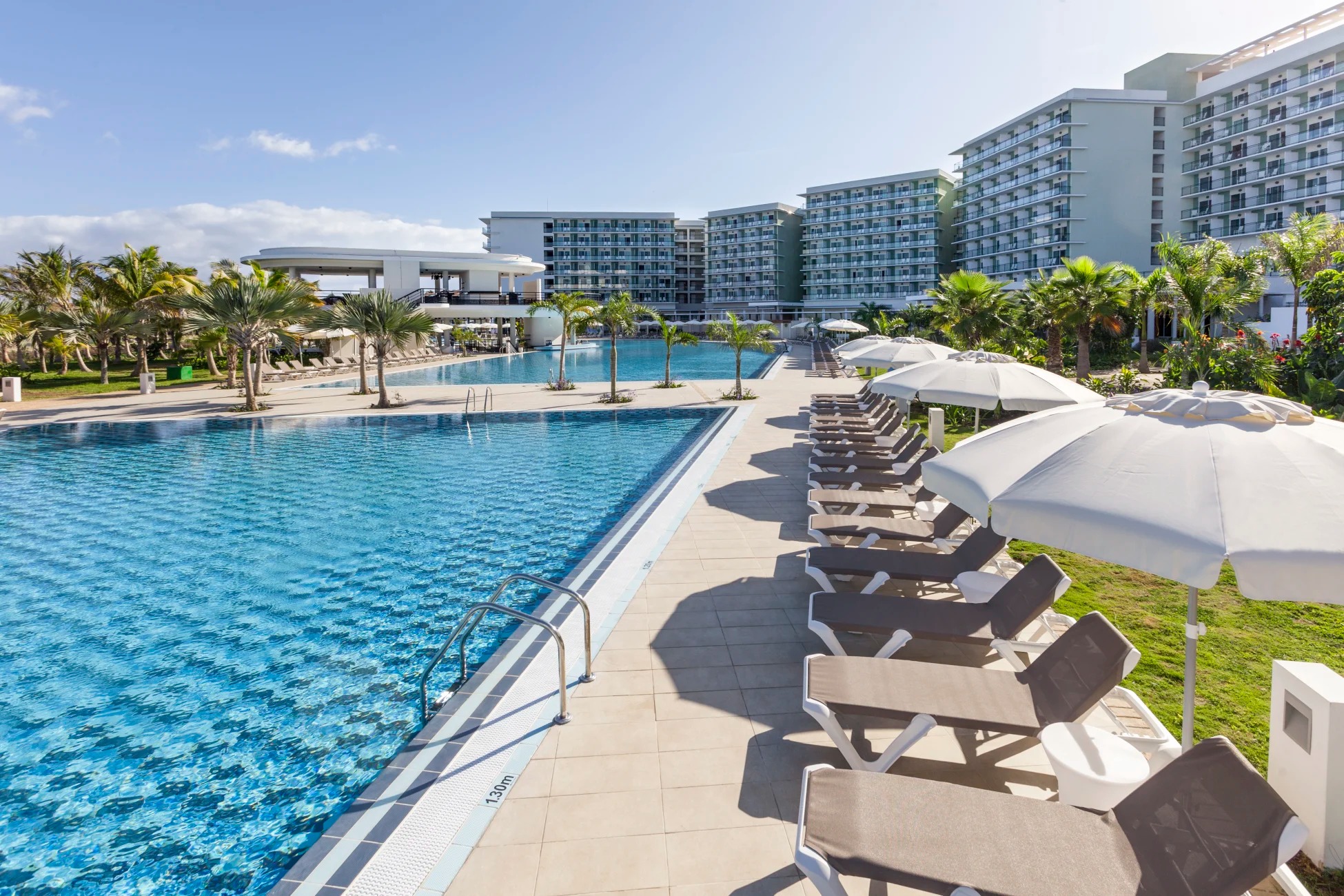
Melia Internacional Varadero
Featured car deals.
Marazul will find you the best deals and latest car rentals in Cuba. We offer the most convenient and affordable rental because we customize our offer to fit your needs. With Marazul you can choose your car, make the reservation, prepay it in the United States and choose your pick-up site in Cuba, in most cases your car is ready at the airport upon arrival or at your Hotel when you check-in, saving you time and money!
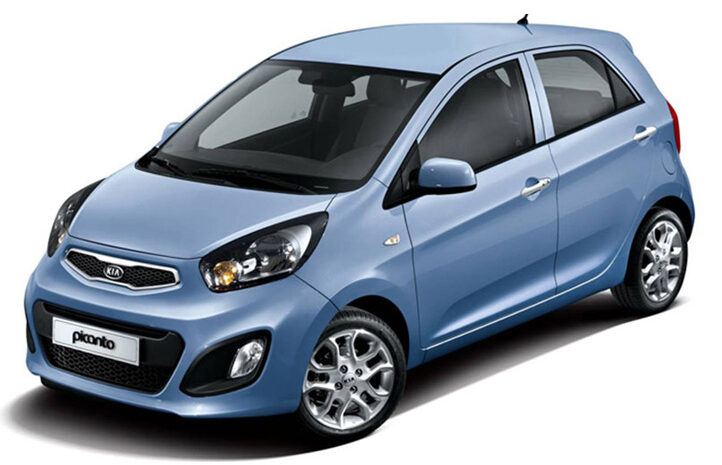
Intermediate
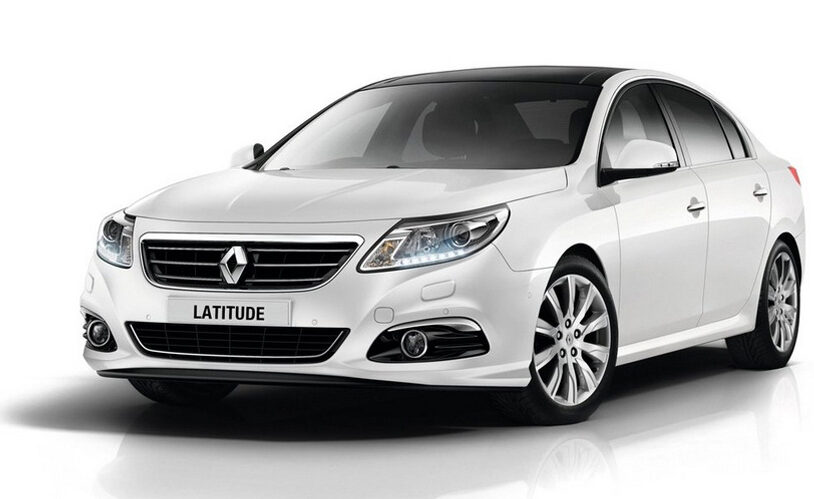
Why Travel with Marazul?
Marazul, as the oldest and largest continuously operating travel agency to cuba, has been committed since 1979 to providing a bridge of understanding between the people of both countries by offering the entire range of travel services including air and visa arrangements, family reunification assistance, and the most specialized group programs in all areas of interest., through our deep ties with our cuban partners, educational institutions, ministries, mass organizations, and cultural and religious centers, we encourage and guarantee the highest levels of exchange between our two peoples. marazul practices and promotes ethically and socially responsible travel to cuba., recent news.
Checkout latest news and articles from our blog
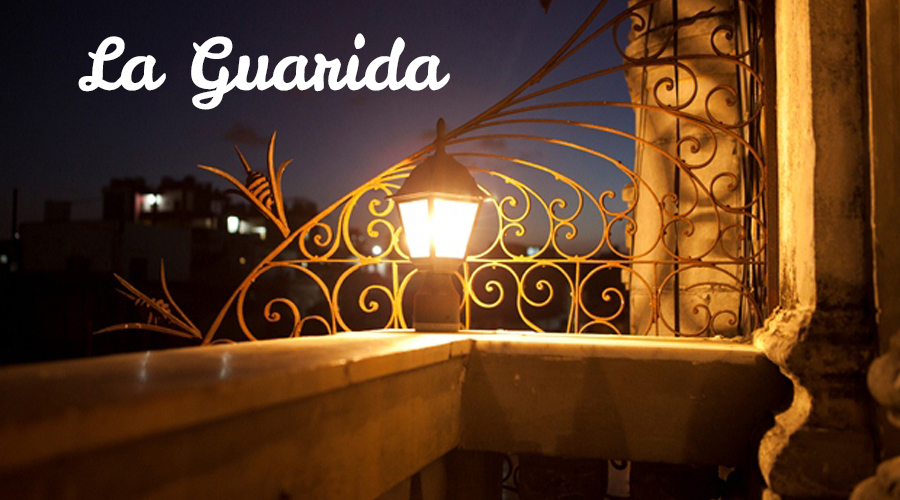
Where to eat in Havana (3)
Everyone who plans a trip to Cuba gets the same...
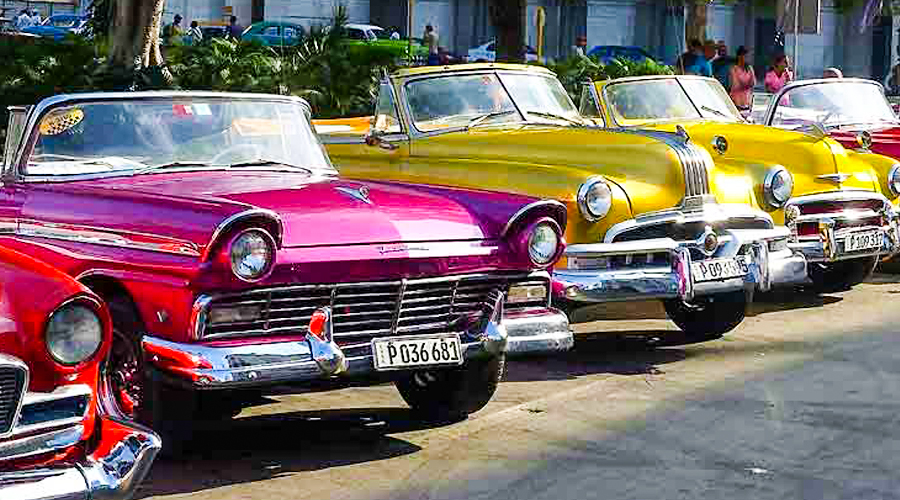
Vintage car rally animates the streets of Havana
The unique mix of old and new is one of...
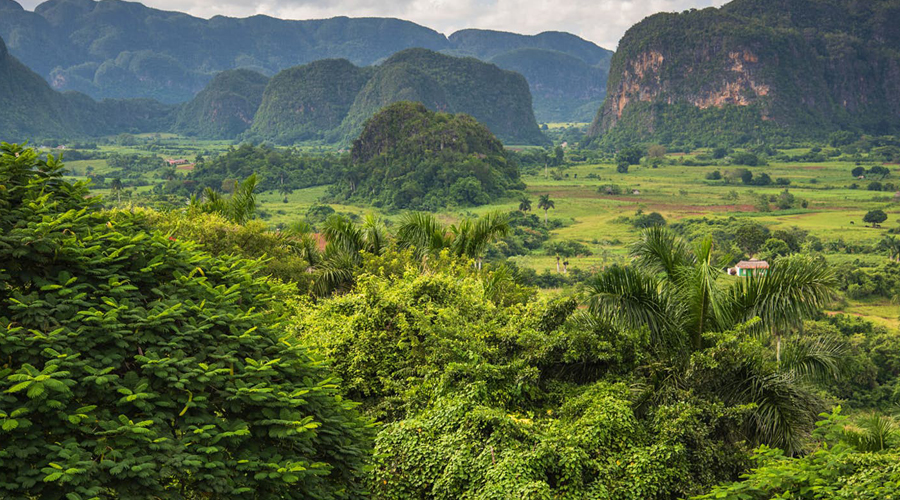
Havana to Viñales: a classic Cuban road trip
At the turnoff for Viñales, the road changes abruptly from...
We are members of

LITTLE HAVANA
- (305) 644-0255
- 785 NW 37 Ave. Miami. FL 33125
- (305) 828-8950
- 5388 W 16 Ave. Hialeah. FL 33012

© Marazul 1979 - 2019. Marazul Miami Travel is registered with the State of Florida as a seller of Travel registration ST38933.
PLAN YOUR TRIP
- Travel Programs
- Destinations
- Accommodations
- Car Rentals
Travel to Cuba
- Consular Services
- Partner with Us
Cuba Vacations
Related collections, more deals & tips.
- Trending Deals
- Last-Minute Deals
Your location
Where are you.

Create an account.
Just one more thing..., check your inbox., create your password..
- Access to exclusive travel, entertainment, and lifestyle experiences
- Hand-picked offers, personally reviewed by our global team of deal experts, delivered to your inbox
- Dedicated club-member customer support
Sign in to your account.
Enter your password.
Please accept this confidentiality pledge:
I agree to maintain the strict confidentiality required to access Travelzoo’s confidential offers. I will not reveal details of these confidential offers publicly, which includes not posting about it on social media. I will not attempt to purchase a confidential offer for anyone else. I understand that violating these conditions can result in my access being revoked.
To view confidential offers, we require that you sign a confidentiality agreement.
Don’t know password?
You're all set, join travelzoo, sign in to unlock, don't miss out, our deal experts have negotiated member exclusive rates for people like you., and you’re in..
Welcome, Travelzoo Member . You now have access to confidential offers. To access Confidential Offers in the future, you can use the link from your email, or the link under My Account on the Travelzoo website. This page is only accessible to Confidential Offer members.
You now have access to all our deals.
Here are the details of the deal you were interested in.
Sign in to save and manage your deal alerts
Sign in to save this deal to favorites., already a member, not a member yet.

Havana to Viñales Day Trips: A Local's Guide
J ust a few hours west of Havana, the gorgeous Viñales Valley is one of the most dramatic landscapes in Cuba, its towering limestone "mogotes" making an immediate impression jutting from the valley below.
As locals, we've taken the Havana to Viñales day trip countless times - using public transport, private drivers, and everything in between. Read on for the best ways to enjoy a day trip to Viñales from Havana (plus the best organized day trip from Havana to Viñales that we always recommend - local guides included).
Havana to Viñales Day Trip
Cuba's best tobacco plantations, breathtaking views, gorgeous sunsets, and great food await in Viñales. Easily one of the best places to visit in Cuba , Viñales offers so much in addition to being a relatively affordable spot and a completely laid-back, country vibe that is a welcome change from the frenetic energy of Havana.
If you're looking for a day trip from Havana and debating whether a Havana to Viñales day trip is the right one for you, let me assure you, Viñales is impressive. Its landscapes are stunning and some of the most unique and dramatic you'll find in all of the Caribbean.
Combined with all the incredible things you can do in Viñales - even in just one day - it promises an action-packed day trip that will show you a completely unique side of Cuba.
How To Get From Havana to Viñales
There are plenty of ways to get from Havana to Viñales, though if you're looking to return to Havana on the same day, you'll have fewer options. Most travelers looking for a Havana to Viñales day trip choose a small-group excursion (or a private excursion with just your family and friends) . For just one day, it's the easiest (and usually most affordable way) to travel.
These are the four main ways to get from Havana to Viñales:
Take the Bus from Havana to Viñales
- Take a Day Trip Excursion
- Take a Shared Taxi
- Take a Private Taxi
If not booking a small-group excursion, most other travelers head to Viñales via private or shared taxi. You can either find a shared taxi filling near the Havana bus station or connect with your hotel or guesthouse (casa particular) host to search for taxi-sharing options.
Generally, it's more affordable to just book an inclusive excursion rather than booking things piecemeal.
How Far Is Viñales From Havana?
Viñales is just over 100 miles (180 km) from Havana and about a two-and-a-half-hour drive from Havana via private car. The bus ride from Havana to Viñales is longer, about three and a half to four hours.
It can be a bit far to travel for a day trip, so we strongly recommend travelers find space in their Cuba itinerary for at least one overnight in Viñales, if possible. This is even more necessary if you're planning on taking the public bus between Havana and Viñales; current bus schedules don't allow for much of a visit at all in just one day.
Plan a Trip to Viñales
- 12+ Best Things To Do in Viñales
- Viñales, Cuba: Ultimate Travel Guide
- Where To Stay in Viñales, Cuba | Accommodation Guide
Recommended: Havana to Viñales Day Trip Excursions
For a day trip from Havana to Viñales, most travelers prefer to book a small-group Havana to Viñales excursion. This offers a complete, hassle-free trip to Viñales and around the valley to enjoy the best parts of the Viñales.
On our past Havana to Viñales excursions we've loved the variety of activities we've been able to do in just one day. Touring a tobacco farm and learning how to make cigars, taking in some of the best viewpoints of the Viñales Valley near Jazmines, eating delicious local food, touring caves - it's all definitely possible on an excursion from Havana to Viñales.
We always recommend travelers use the Civitatis excursion to Viñales, as it's an incredibly well-done Viñales tour from Havana - we've had friends and family rave about it. This Viñales tour from Havana is all day and includes all the best things to do in Viñales, including the obligatory tobacco plantation visit , time to explore the caves of Viñales, great food, and much more.
Read More: 12+ Best Things To Do in Viñales
While you can take buses between Havana and Viñales, their current schedule doesn't quite allow for this to be your mode of transportation for a day trip from Havana. The daily bus from Havana to Viñales arrives at around 10:30 AM, and the departure to Havana leaves at 11:55 AM, meaning you would barely have any time in Viñales.
Save public transportation for an itinerary where you spend at least one night in Viñales, and opt for private transportation for a one-day trip.
Things To Do in Viñales (In One Day)
You'll be surprised how many things to do in Vinãles you can pack into one day without feeling like you're hopping from one activity to the next.
With all the best of Viñales close together, it's easy to get around and explore in a short period of time (another reason it's a great day trip destination). There are some of the best things to do in Viñales on your Havana to Viñales day trip.
1. Horseback Riding Tour To Tobacco Farms
By far the most popular thing to do in Viñales is taking a horseback riding excursion through the national park to visit Viñales' famous tobacco farms , responsible for the world-famous Cuban cigars you've certainly heard about.
These excursions are super comprehensive and include a full farm tour, a visit to the structures where tobacco is hung and dried, and a tutorial about how to roll the cigars and smoke them the Cuban way (Che Guevara had a special trick for this!). All the while you'll be among the most impressive parts of the valley for stunningly beautiful views of the famous Viñales mogotes.
Not into horseback riding? You can also take a spin around Viñales in a vintage American car, which includes a visit to the tobacco plantation areas and valley viewpoints as well. It's definitely a way to see the stunning valley in style.
2. Take in the View From Balcón del Valle
Viñales is all about the stunning valley views, but there's just no place in Viñales with a better view than Balcón del Valle. This local restaurant is located on the road into town and boasts a giant patio to make the most of the views (and has great, affordably priced food).
We came here for breakfast on our last Havana to Vinales day trip and let me tell you, the view was unbelievable. When we arrived, haze was covering the valley, but as the sun rose further and burned off the clouds, the valley was revealed in all its splendor. Wow!
3. Explore the Caves
Hidden through the Viñales Valley and among the mogotes that have made it famous, Vinales is home to hundreds (or thousands!) of caves, big and small. Whether you want to hike to a few caves in the valley or take a proper cave tour to famous spots like Cueva del Indio and Cuevas de Santo Tomás, you'll be impressed with the number and size of these spots.
Some are filled with water similar to the cenotes in Mexico - at Cueva del Indio, you can even take a boat ride through the underground lake system.
4. Enjoy Home Cooking (Cuba's Best)
Viñales isn't a real foodie capital, but at the heart of this agricultural region, it has some incredible farm-to-table restaurants worth checking out.
Balcón del Valle can't be beaten for its views, but if you're looking for something super special food-wise, try out these spots: El Olivo, which has a great combination of Cuban and Mediterranean dishes, and La Berengena has a great mix of vegetarian options and unique takes on Cuban classics.
For the very best farm-to-table experience in Viñales, look no further than Finca Agroecologica El Paraiso. Set a bit outside the city on its own farm, the restaurant serves up delicious food and great drinks while offering absolutely stunning views of the valley.
Viñales Accommodation Guides
- Where To Stay in Viñales | Ultimate Accommodation Guide
- 6 Best Casa Particular Guest Houses in Viñales
Viñales Day Trip
Whether you only have time for a few hours in Vinales or can extend your Havana to Viñales day trip into a full day or two in town, you'll love your excursion to this small town with so much to offer. One of Cuba's most popular

Advertisement
Supported by
In a Communist Stronghold, Capitalists Become an Economic Lifeline
Cuba’s Communist revolution took aim at private businesses, making them largely illegal. Today, they are proliferating, while the socialist economy craters.
- Share full article

By David C. Adams
David C. Adams visited more than a dozen private businesses in Havana to document the growth of the private sector.
A modern grocery store whose shelves are packed with everything from pasta to wine fills a spot in central Havana once occupied by a drab state-owned flower shop, its ceilings and walls repaired and repainted.
Listen to this article with reporter commentary
A former state glass company in a Havana suburb now houses a showroom for a private business selling Cuban-made furniture.
And at the Cuban capital’s port, forklifts carefully unload American eggs from a refrigerated container. The eggs are bound for an online private supermarket that, much like Amazon Fresh, provides home delivery.
These ventures are part of an explosion of thousands of private businesses that have opened in recent years across Cuba, a remarkable shift in a country where such enterprises have not been permitted and where Fidel Castro rose to power leading a communist revolution determined to eliminate capitalist notions like private ownership.
But today Cuba is confronting its worst financial crisis in decades, driven by government inefficiency and mismanagement and a decades-long U.S. economic embargo that has led to a collapse in domestic production, rising inflation, constant power outages and shortages of fuel, meat and other necessities.
So the island’s communist leaders are turning back the clock and embracing private entrepreneurs, a class of people they once vilified as “filthy” capitalists.
Taking advantage of loosened government restrictions granting Cubans the legal right to set up their own enterprises, roughly 10,200 new private businesses have opened since 2021, creating a dynamic, if fledgling, alternative economy alongside the country’s hobbled socialist model.
Underscoring the growth of private businesses — and the government’s economic travails — private sector and government imports last year each totaled about $1 billion, according to government data.
Much of the private sector imports came from the United States and were financed by cash remittances sent by Cubans there to relatives back home. About 1.5 million people work for private businesses, a 30 percent jump since 2021, and they now represent almost half of the total work force on the Caribbean island.
“Never has the private sector been given so much space to operate in Cuba,” said Pavel Vidal, who studies Cuba’s economy and is a university professor in Cali, Colombia. “The government is bankrupt, so it has no other choice but to invite other actors in.”
Despite the private sector’s growth, its overall contribution to Cuba’s economy, while increasing, remains modest, accounting for about 15 percent of gross domestic production.
Still, the economic transformation is significant enough that it is leading to deep divisions in the island’s communist system as a new business elite acquires wealth, something anathema to Cuba’s revolutionary ideology.
Cubans working for the state, including white-collar professionals, doctors and teachers, make the equivalent of roughly $15 a month in Cuban pesos, while employees in the private sector can make five to 10 times that amount.
A government salary does not go very far in the private stores that have popped up, where a bag of Italian potato chips costs $3, a bottle of good Italian wine $20 and even an everyday need, like toilet paper, costs $6 for a pack of 10 rolls.
Most customers who can afford those kinds of prices receive money from abroad, work for other private businesses or are diplomats.
“You have to be a millionaire to live in Cuba today,” said Yoandris Hierrezuelo, 38, who sells fruit and vegetables from a cart in Havana’s Vedado neighborhood, earning about $5 a day. “The state can no longer meet the basic needs of the population.”
Cuban government officials said the legalization of private businesses was not a grudging acceptance of capitalism for the sake of economic survival, making it clear that state-run industries still dwarf the private sector’s role in the economy.
“It’s not an improvised strategy,” Susset Rosales, the planning and development director at the Ministry of Economy, said in an interview. “We have a very clear idea of the pathway for gradual recuperation of the economy with the incorporation of new economic actors that are complementary to the socialist state economy.”
But U.S. officials say that the growth of private businesses could be a game changer, paving the way for greater democratic and economic freedom.
“The question is — are they enough?” said Benjamin Ziff, the chargé d’affaires who heads the United States Embassy in Cuba. “Cuba is falling apart faster than it is being rebuilt. There is no turning back.’’
A key question, he added, is whether the government will allow the private sector “to expand fast enough and freely enough to meet the challenges.”
Cuba’s rapidly expanding private sector has attracted deep skepticism within Miami’s staunchly anti-Communist Cuban exile community, where many dismiss it as a ruse by Cuba’s communist leaders to ride out the economic crisis and cling to power.
Representative Maria Elvira Salazar, a Republican and one of South Florida’s three Cuban Americans in Congress, led a congressional hearing in January about private business titled “The Myth of the New Cuban Entrepreneurs” and suggested that licenses for such ventures were reserved for relatives of Cuban government officials.
“The Cuban regime is still in the business of power, and there’s nothing that proves to me that they’re willing to give a portion of that market share to anybody else but themselves,” she said in an interview.
Since banning private businesses in the 1960s, Cuba has, in fact, experimented with free market practices during other times of hardship, only to roll them back later when economic pressures eased.
When the Soviet Union collapsed in the early 1990s and left Cuba without its main economic benefactor, the government issued a limited number of “self-employment” licenses for some low-income tradespeople, including barbers and tire repairers.
After President Barack Obama restored diplomatic relations with Cuba in 2015 and relaxed the U.S. embargo, American tourists flooded the island, and U.S. companies began exploring investments.
Still, the Communist Party never fully embraced the private sector, regarding it as a potential Trojan horse for “Yanqui imperialists.”
Then came a double blow. Donald J. Trump’s election in 2016 led to the restoring of sanctions on Cuba, including a ban on U.S. cruise lines sailing there. Three years later, the Covid-19 pandemic shut down Cuba’s tourism sector entirely, its largest source of foreign currency.
Since then, Cuba has been in financial free fall. Production of pork, rice and beans — food staples — plunged by more than half between 2019 and 2023, according to the government.
This year Cuba requested — for the first time — help from the United Nations World Food Program, to provide enough powdered milk for children, the state-run media reported. A lack of oil and an aging electrical grid have led to rolling blackouts across the country.
The worsening living conditions triggered a rare public display of unhappiness in March as hundreds of people took to the streets of Santiago de Cuba, the country’s second-largest city, chanting, “Power and food,” according to social media and official government reports.
The economic hardships have set off an enormous surge in emigration. Since 2022, roughly 500,000 Cubans have left the island, an extraordinary exodus for a country of 11 million, and most Cubans who have left have gone to the United States.
Amid so much deprivation, privately run small businesses offer a small dose of hope for those with the money to open them, and for their employees.
Many are taking advantage of regulations introduced in 2021 granting Cubans the legal right to set up their own enterprises, which are limited to 100 employees.
Across Havana, new delis and cafes are appearing, while entire office floors are leasing space to young entrepreneurs bursting with business plans and products, from construction and software to clothes and furniture.
Diana Sainz, who had lived abroad for much of her life and worked for the European Union, took advantage of the economic changes in her homeland and opened two Home Deli markets in Havana, offering a mix of locally made items like pastas and ice cream, as well as imported goods, such as beer and cereals.
Ms. Sainz says Cuba had not had a private supermarket in decades. “Now it’s beautiful to see a store on every street corner,” she said. “When you compare things to five years ago it’s totally different.”
Still, many business owners said the Cuban government could do more to build the private sector.
Cuba’s state-owned banks do not allow account holders to access deposits in dollars to pay importers because of the government’s lack of foreign currency to pay its own bills. U.S. sanctions also prohibit direct banking between the United States and Cuba.
And the Cuban government has kept major industries off limits to private ownership, including mining and tourism.
But that has still left plenty of opportunities.
Obel Martinez, 52, a Cuban American interior decorator from Miami, recently partnered with a local restaurant owner to reopen a landmark Havana restaurant, La Carreta, that was abandoned by the state a decade ago.
“The ceiling was falling, and we had to totally demolish the interior and rebuild it,” he said.
Mr. Martinez grew up in Cuba and after working in Spain and Mexico, he resettled in Miami but never gave up his Cuban residency.
“We are showing the state that it’s possible to do things another way,” said Mr. Martinez, as he surveyed a busy lunchtime crowd in the 136-seat restaurant, which serves traditional Cuban fare. “And we’re totally private.”
Read by David C. Adams
Audio produced by Patricia Sulbarán .
Argument: Cuba Is Ailing, but the Regime Remains Sturdy
Create an FP account to save articles to read later and in the FP mobile app.
ALREADY AN FP SUBSCRIBER? LOGIN
World Brief
- Editors’ Picks
- Africa Brief
China Brief
- Latin America Brief
South Asia Brief
Situation report.
- Flash Points
- War in Ukraine
- Israel and Hamas
- U.S.-China competition
- Biden's foreign policy
- Trade and economics
- Artificial intelligence
- Asia & the Pacific
- Middle East & Africa
Inside China’s New Diplomatic Push
Fareed zakaria on an age of revolutions, ones and tooze, foreign policy live.

Spring 2024 Issue
Print Archive
FP Analytics
- In-depth Special Reports
- Issue Briefs
- Power Maps and Interactive Microsites
- FP Simulations & PeaceGames
- Graphics Database
From Resistance to Resilience
The atlantic & pacific forum, redefining multilateralism, principles of humanity under pressure, fp global health forum 2024.
By submitting your email, you agree to the Privacy Policy and Terms of Use and to receive email correspondence from us. You may opt out at any time.
Your guide to the most important world stories of the day
Essential analysis of the stories shaping geopolitics on the continent
The latest news, analysis, and data from the country each week
Weekly update on what’s driving U.S. national security policy
Evening roundup with our editors’ favorite stories of the day
One-stop digest of politics, economics, and culture
Weekly update on developments in India and its neighbors
A curated selection of our very best long reads
Cuba Is Ailing, but the Regime Remains Sturdy
Despite u.s. hopes, communist party rule in havana is not about to collapse..
- United States
- South America
Is the Cuban government on the verge of collapse? Has the moment that Washington has waited for, hoped for, and worked toward for 65 years finally arrived? Some U.S. officials seem to think so. But so eager are they to see the dream of regime change finally come true that they underestimate the Cuban regime’s resilience, skewing U.S. policy to the detriment of the Cuban people that they purport to support.
At a recent conference in Madrid, Brian Nichols—the assistant secretary of state for Western Hemisphere affairs—gave a glimpse into how the Biden administration views Cuba’s current crisis. “Cuba is at a key moment,” he said , referring to recent protests over shortages of food and electricity in Santiago, the symbolic birthplace of Cuban revolutions. “And the solution is democracy.”
In a similar vein, U.S. President Joe Biden previously called Cuba a “failed state” following an unprecedented spate of nationwide protests that began on July 11, 2021. In normal usage, a failed state is one that has lost the capacity to govern its national territory. Haiti is a failed state; Cuba is certainly not. Nevertheless, the possibility that the protests marked the onset of a “people’s power” revolution caused Biden to freeze plans for relaxing some of former President Donald Trump’s draconian economic sanctions.
“After July 11, we hit the pause button,” said Juan Gonzalez, Biden’s National Security Council advisor for Latin America, in an interview with NBC.
Cuba was not a failed state in 2021, nor is it now—but its economy is failing under the combined weight of U.S. sanctions, misguided government policies, and the aftereffects of the COVID-19 pandemic. Trump’s policy of “maximum pressure” was designed to starve the economy of foreign exchange currency by curtailing travel, limiting remittances, impeding energy supplies, and coercing other countries into canceling medical services contracts with Cuba.
Just as these sanctions were taking effect, COVID-19 closed the tourist industry, the centerpiece of the Cuban economy, resulting in a loss of as much as $3 billion annually. When Trump blocked the wire service transfers of remittances and the pandemic prevented Cuban Americans from hand-carrying cash to help their families, annual remittances fell from more than $3 billion to just $1.9 billion in 2021. All in all, foreign exchange earnings dropped by some 40 percent.
With the economy under this severe stress, the government decided to undertake a long awaited currency and exchange rate reform that was poorly implemented, touching off runaway inflation that has eroded the real purchasing power of the Cuban peso by as much as 90 percent in certain informal markets.
As a result, Cubans are suffering critical shortages of basic necessities—food, fuel, and medicine. Electrical blackouts lasting half a day are common. Life has become so hard that more than 5 percent of the population has emigrated over the past two years, exacerbating the migration problem on the U.S. southern border.
On top of the economic crisis, Cuba’s leaders face unprecedented political challenges. Fidel Castro, whose prestige and charisma held the regime together through past hardships, is gone. His brother Raúl and the rest of the “historic generation” that brought about the revolution have stepped back from the helm, and their successors lack the credibility of the founders. The internet, and especially social media, have awakened Cuban civil society , confronting leaders with demands from below that they have no experience managing. Rising inequality, produced by the very market reforms that the government introduced to stimulate the economy, is exacerbating popular frustration.
The depth of people’s desperation and discontent is why some U.S. officials think the denouement of the Cuba regime may finally be at hand. U.S. analysts made that same mistake in the early 1990s, when the Cuban economy suffered a similar meltdown after the collapse of the Soviet Union. In 1993, a CIA National Intelligence Estimate predicted “a better than even chance” of regime collapse “within the next few years.”
In fact, official Washington has been predicting the Cuban regime’s imminent demise ever since 1959, when the Eisenhower administration expected to overthrow Fidel Castro’s revolutionary government before leaving office. When U.S. Ambassador to Cuba Philip Bonsal proposed offering Castro an olive branch to counter the rising influence of the Soviet Union, Assistant Secretary for Inter-American Affairs Thomas Mann replied , “Our best bet is to wait for a successor regime.” Subsequent U.S. administrations thought the Cuban regime would be toppled by exile paramilitary attacks, a comprehensive economic embargo, the collapse of the Soviet Union, and, finally, Castro’s death.
These predictions have been consistently wrong because they focused on the Cuban government’s vulnerabilities, neglecting its sources of resilience. First, despite widespread and deep popular discontent, there is no organized opposition able to mobilize and channel that discontent into a movement for political change. The one major attempt, in November 2021, to organize a nationwide “ Civic March for Change ” demanding political reform was a total failure. Today, most leading dissident activists are either in jail or in exile. The protests on July 11, 2021, and the recent ones in Santiago de Cuba were spontaneous outbursts of frustration over the hardships of everyday life, not the result of an organized opposition movement with staying power.
Second, although the Cuban political elite is clearly divided over economic policy, there is no evidence of any split over the fundamental structure of the political system. That is a critical difference from Eastern Europe in 1989. Ironically, U.S. hostility has strengthened elite unity, since Cuba’s leaders know that if they don’t hang together, they will surely hang separately.
Finally, there is no sign of disloyalty within the armed forces. On the contrary, the military enjoys exceptionally strong influence within the upper echelons of the Communist Party, and it manages key sectors of the economy. Its interests are well protected by the status quo.
With a cohesive elite, a loyal military, and no effective organized opposition, there is no plausible path to sudden regime transition in Cuba in the foreseeable future. Change will only come through evolution, not cataclysmic collapse. And regimes under siege are rarely disposed to embark on significant reforms. Former U.S. President Barack Obama recognized the futility of pursuing regime collapse, and he instead sought to engage with Cuba to shape its evolutionary change in a positive direction. But a normalization agreement reached a decade ago was quickly rolled back by the Trump administration.
Biden and his foreign-policy team are holding on to a Cuba policy inherited from Trump, built on the premise that there is no point engaging with a dead man walking. But the real zombie is U.S. policy, an “outdated approach that, for decades, has failed to advance our interests,” as Obama put it .
Even though the current U.S. approach has no prospect of producing regime change, it is impoverishing the Cuban people who Biden claims to support, deepening the humanitarian crisis on the island and accelerating uncontrolled migration—none of which serves the interests of the United States, let alone the Cuban people.
William M. LeoGrande is coauthor with Peter Kornbluh of Back Channel to Cuba: The Hidden History of Negotiations between Washington and Havana. Twitter: @WMLeoGrande
Join the Conversation
Commenting on this and other recent articles is just one benefit of a Foreign Policy subscription.
Already a subscriber? Log In .
Subscribe Subscribe
View Comments
Join the conversation on this and other recent Foreign Policy articles when you subscribe now.
Not your account? Log out
Please follow our comment guidelines , stay on topic, and be civil, courteous, and respectful of others’ beliefs.
Change your username:
I agree to abide by FP’s comment guidelines . (Required)
Confirm your username to get started.
The default username below has been generated using the first name and last initial on your FP subscriber account. Usernames may be updated at any time and must not contain inappropriate or offensive language.
The Cuban Missile Crisis, 60 Years On
The Cold War-era standoff is more relevant than ever.
Why Democrats Should Forget About Winning Florida
It would free them to embrace better policies toward Cuba.
Sign up for Editors' Picks
A curated selection of fp’s must-read stories..
You’re on the list! More ways to stay updated on global news:
The Original Sin of Biden’s Foreign Policy
A new age of empires, the divine marketplace is pretty crowded, duke ellington, the jazz legend who became a diplomat, the opioid high of empire, editors’ picks.
- 1 Can Xi Win Back Europe?
- 2 The Very Real Limits of the Russia-China ‘No Limits’ Partnership
Modern Empires: 21st-Century Imperialism, From Russia to China to Cyberspace
Why are religions so powerful the answer lies in economics and business., 'the jazzmen' by larry tye—book excerpt on duke ellington, review: amitav ghosh's 'smoke and ashes' and sathnam sanghera's 'empireworld': how colonialism shaped today's world, more from foreign policy, the iran-israel war is just getting started.
As long as the two countries remain engaged in conflict, they will trade blows—no matter what their allies counsel.
New Zealand Becomes the Latest Country to Pivot to the U.S.
Beijing’s bullying tactics have pushed Wellington into Washington’s welcoming arms.
A Tale of Two Megalopolises
What new cities in Saudi Arabia and Egypt tell us about their autocrats.
The Strategic Unseriousness of Olaf Scholz
His latest trip confirms that Germany’s China policy is made in corporate boardrooms.
Can Xi Win Back Europe?
A u.s.-saudi deal without israel is an illusion, the new empires of the internet age, without indonesia’s nickel, evs have no future in america, the tech hawks took down tiktok. now what.
Sign up for World Brief
FP’s flagship evening newsletter guiding you through the most important world stories of the day, written by Alexandra Sharp . Delivered weekdays.

IMAGES
VIDEO
COMMENTS
Cuba is an archipelago made up of the largest island of the Antilles called Cuba, Isla de la Juventud (formerly called Isle of Pines), and another 4,195 cays, islets and adjacent islands. It is located in the Caribbean Sea (or Caribbean Sea), near the coast of the United States and Mexico. Its limits are to the north with the Strait of Florida ...
Greatest Waterfalls in Cuba. Imagine finding yourself in Cuba, surrounded by an exuberant natural environment - where the vivacious green mountains stretch out into a splendid blue sky - while the fresh Caribbean seabreeze brightens your face. And on this tropical voyage, you discover a land of waterfalls on every corner of the island.
EDDIE G. Cuba Travel Services helped us obtain our HE-11 Visas. This would have been a near- impossible venture without the help of Sissi. The transportation that Juan Carlos set up for our trip to Cuba was excellent. From the moment we landed in Havana, Claudia met us to take us to our rented home. She kept in touch with us and ensured all of ...
Cuba es un archipiélago constituido por la mayor isla de las Antillas llamada Cuba, la Isla de la Juventud (anteriormente llamada Isla de Pinos), y otros 4.195 cayos, islotes e islas adyacentes. Está ubicada en el mar de las Antillas (o mar Caribe), cerca de la costa de los Estados Unidos y México. Sus límites son al norte con el Estrecho ...
Call us in Washington, D.C. at 1-888-407-4747 (toll-free in the United States and Canada) or 1-202-501-4444 (from all other countries) from 8:00 a.m. to 8:00 p.m., Eastern Standard Time, Monday through Friday (except U.S. federal holidays). See the State Department's travel website for the Worldwide Caution and Travel Advisories.
Legal Cuba Travel We've the latest information you need as an American citizen on Cuba travel licenses, Cuba tourist visas, flights to Cuba, and advice to plan your Cuba trip, safely and legally. Read more. Our Cuba Tours Our Cuba tours are compliant with U.S. Government regulations. We offer 9, 11 & 15 day options, with groups limited to 12 ...
For most European citizens, a valid passport is required during your stay in Cuba. Some countries, like Spain, require the passport to be valid for at least 6 months. It's also important to note that if you plan to travel to the United States after visiting Cuba, you'll need a visa. This is because the electronic system for travel authorization ...
Cuba. Caribbean. From lush forests to a dynamic music scene, Cuba is a country of indefinable magic. Puff on Cuban cigars or cruise down the Havana streets in a classic car for a true taste of the good life.
Cuba. U.S. citizens still need to jump through a few hoops to visit Cuba, but as visitors from around the world know, this island offers some amazing opportunities for cultural exchange. Havana is a mix of old-world architecture and of-the-moment culture. Head out of the capital city to the small town of Trinidad to see more Spanish colonial ...
Cuba Travel. Cuba Travel is the official tourism website in Cuba. It delivers the most complete and updated information on Cuba's tourist poles and its main assets as a tourist destination. It's the sales channel with the largest inventory of Cuban tourist products and services that guarantees the best internet price. Cuba Travel tiene la ...
Your ultimate Cuba travel guide, with tips, things to do, and best things to see in Cuba. Great for first-time and returning travelers. Located on the largest island of the Caribbean, Cuba is a very popular tourist destination and for good reason. Cuba is home to beautiful white-sand beaches, impressive rainforests and waterfalls, vibrant ...
1. Double-check your insurance. You are required to have medical insurance to visit Cuba and will need to bring digital or printed proof of your policy. Random checks are made at the airport. If you arrive without insurance, you'll be asked to buy a Cuban policy at the airport for US$30. 2.
Getting WiFi in Cuba. If a travel guide says there are only one-hour WiFi cards, it is outdated. Now, you can access WiFi on a one-hour or a five-hour card. WiFi is now cheaper in Cuba—it was $5 USD per hour; now, it's $1 USD per hour. We only needed one 5-hour card per person for the whole week.
Join us, the leader in legal, small group Cuba travel, and experience firsthand this once-forbidden country in ways never before possible. Featured Cuba Tours. Weekend in Havana Tour. 4 Days / 3 Nights. Throw back the curtain on this vibrant city and discover, at long last, how its jovial soul has the power to delight and inspire you.
We're José and Carley Rojas Avila, a Havana native and a serial expat turned travel writer. We're the creators of Home to Havana. We love Cuba and use our insider knowledge to help fellow travelers just like you discover all Cuba has to offer. Our ULTIMATE guide to travel to Cuba helps demystify Cuba travel. Written by locals, we share the ...
Highlight. Because Cuba is a warm tropical climate, there's not necessarily a right or wrong time to visit. However, the country does experience two distinct dry and wet seasons. The dry season runs from December to May, where you can expect sunny days with no trace of clouds in the sky, while the wet season runs from June through November.
FREE BROCHURE. Extraordinary Adventures: Right to Your Inbox. Cuba active travel and vacations from the authoritative adventure travel tour operator in Cuba. Cuba Unbound offers hiking, walking, biking, kayaking and multisport tours legal for the American traveler.
Cuba Travel Adventure is your guide to Cuba. Exotic culture, 90 miles away…. Cuba is one of the most amazing places in the world. It has architecture from the 1500s, stunning beaches and a mountain paradise more typical of the South Pacific. But what really sets Cuba apart are its people and culture. Famous for their music, arts and dance ...
Please inform Cuba Travel Services in advance of any dietary restrictions so all parties involved are informed. Always remind tour guide to advise every restaurant on this issue. OFAC CATEGORIES OF TRAVEL § 515.560 Travel-related transactions to, from, and within Cuba by persons subject to U.S. jurisdiction.
Travel to Cuba for tourist activities remains prohibited by statute. However, the Department of Treasury's Office of Foreign Assets Control (OFAC) has issued general licenses for 12 categories of travel. Individuals who meet the regulatory conditions of the general license they seek to travel under do not need to apply for an additional ...
OnCuba Travel Magazine | 56. March - April - May | 2020. Sign up for our weekly newsletter and stay up to date with Cuba travel services, news and special offers. If you are traveling from the us to Cuba then please visit to book at oncubatravel.com. American can legally book their travel to Cuba from USA at the best price.
Travel to Cuba. Build a tailor-made travel to Cuba or book one of our vacation packages that include accommodation, excursions and transfers. Enjoy the beach in an all-inclusive hotel in Varadero or Cayo Santa María; discover the history, culture and traditions of Havana walking its streets and take excellent photos in natural landscapes such as Viñales and Las Terrazas.
Cuba Private Travel has exclusive access to the newly created private villa rental market, making it possible for guests to enjoy a private home-from-home in 1950s surroundings or water-front penthouses with views along Havana's Malecon. Further afield, we seek out relaxing secret hideaways in Cuba's most stunning locations.
We offer 24/7 emergency support during your time in Cuba, maintain strong local partnerships, and provide travellers with well-maintained sports equipment. With Cubania, you'll explore Cuba confidently, knowing you're supported every step of the way. Local expertise. More than 20 years of local expertise has made Cubania Travel the best ...
This site is owned by Apa Digital AG, Bahnhofplatz 6, 8854 Siebnen, Switzerland. Rough Guides® is a trademark owned by Apa Group with its headquarters at 7 Bell Yard London WC2A 2JR, United Kingdom. To make the most of your trip to Cuba, read the Rough Guide to the best time to visit Cuba for different kinds of travellers.
Marazul has led the industry in pursuit of the freedom of Americans to travel & the right of Cuban-Americans to reconnect with their families. As the leading Cuba travel provider, we have provided excellent service for clients & groups for almost 40 years. Travel to Cuba remains legal, and it has always been one of the safest destinations for ...
Cuba Vacations. As the U.S. government has loosened travel restrictions, the Caribbean's largest island of Cuba is quickly becoming a new must-see locale for U.S. citizens. It's already one of the most popular Caribbean destinations for Canadian and European travelers. We don't have any deals for Cuba Vacations right now.
Havana to Viñales Day Trip. Cuba's best tobacco plantations, breathtaking views, gorgeous sunsets, and great food await in Viñales. Easily one of the best places to visit in Cuba, Viñales ...
In a Communist Stronghold, Capitalists Become an Economic Lifeline. Cuba's Communist revolution took aim at private businesses, making them largely illegal. Today, they are proliferating, while ...
Some U.S. officials seem to think so. But so eager are they to see the dream of regime change finally come true that they underestimate the Cuban regime's resilience, skewing U.S. policy to the ...